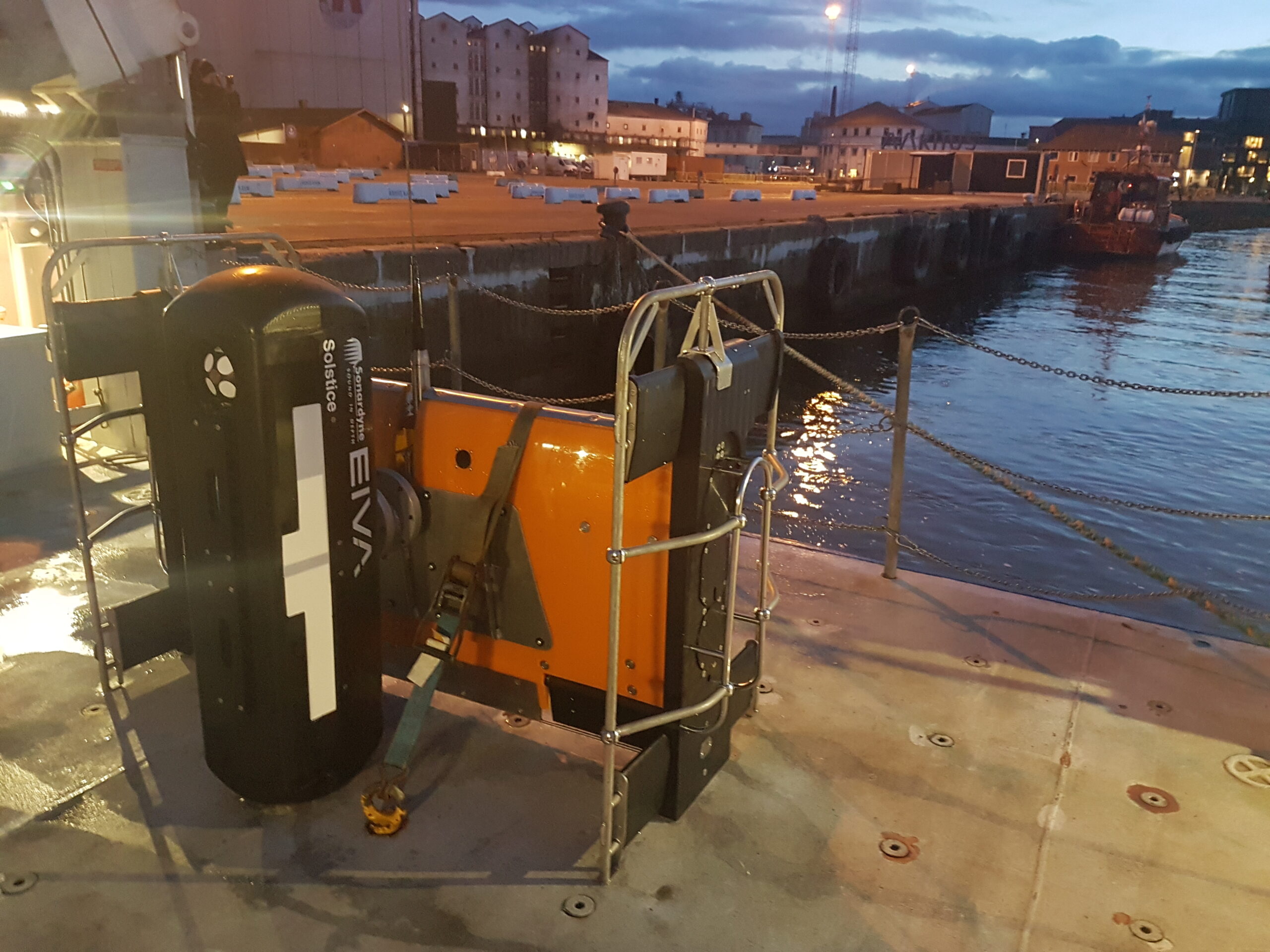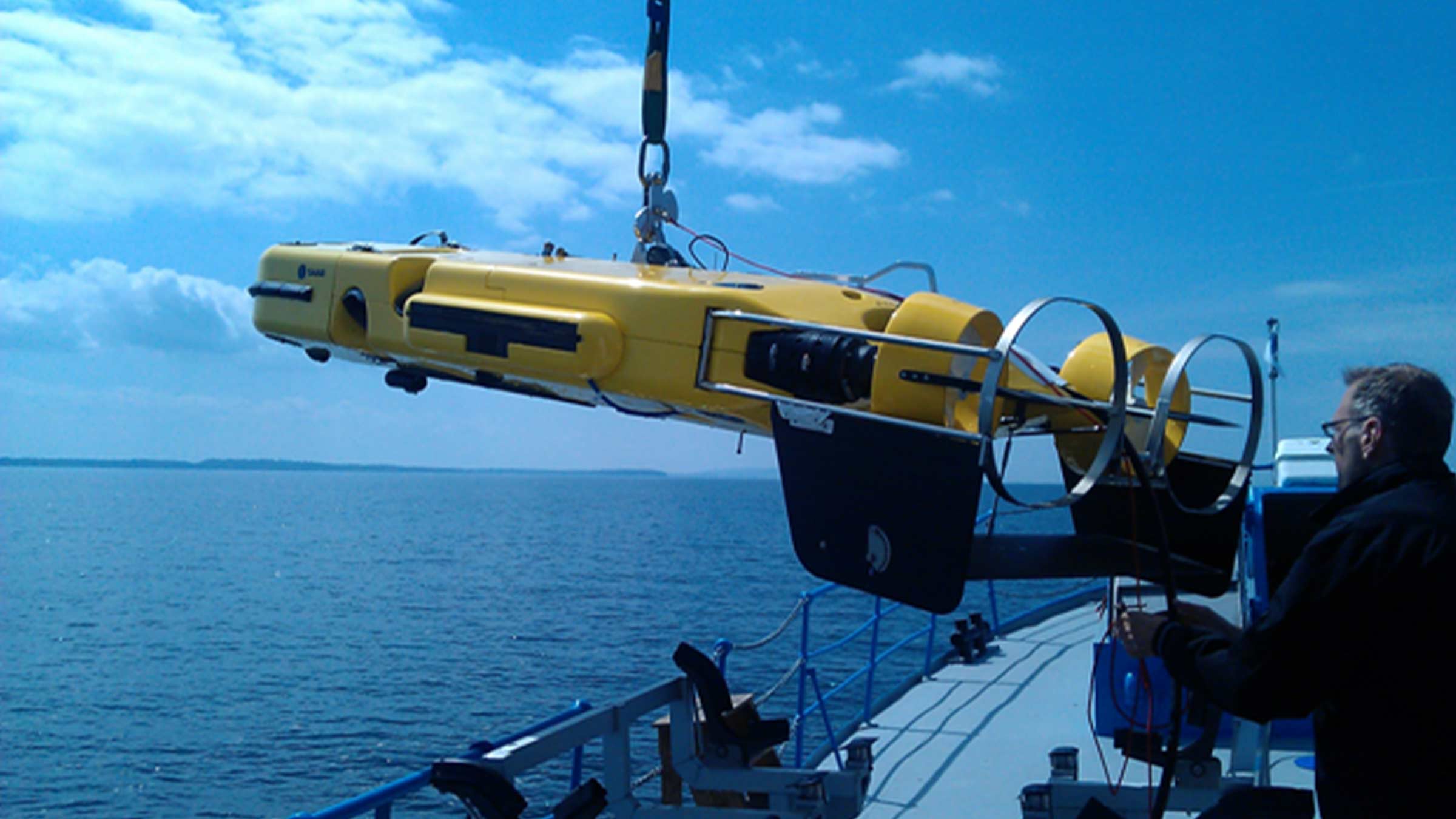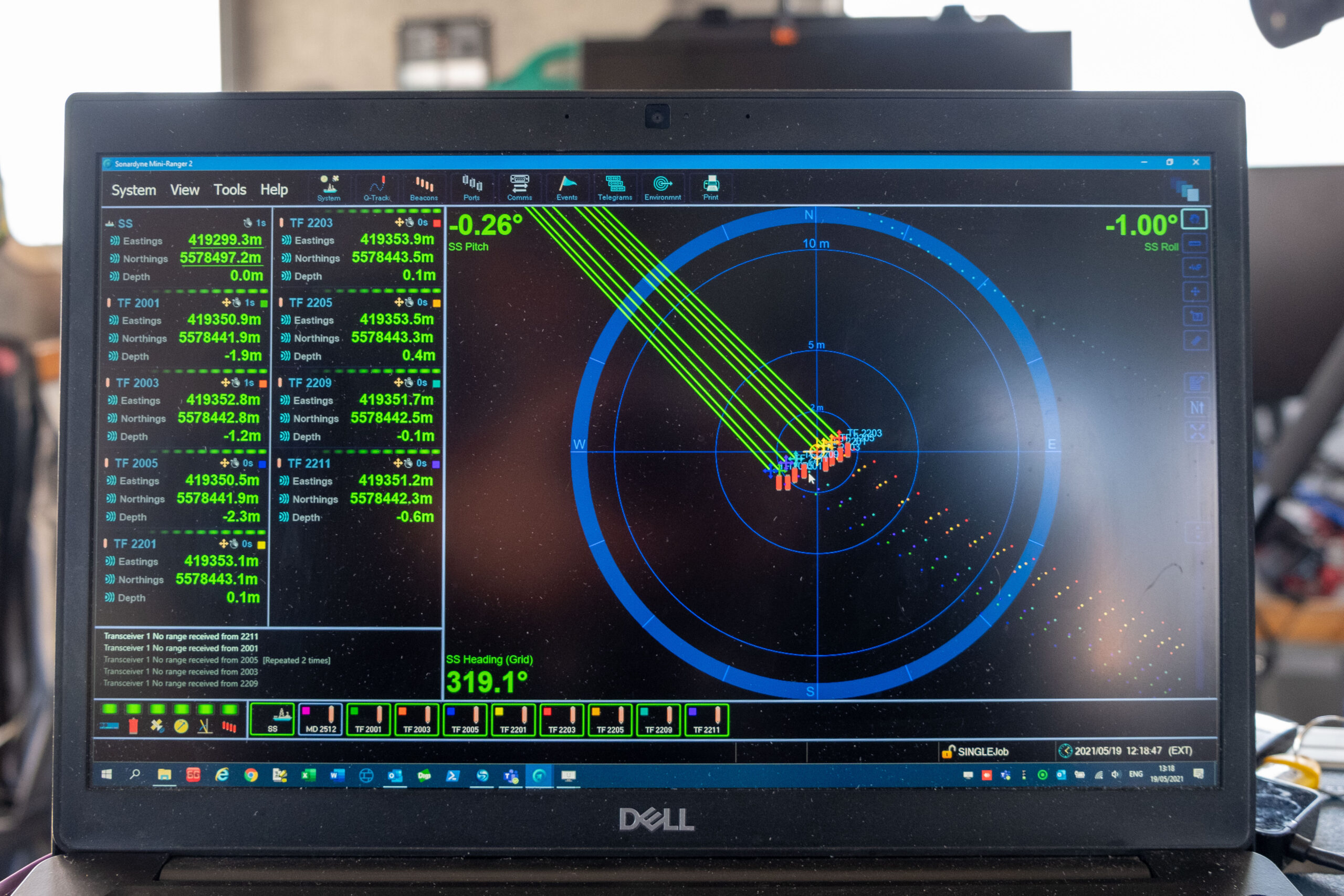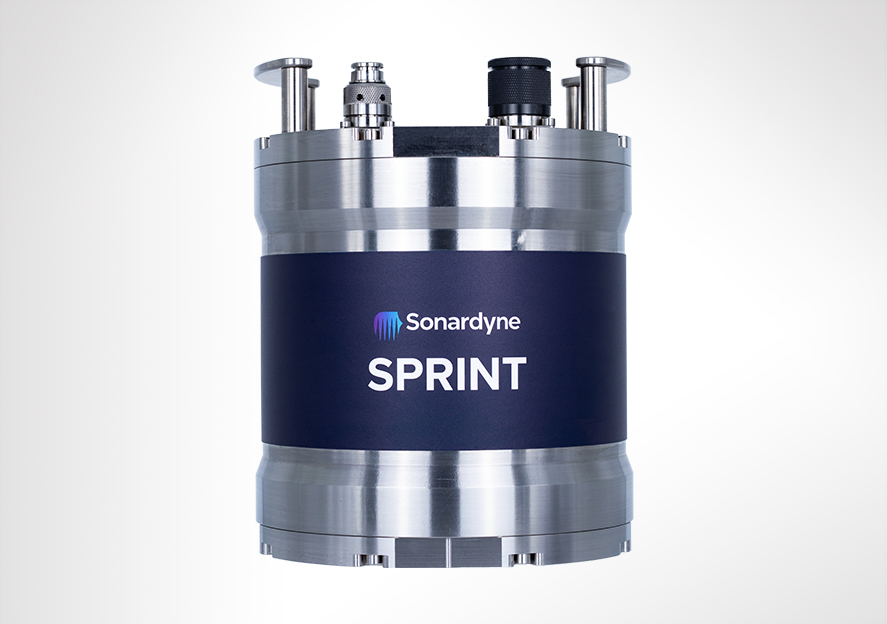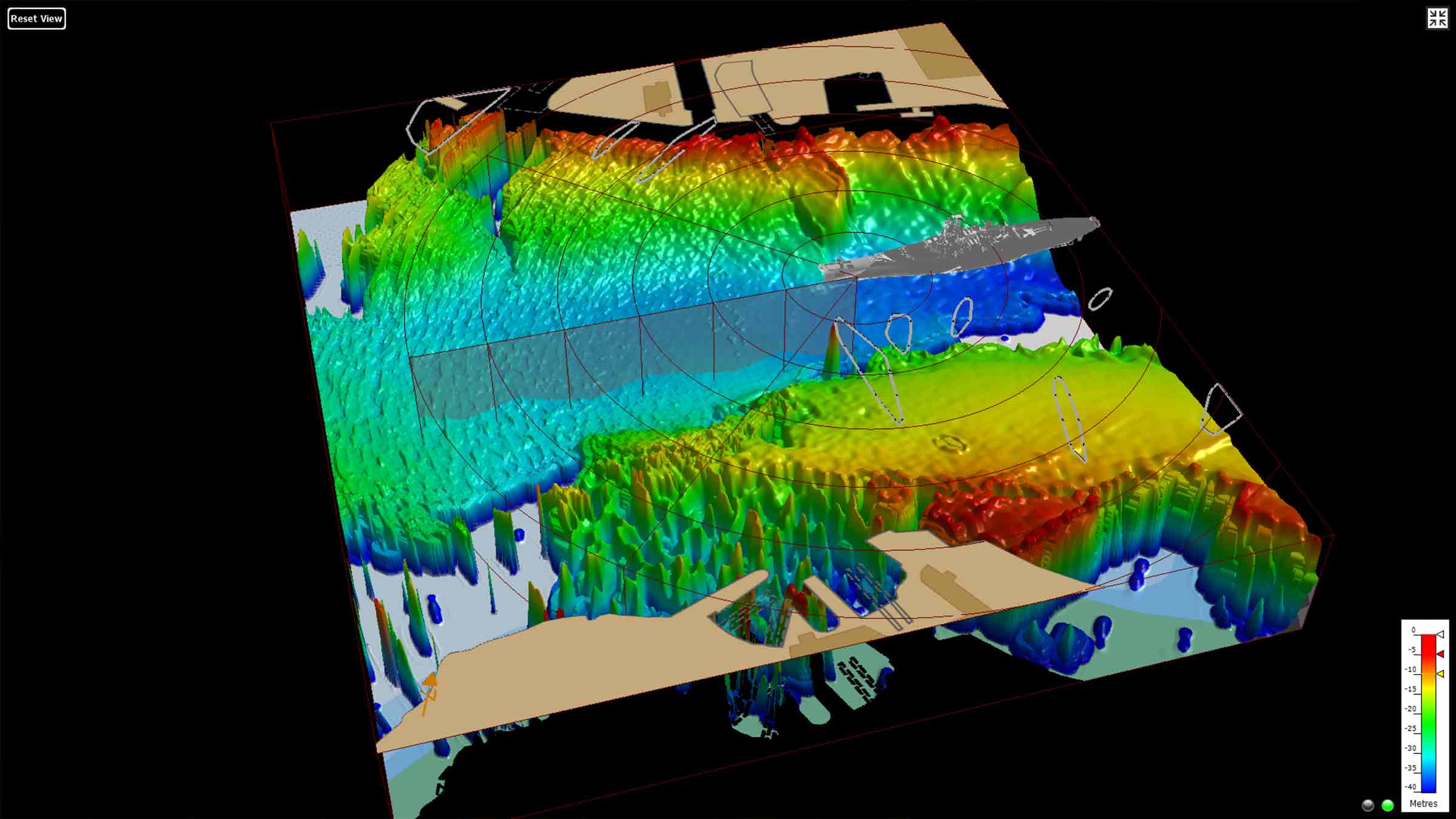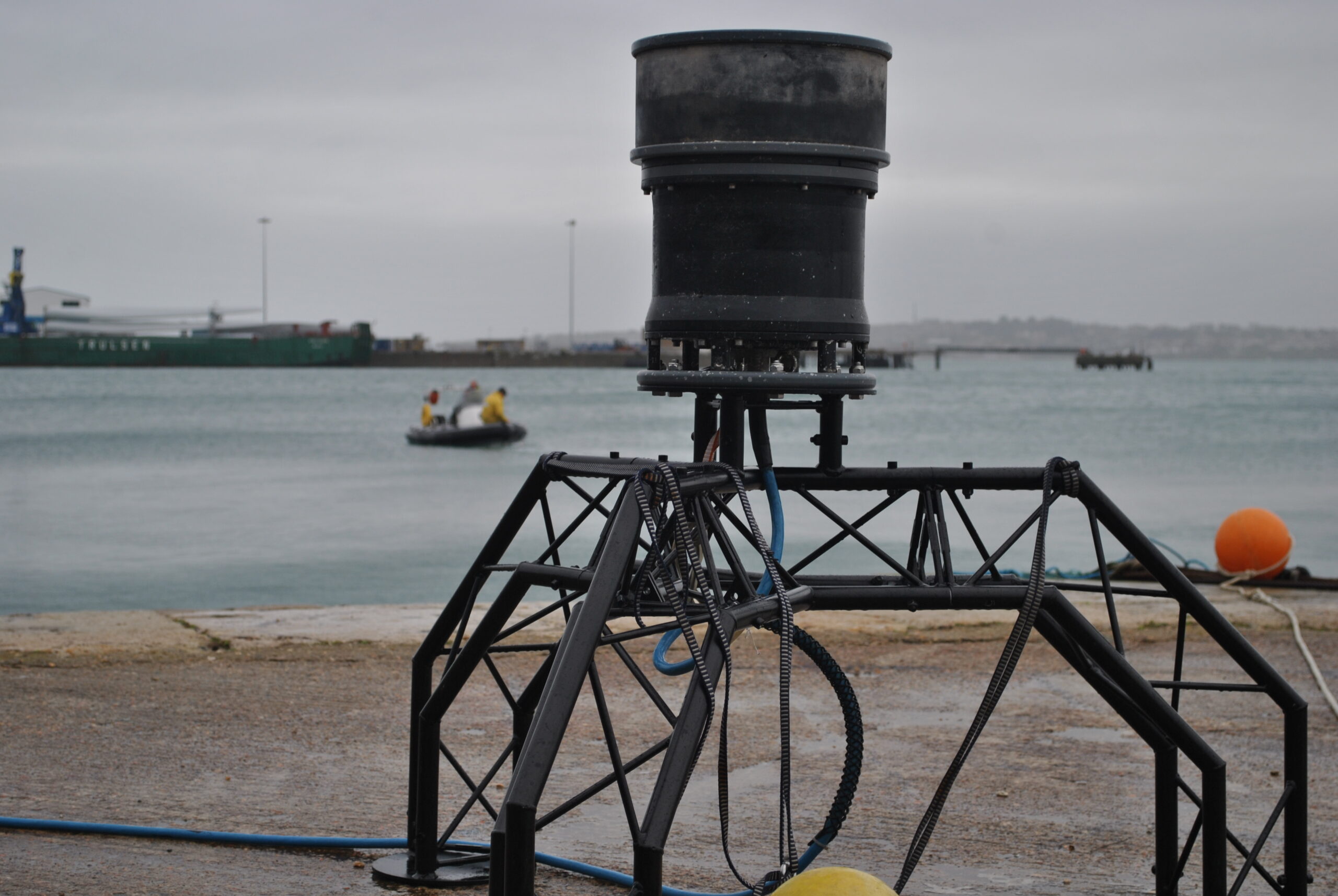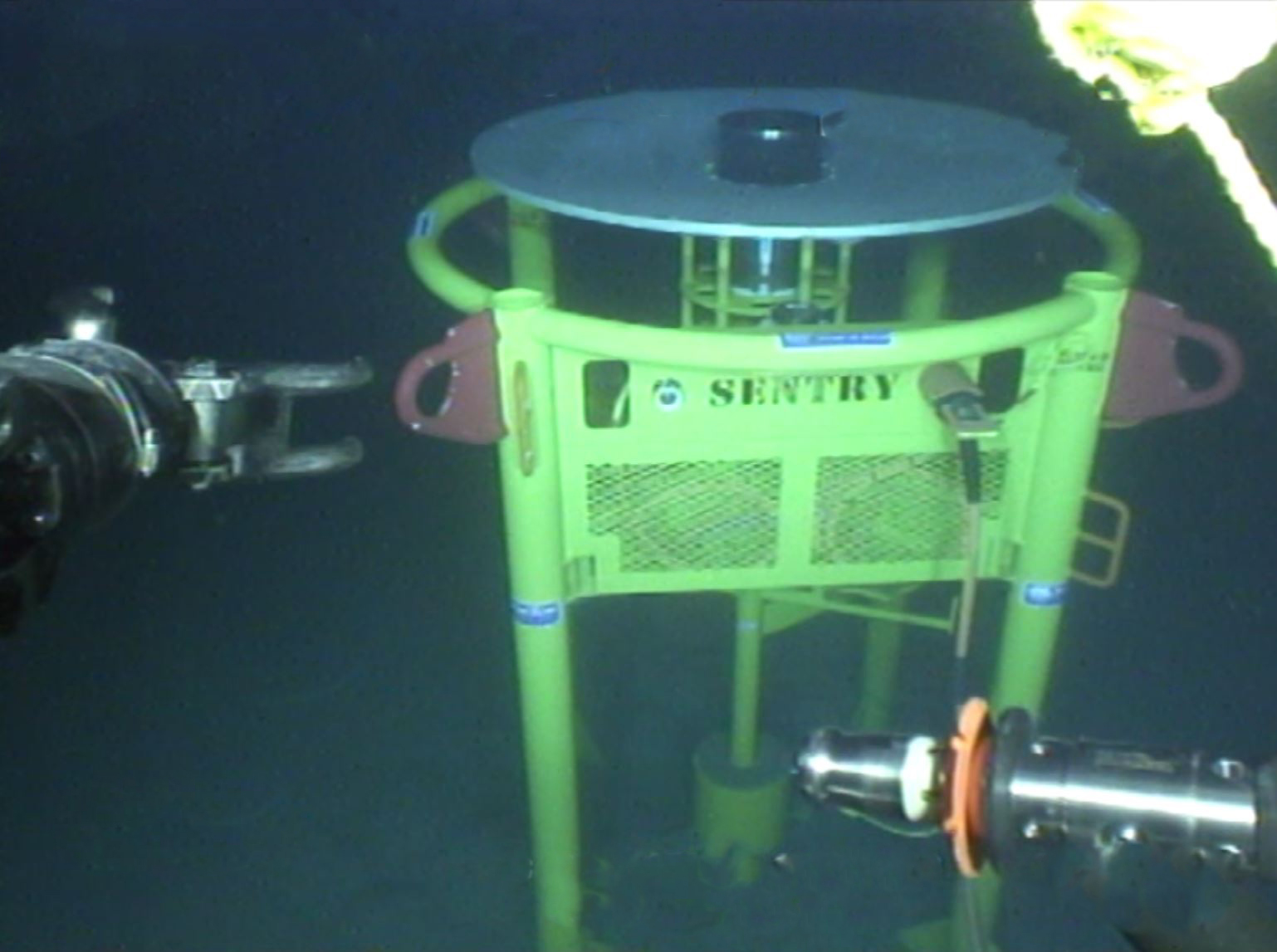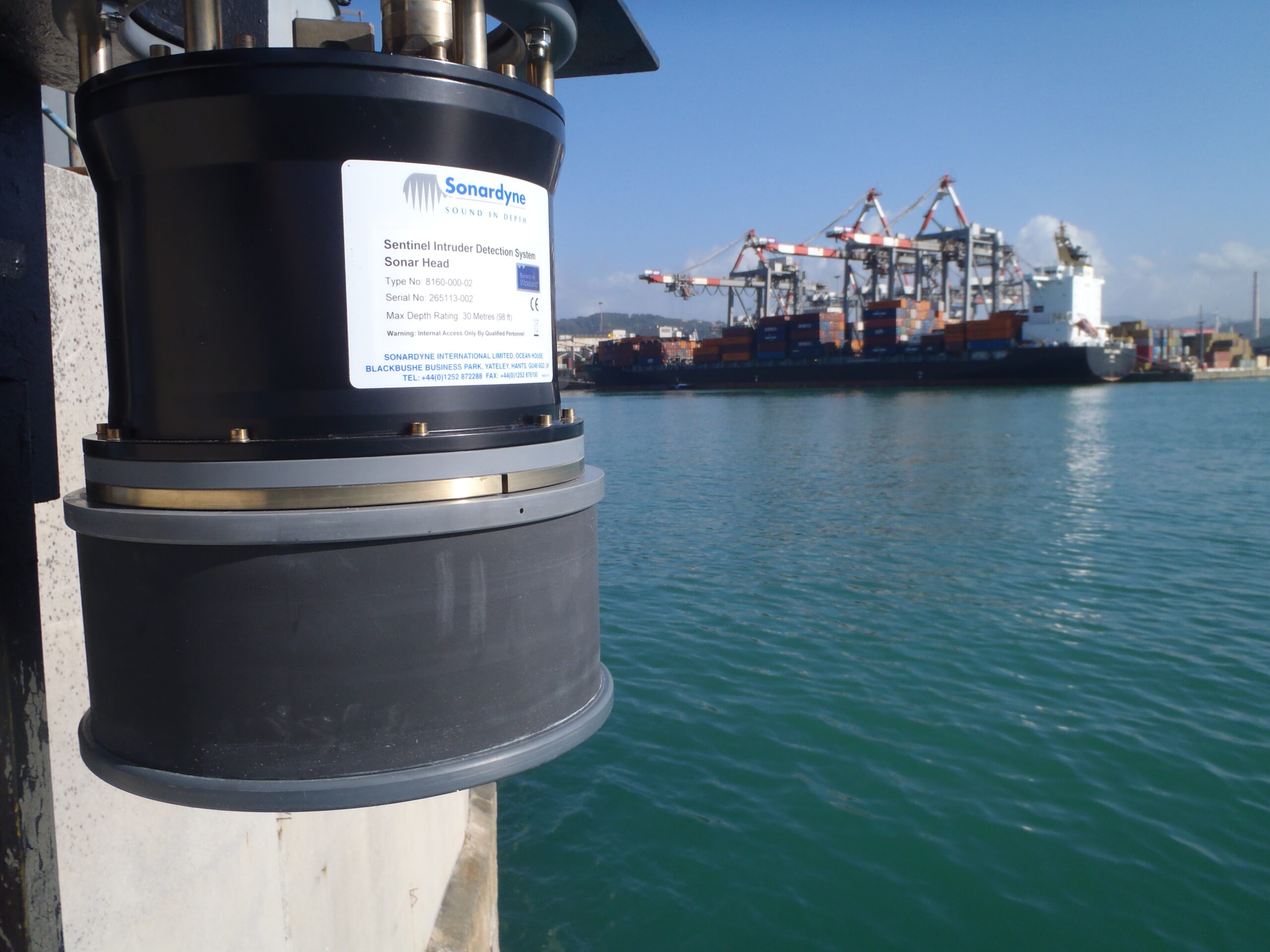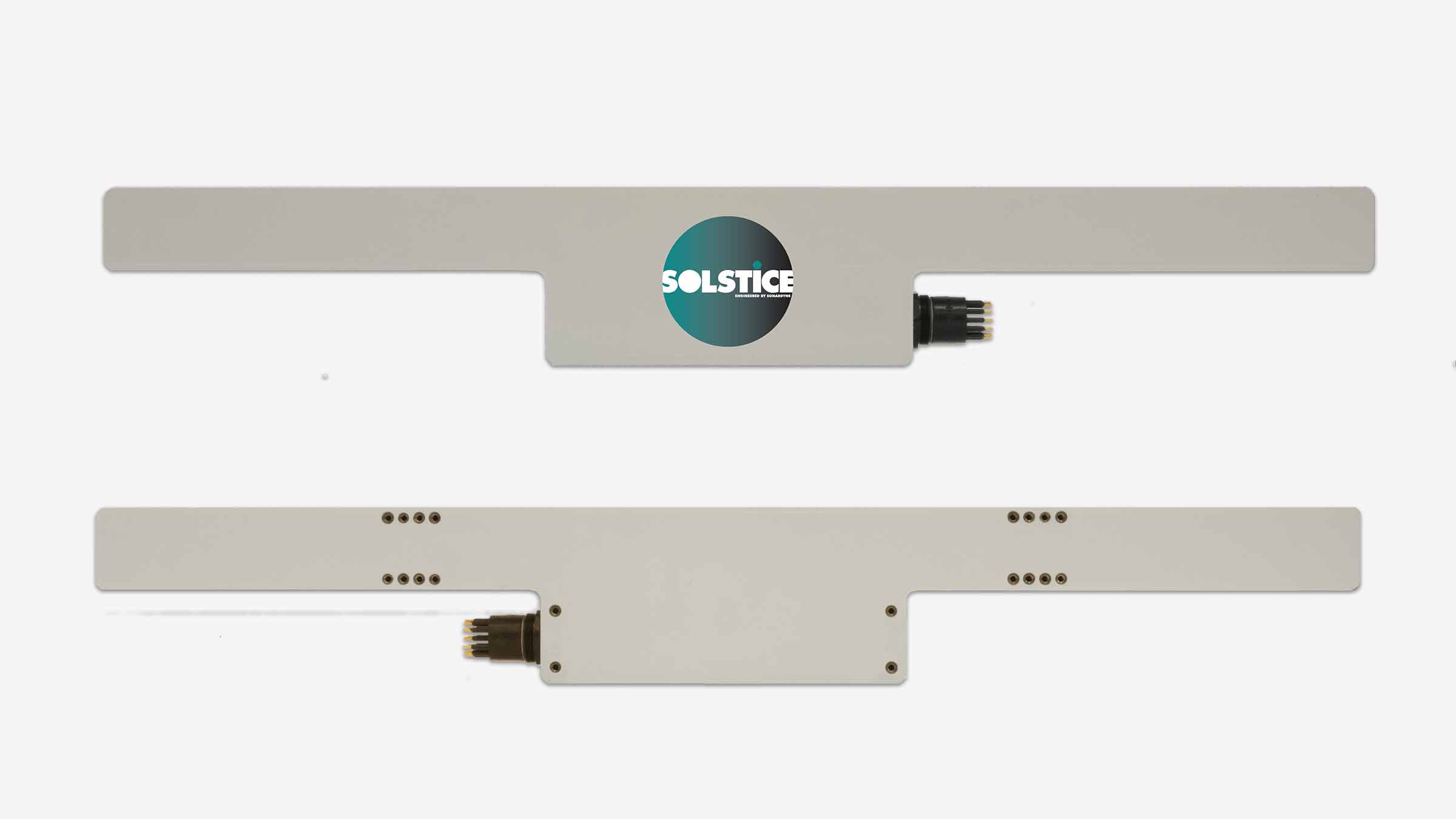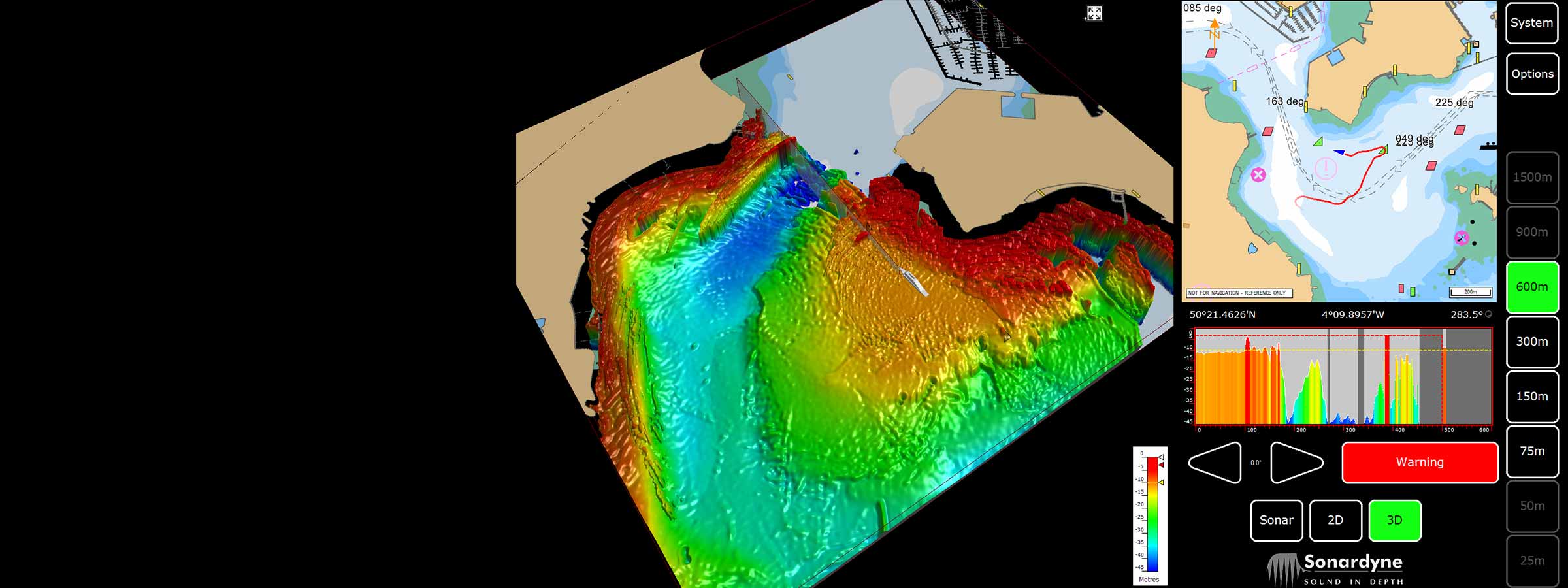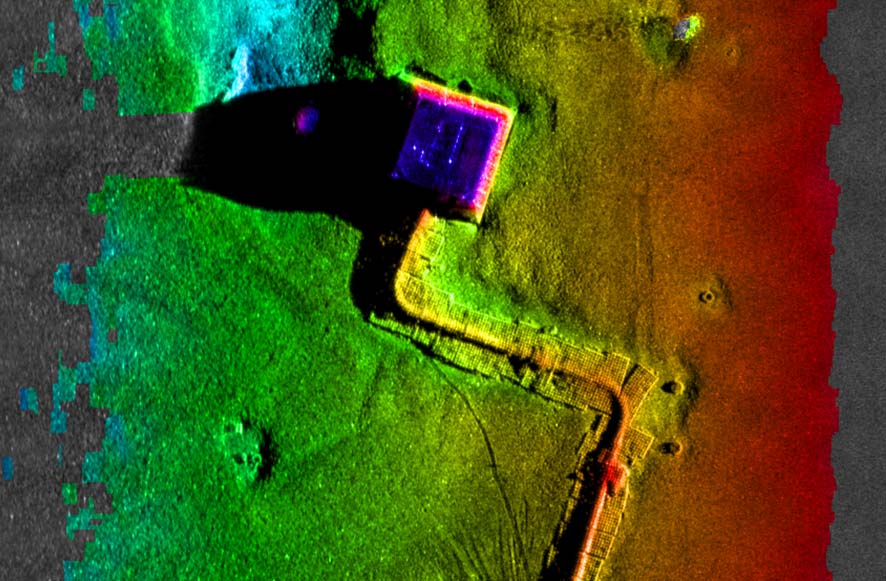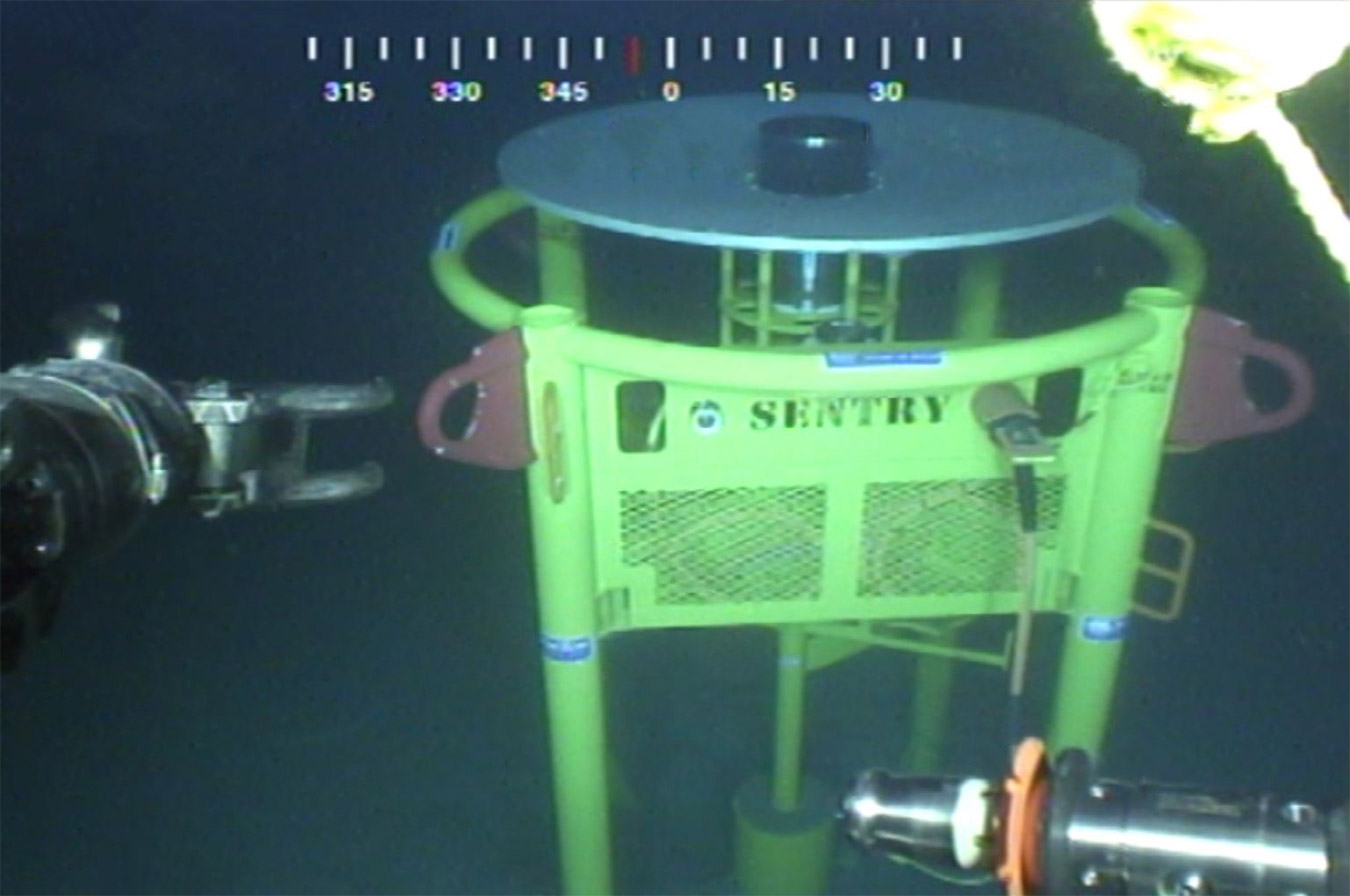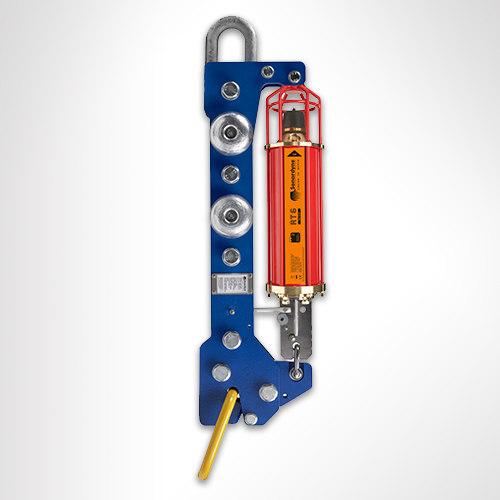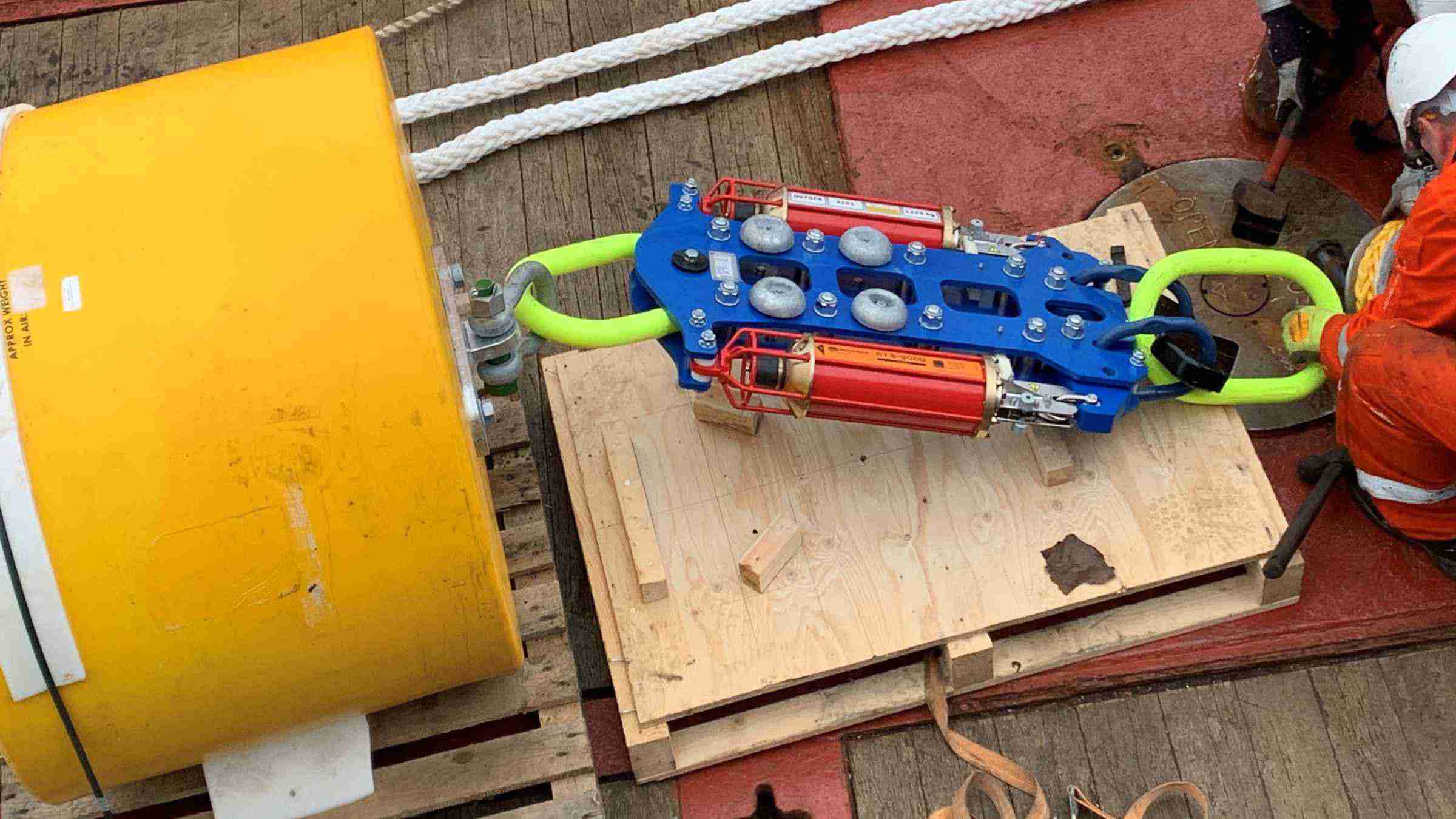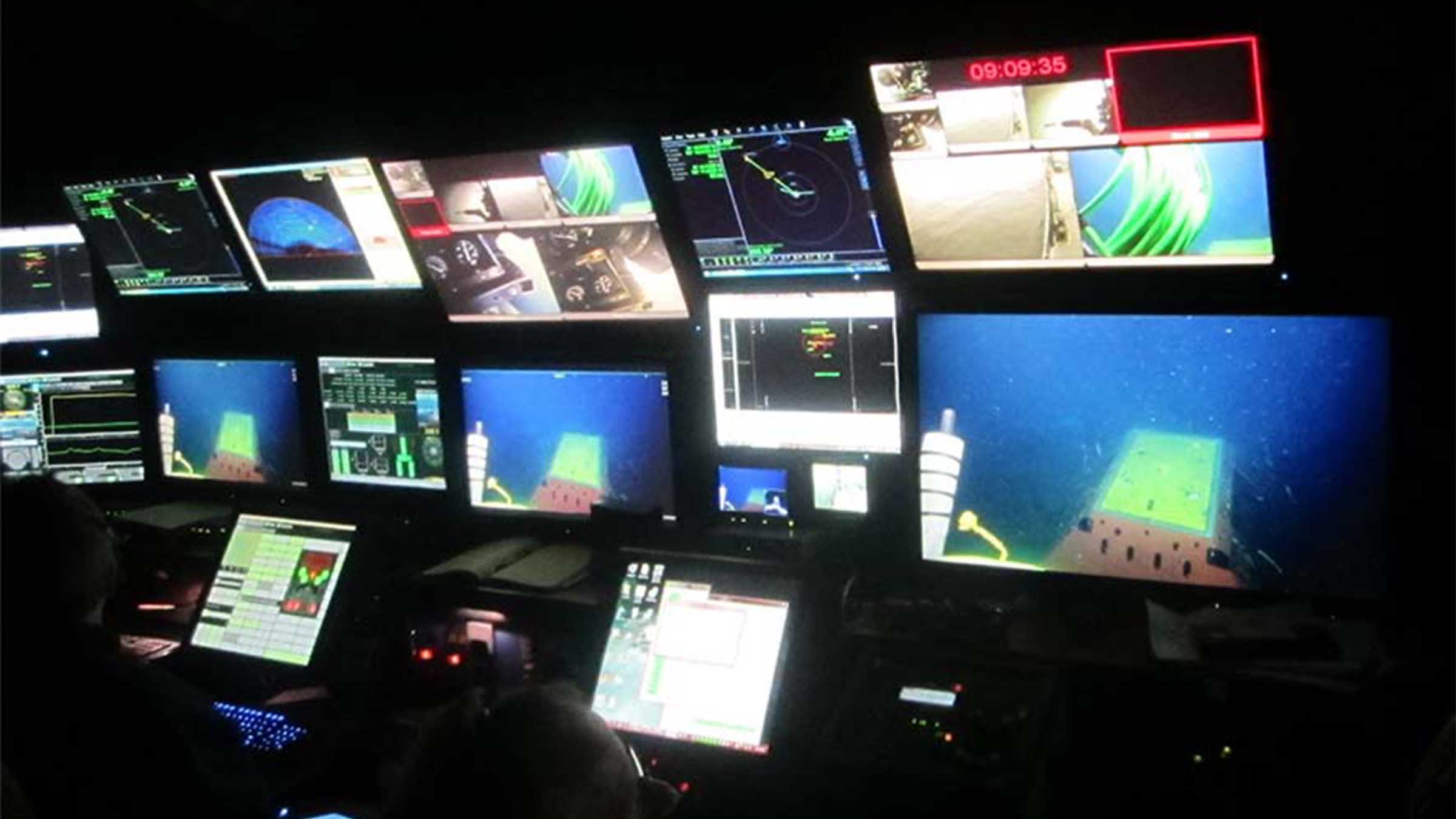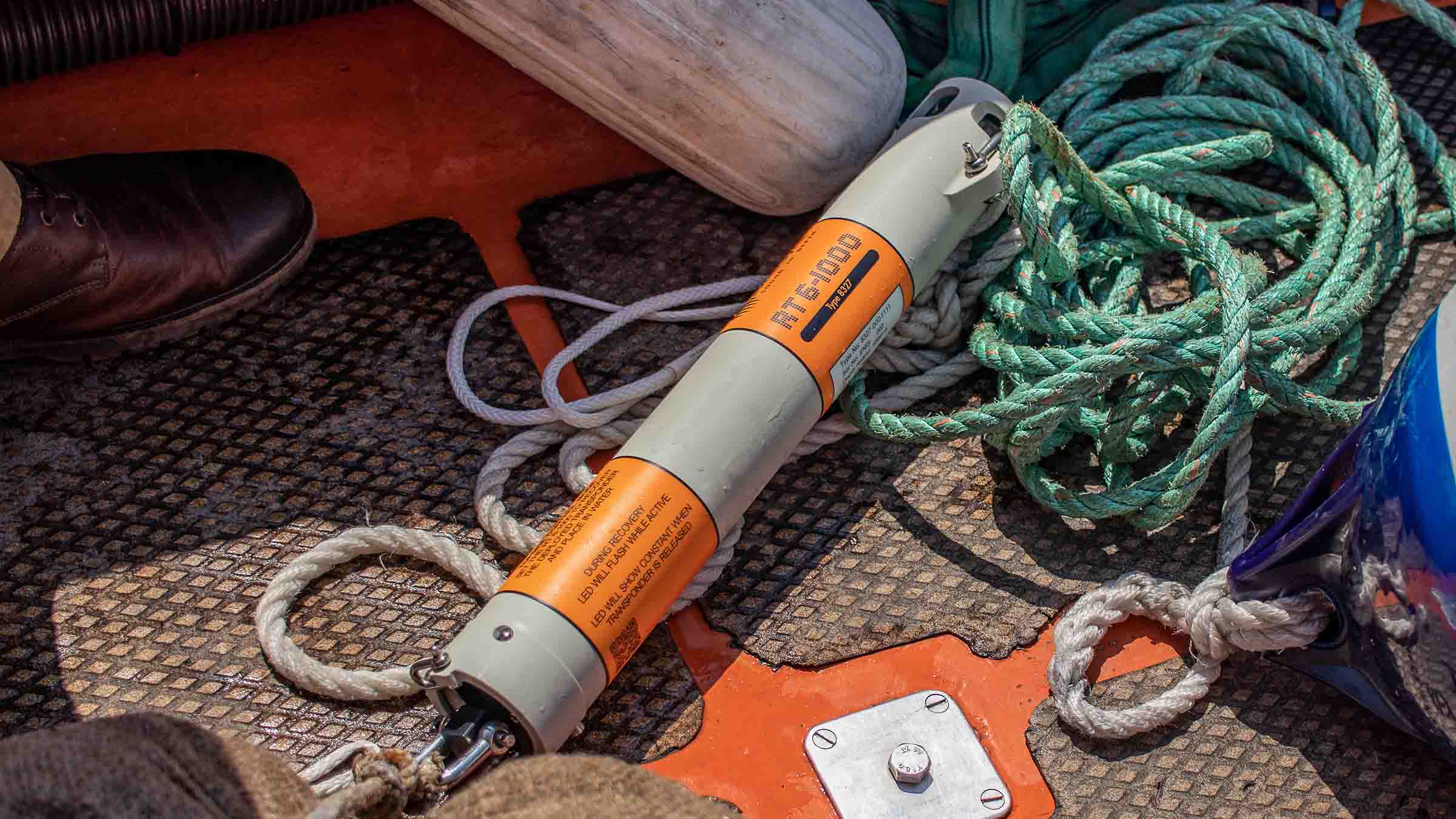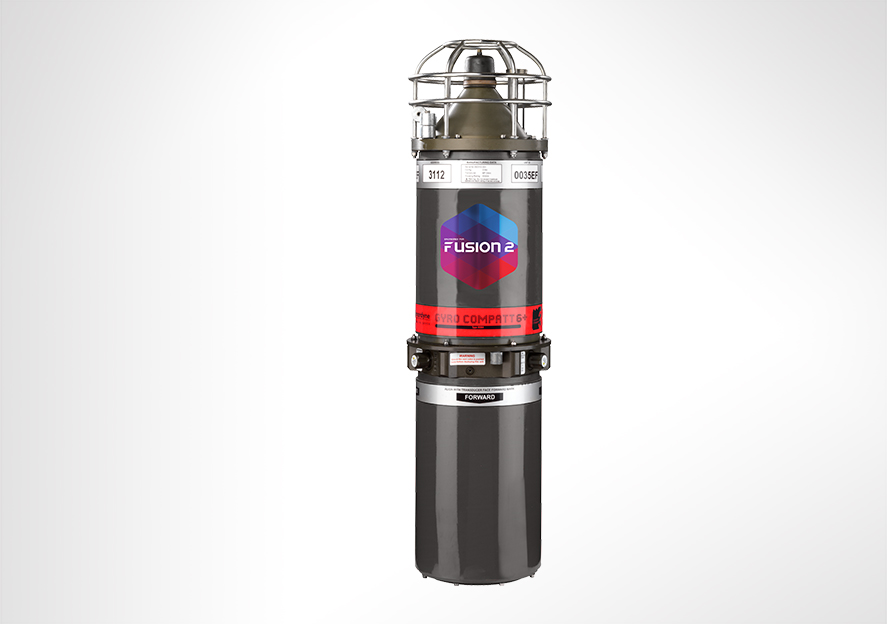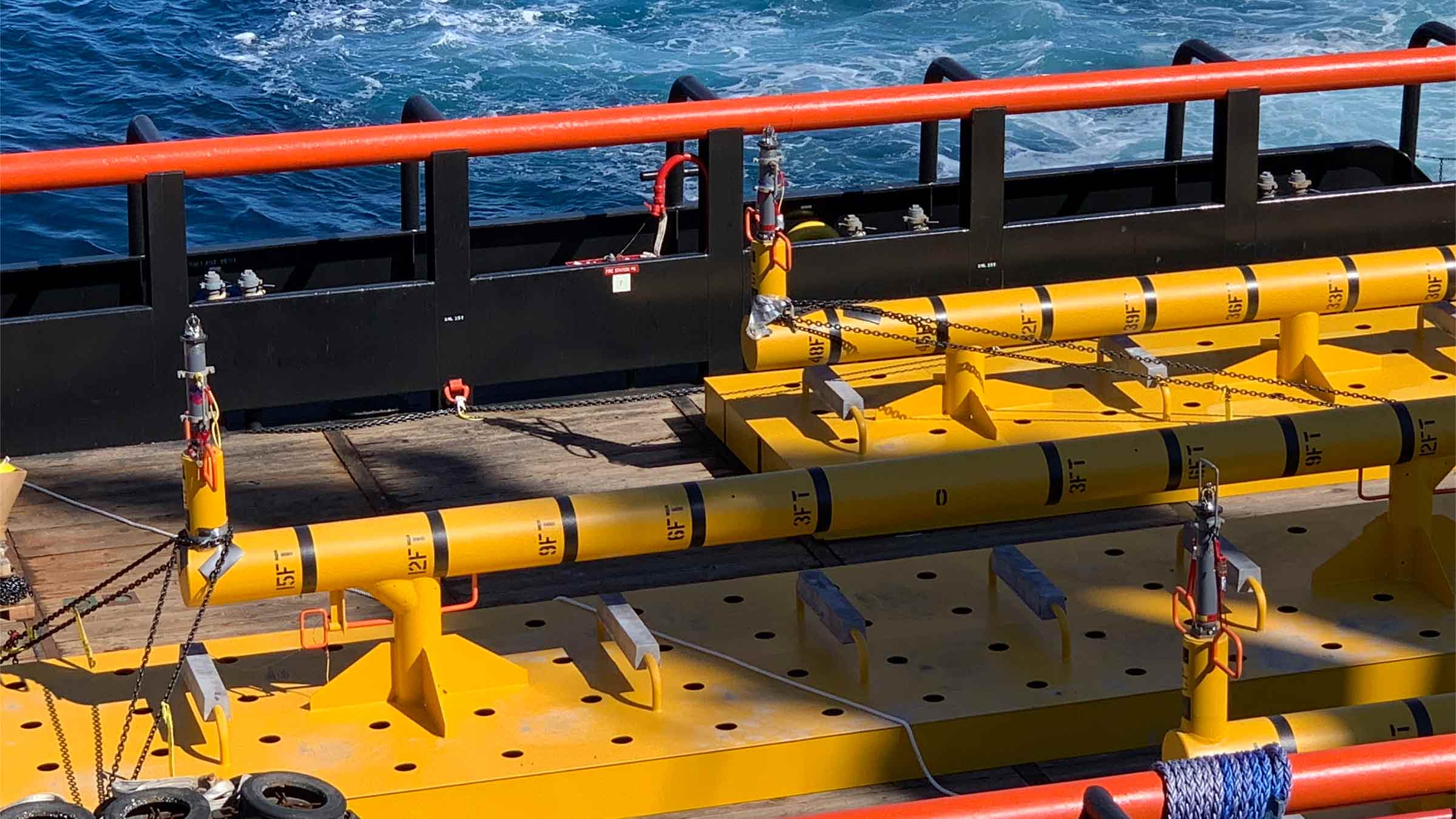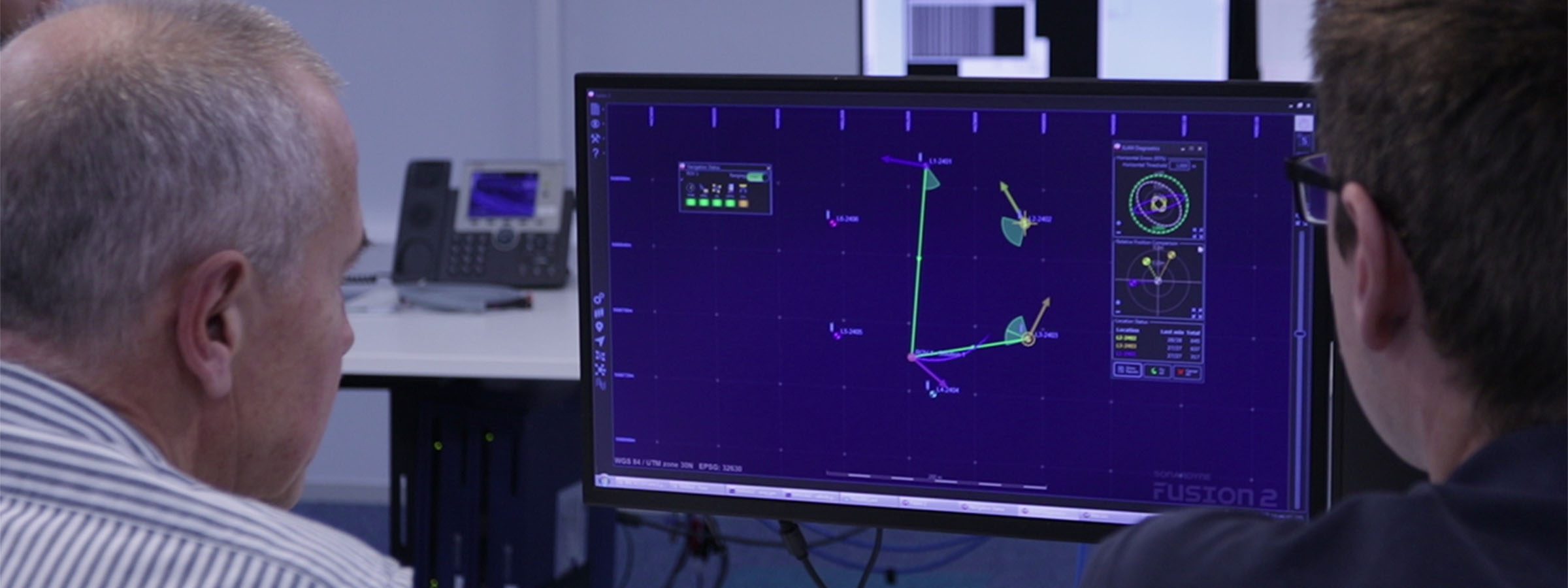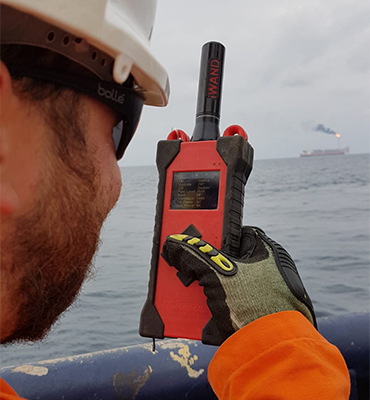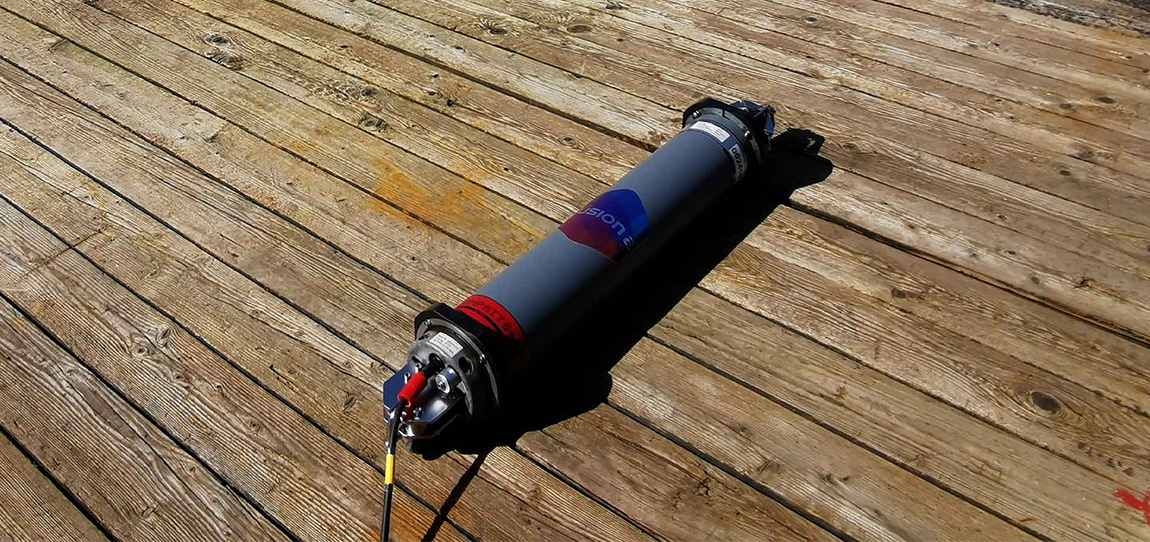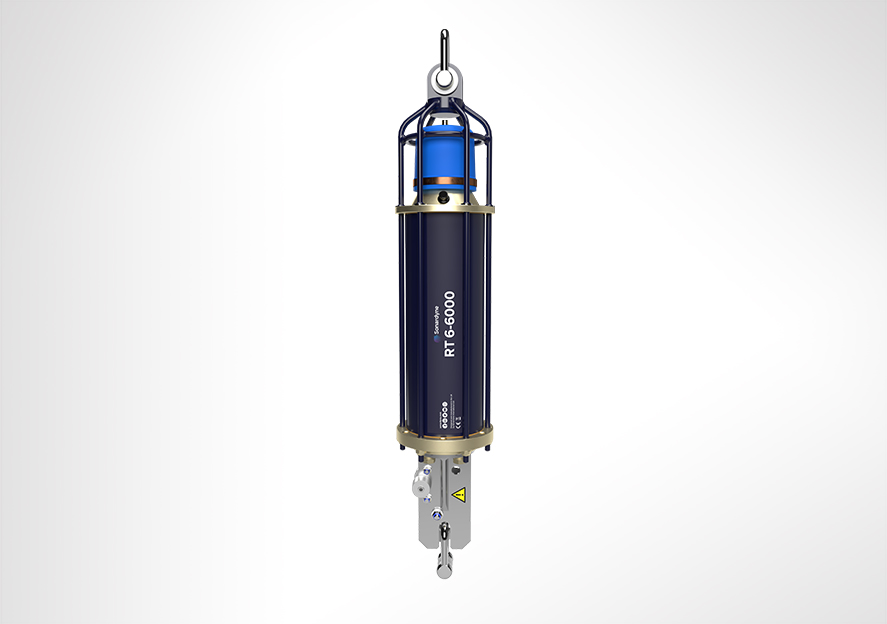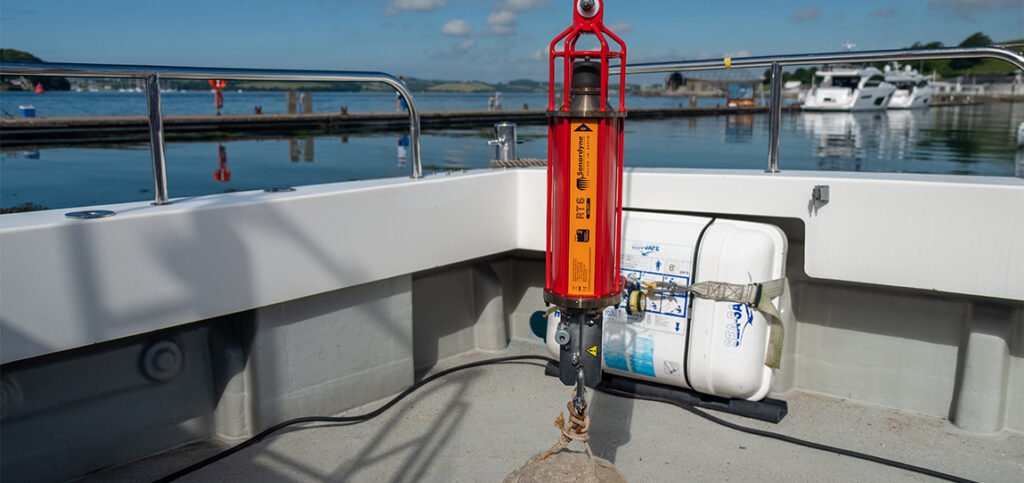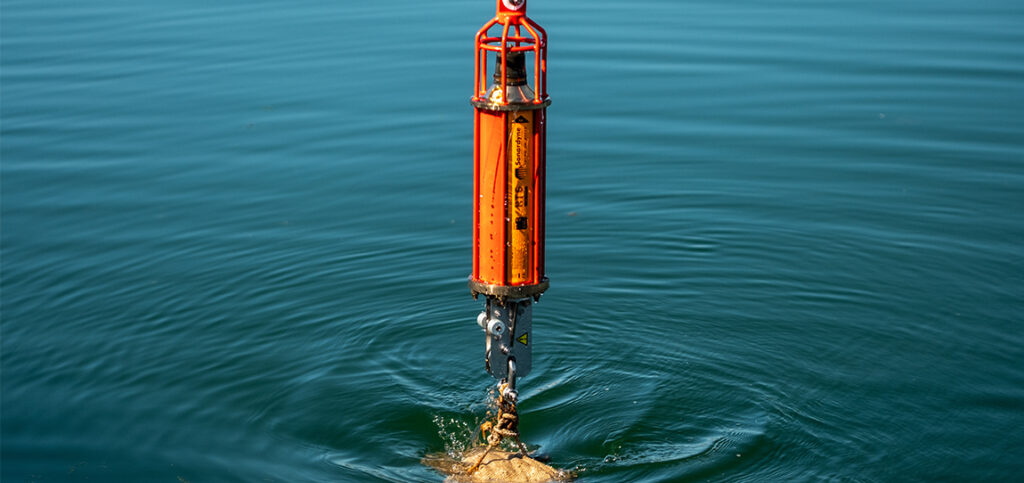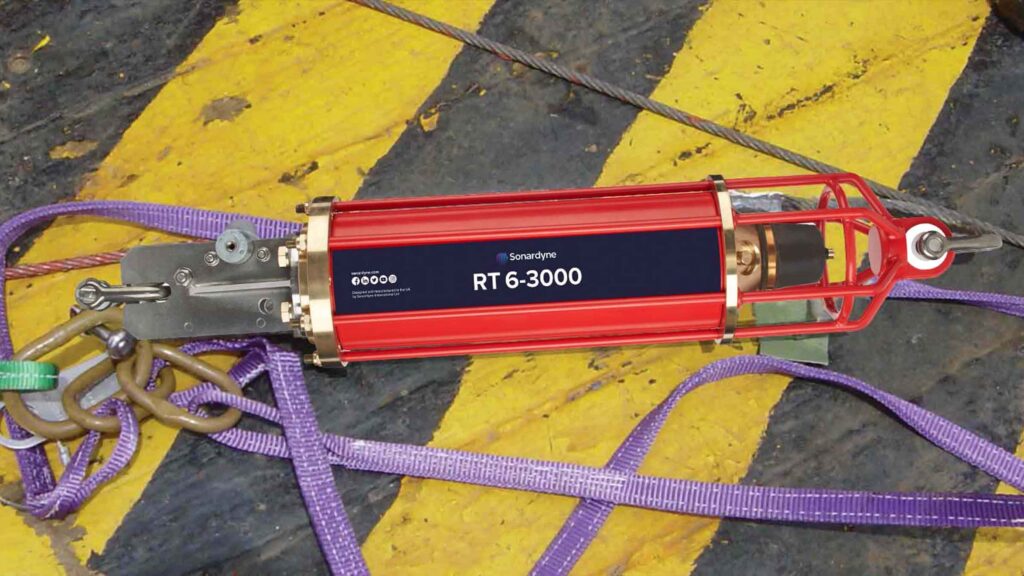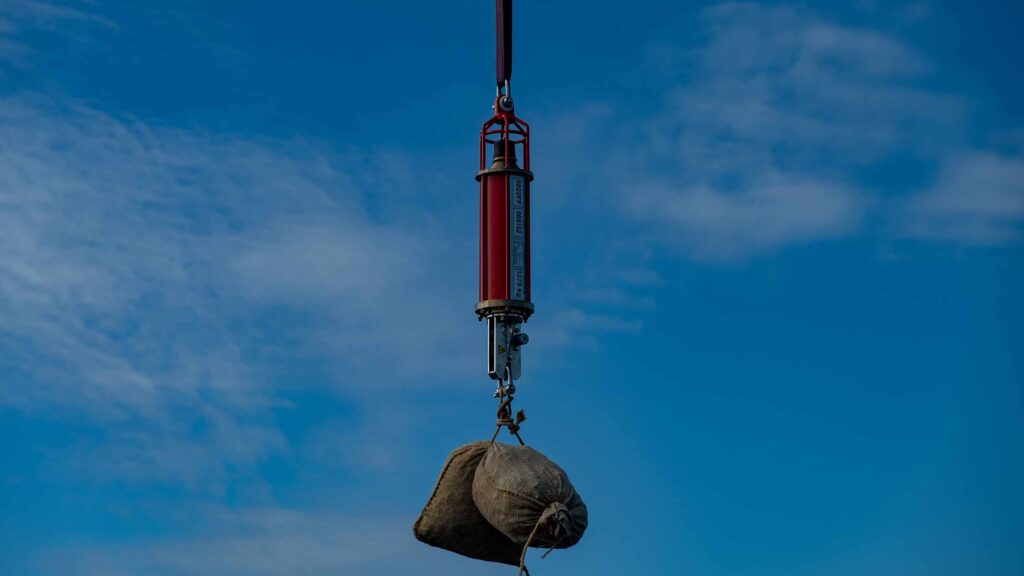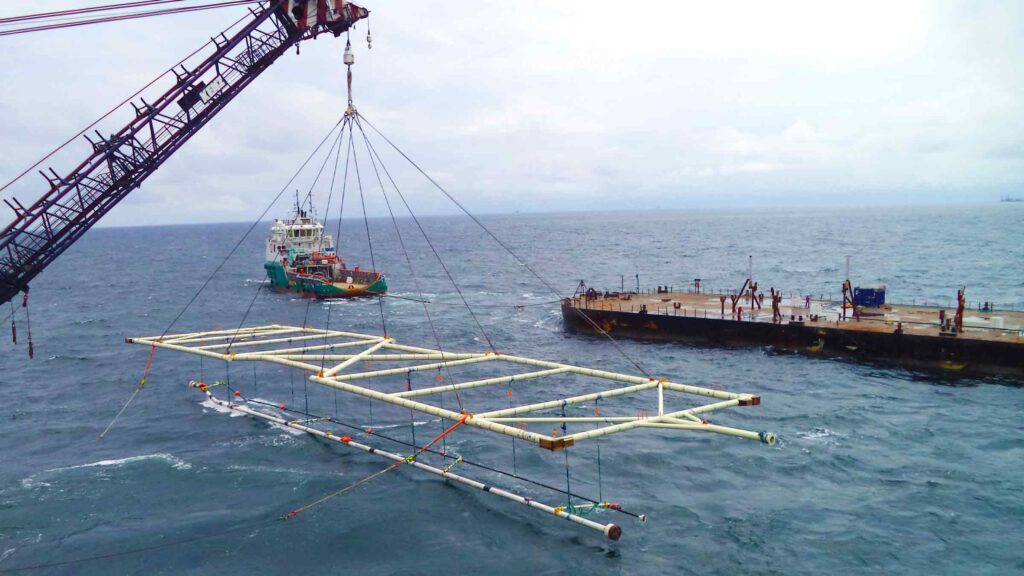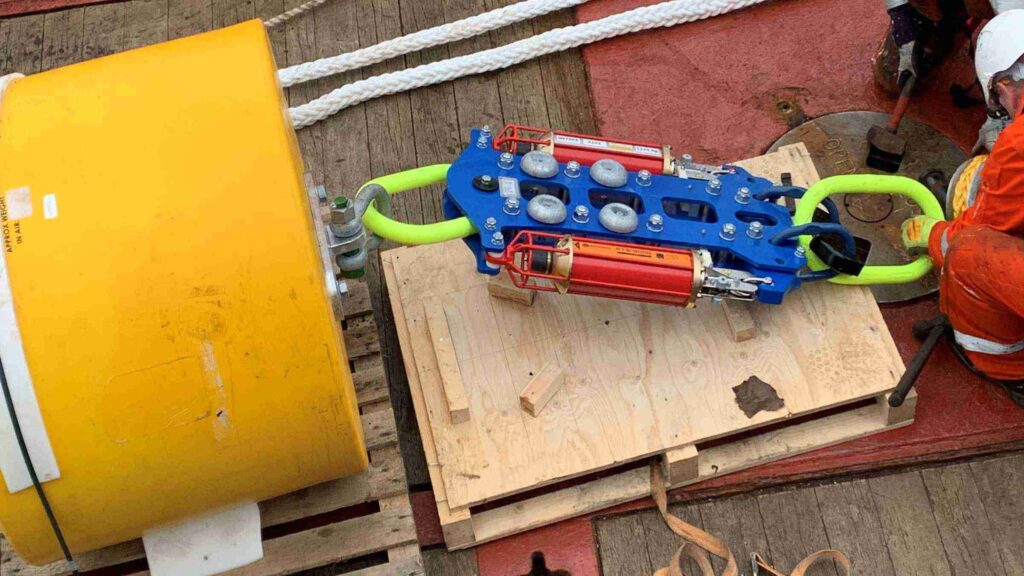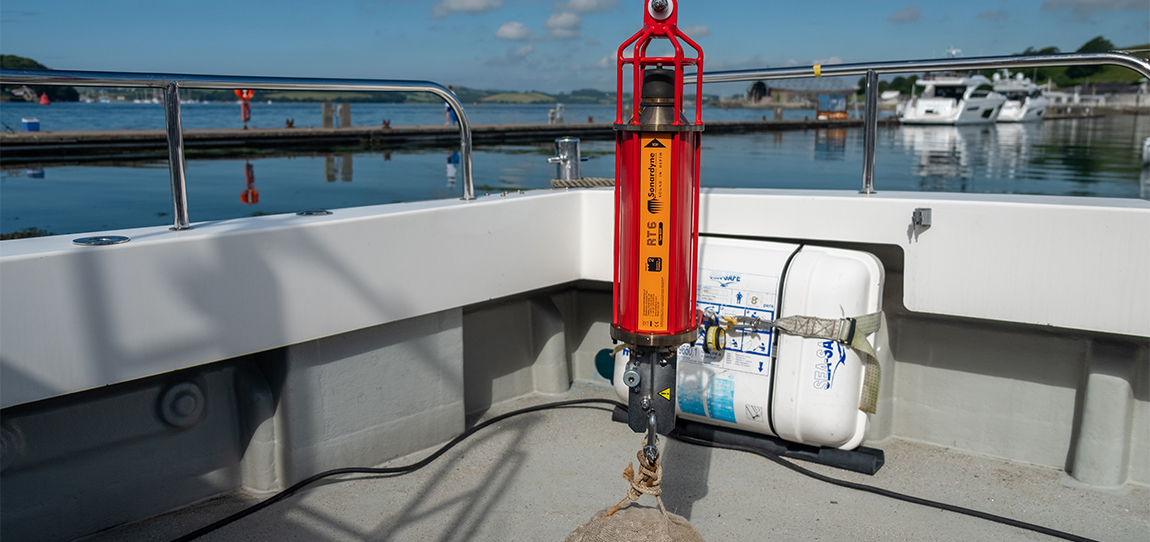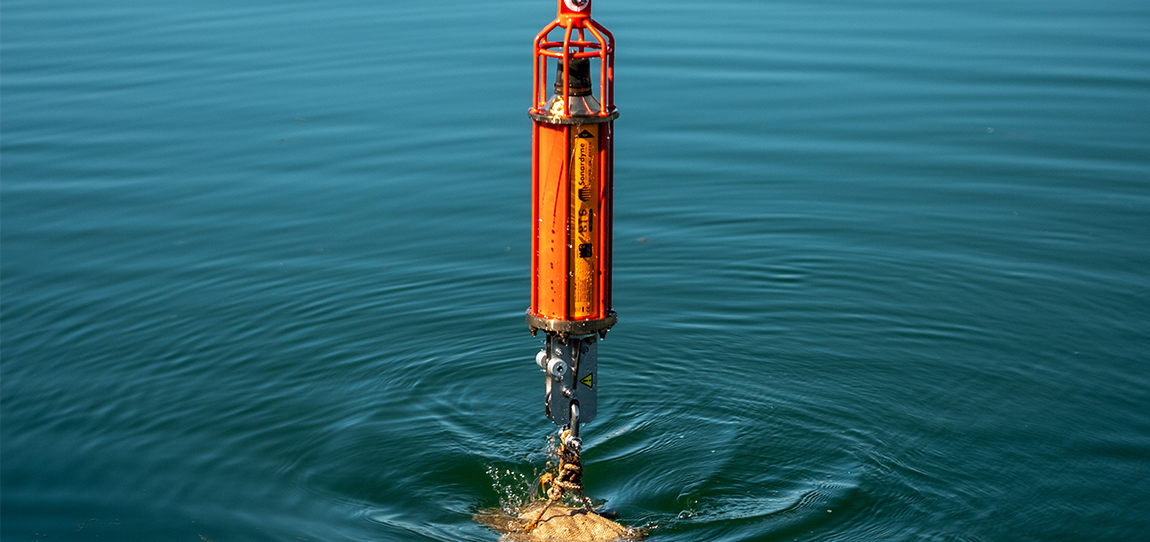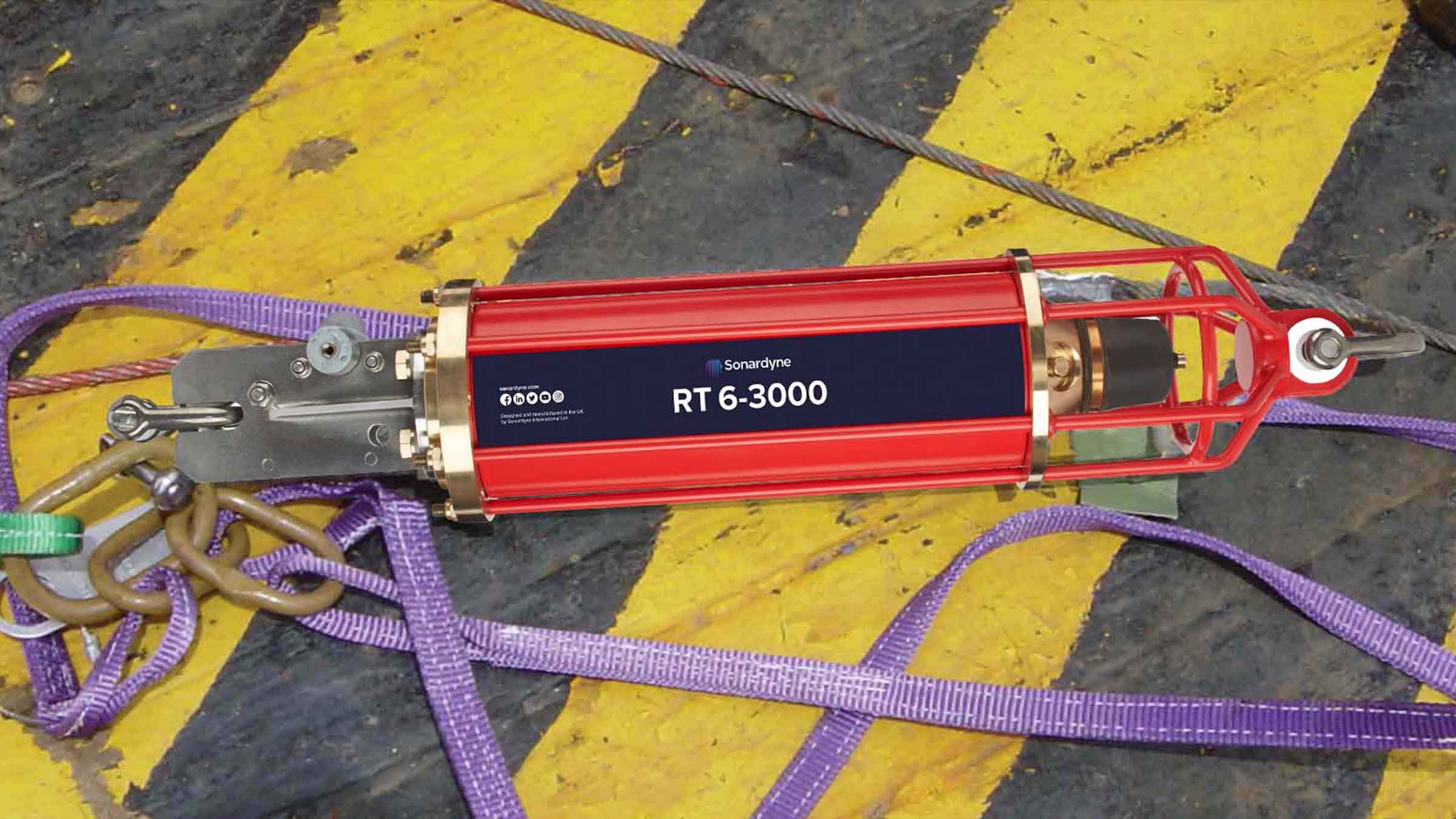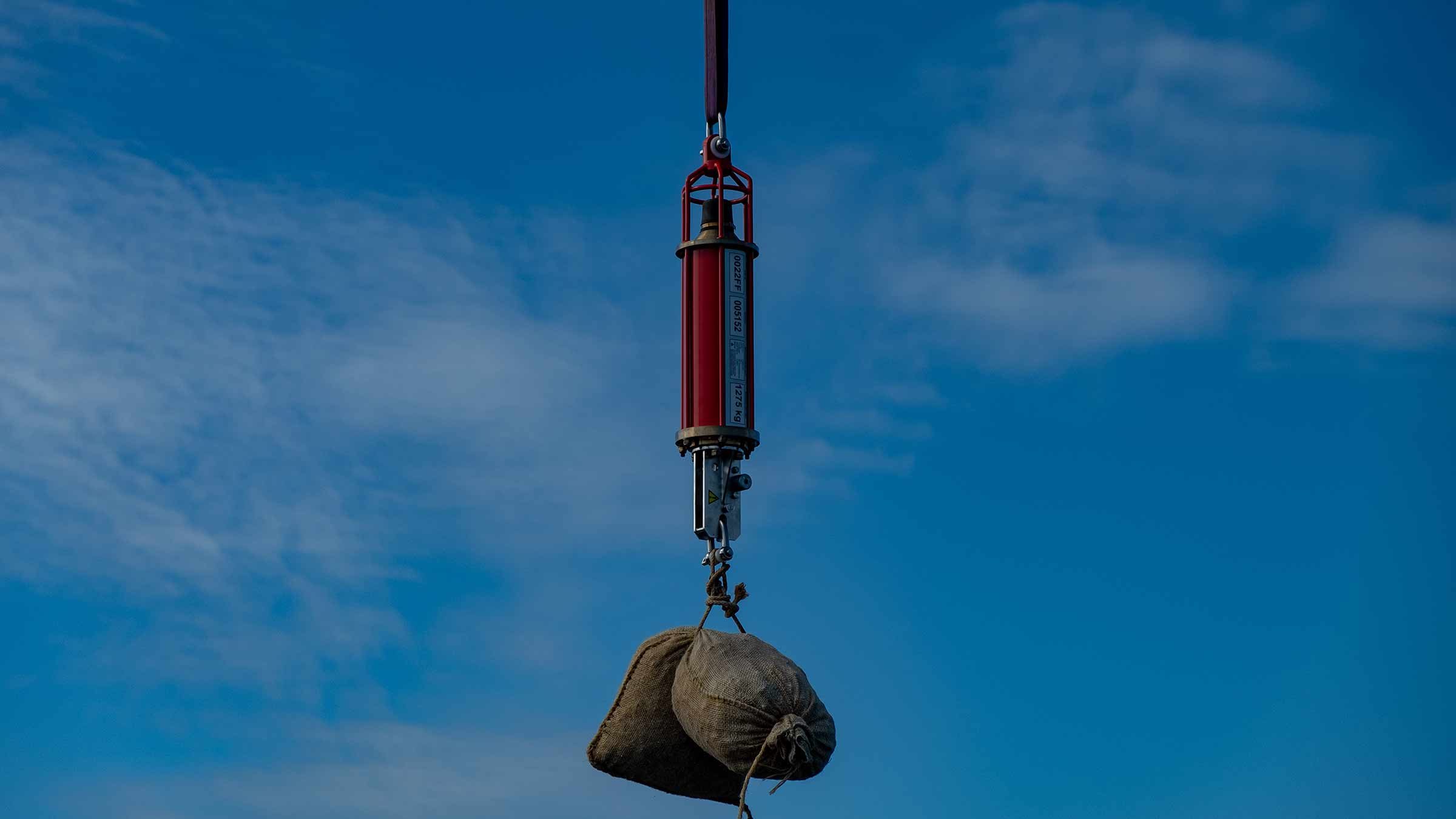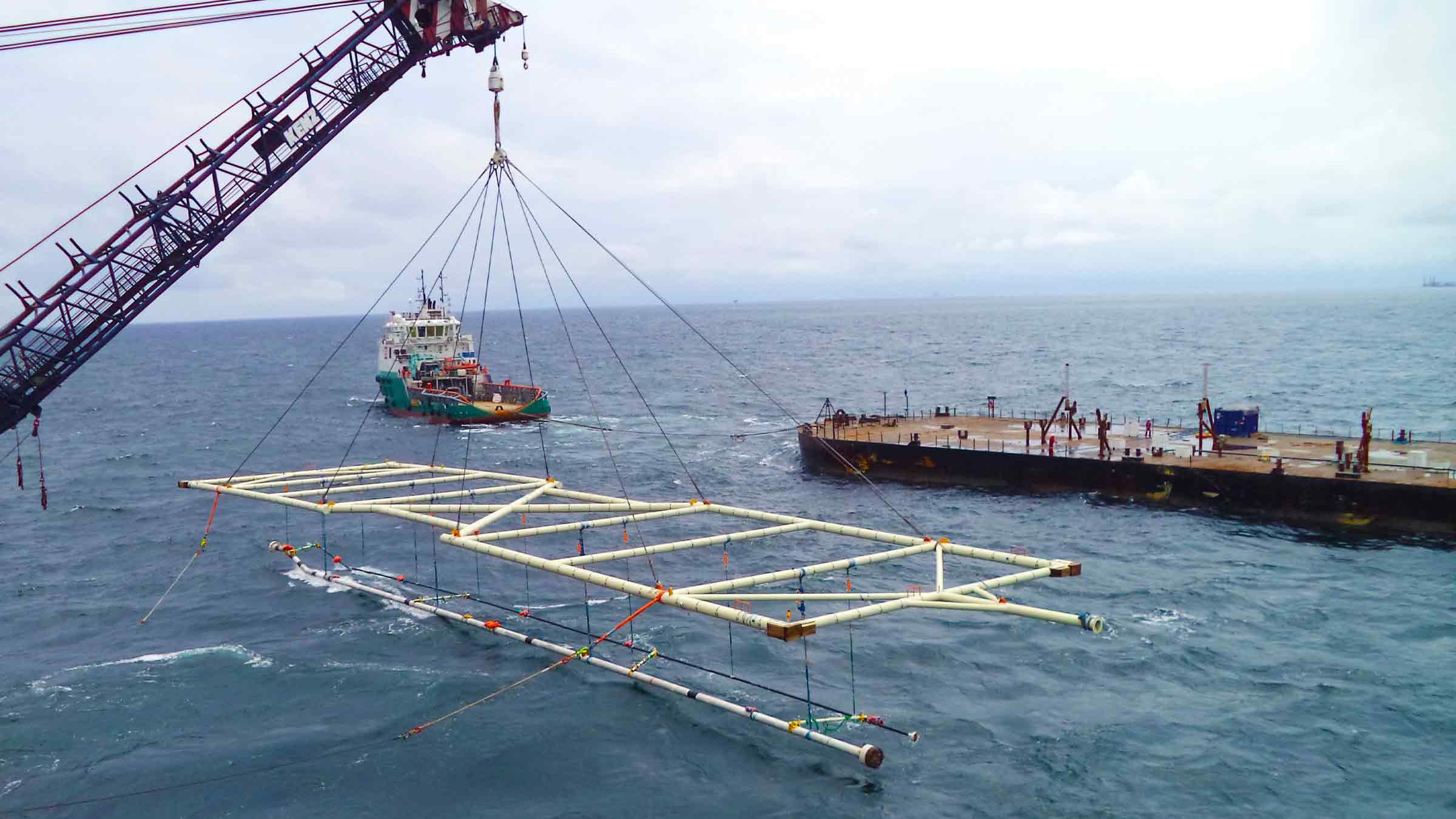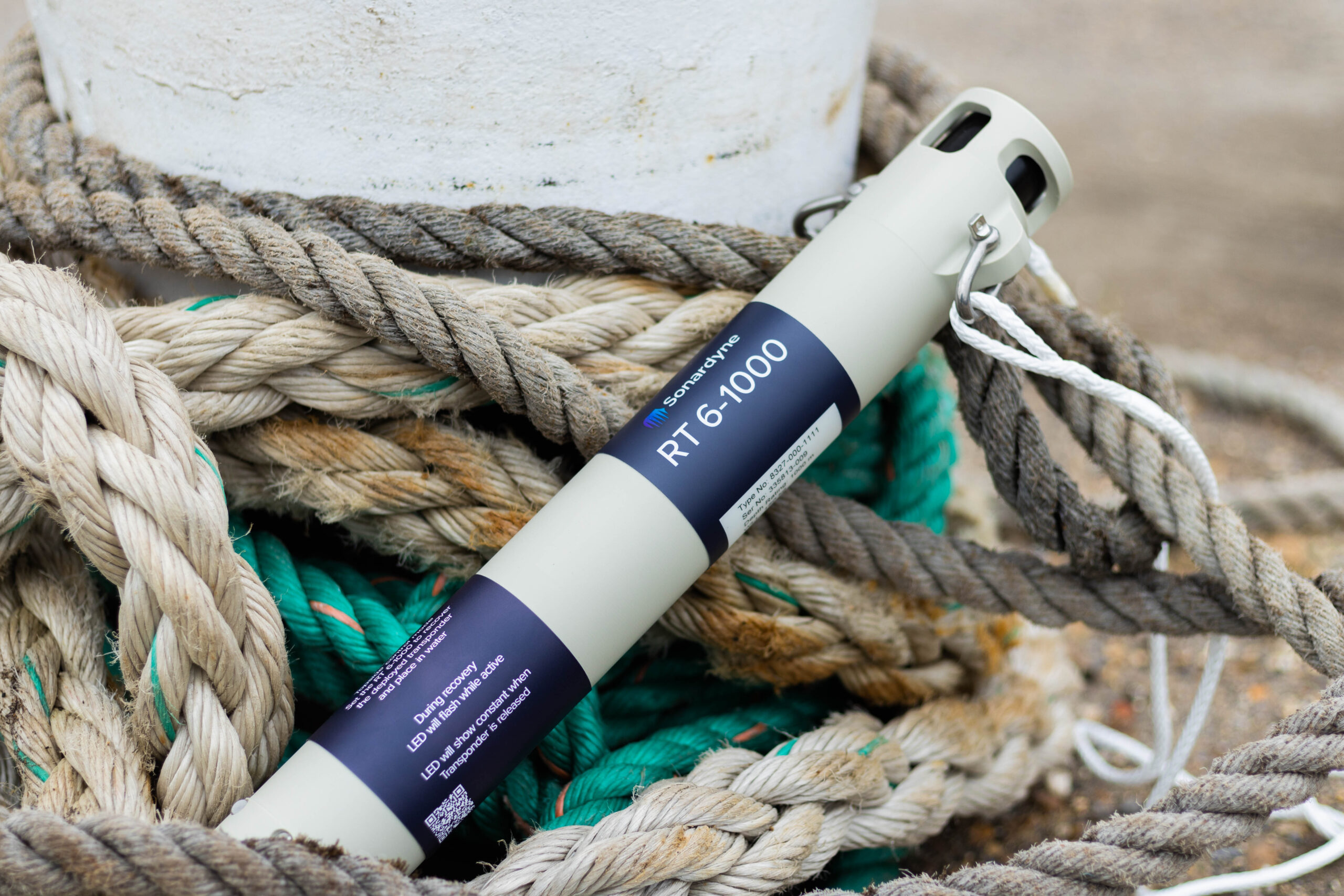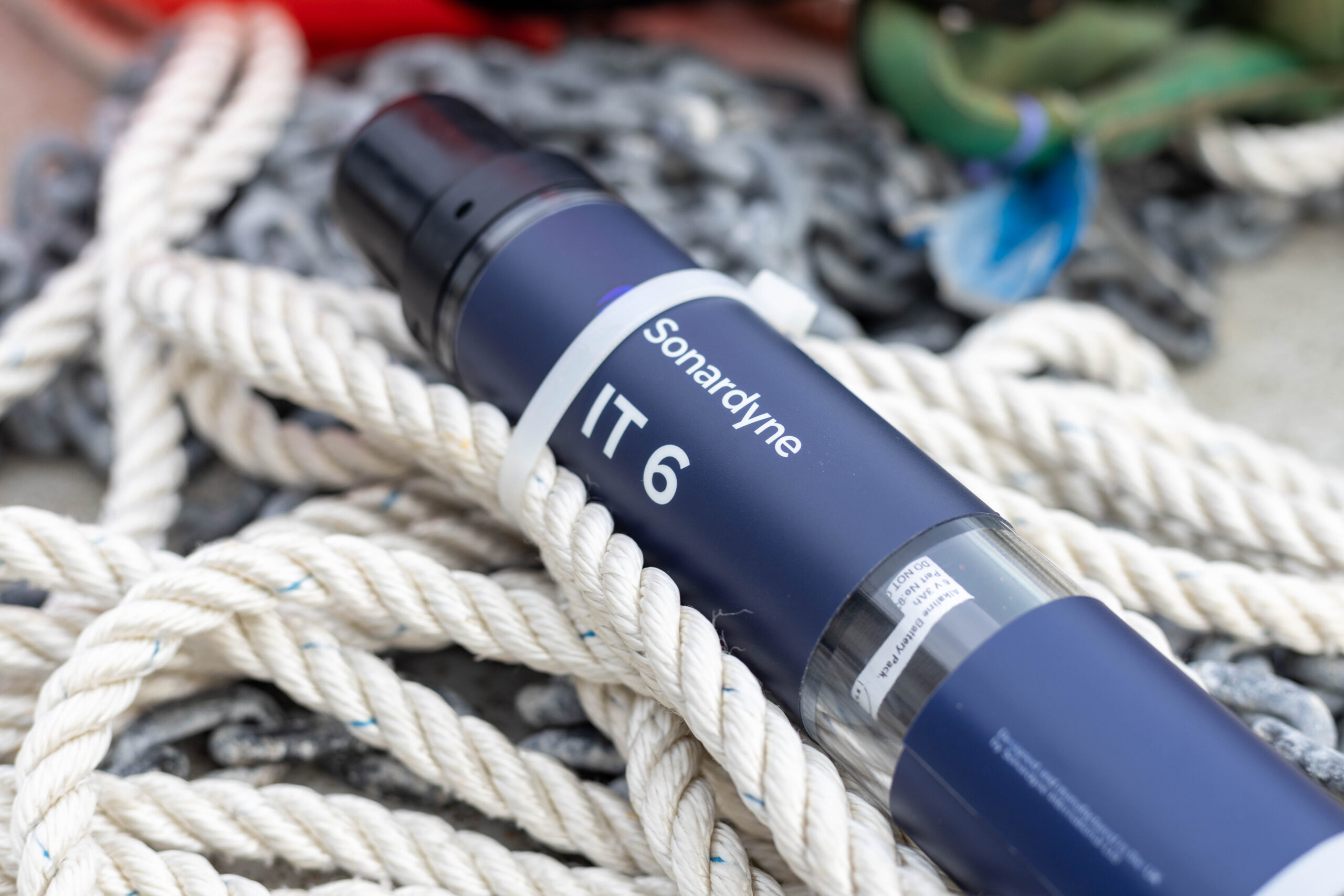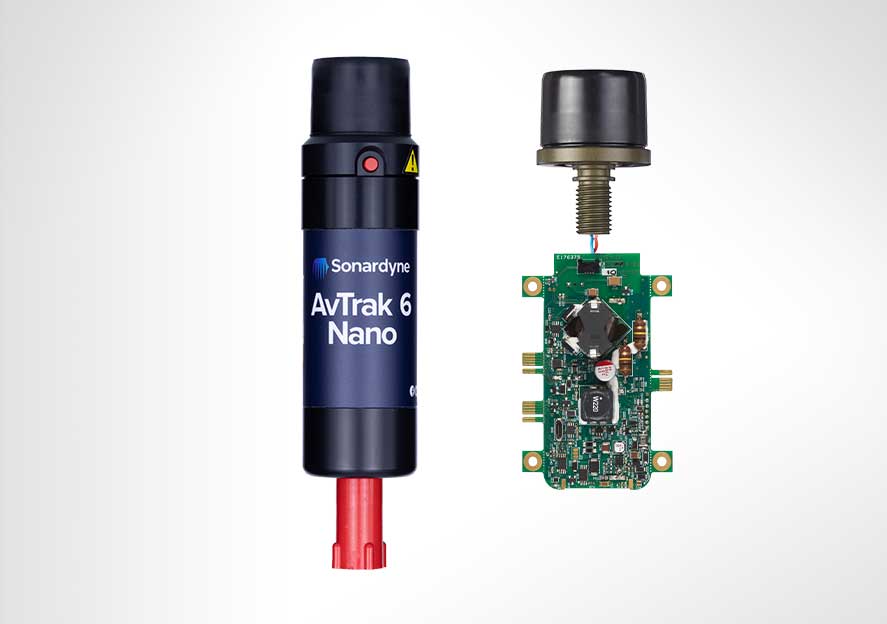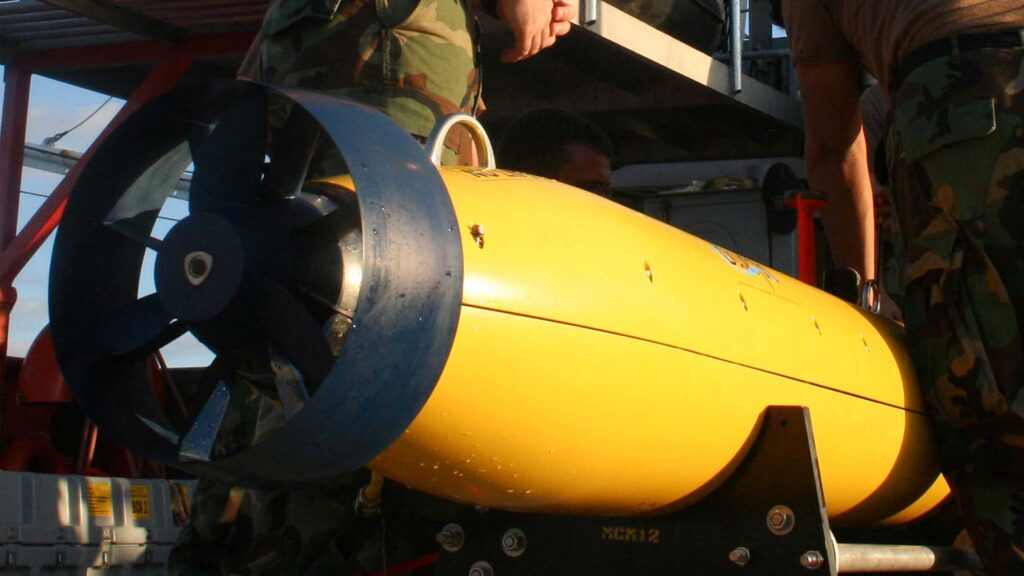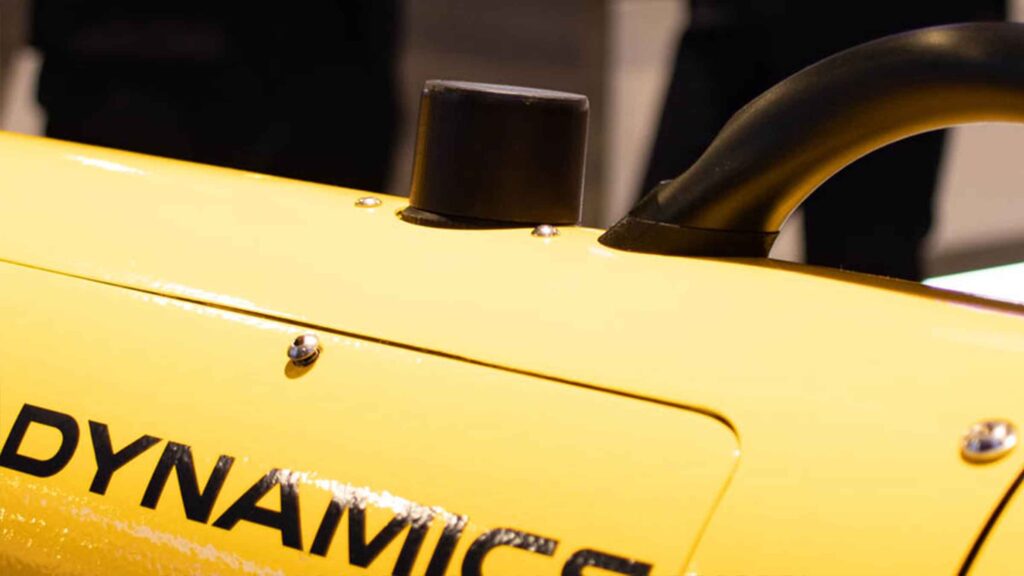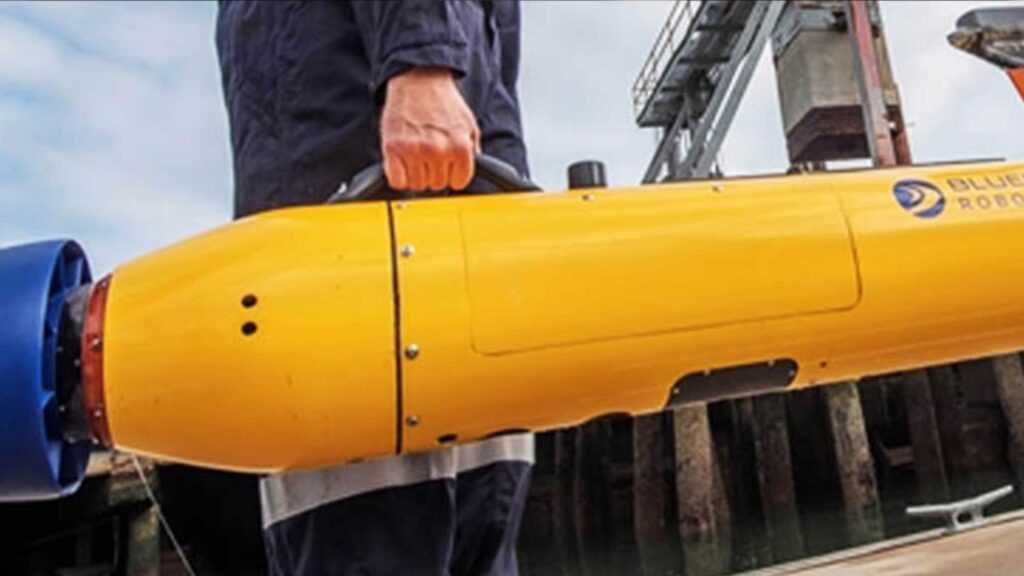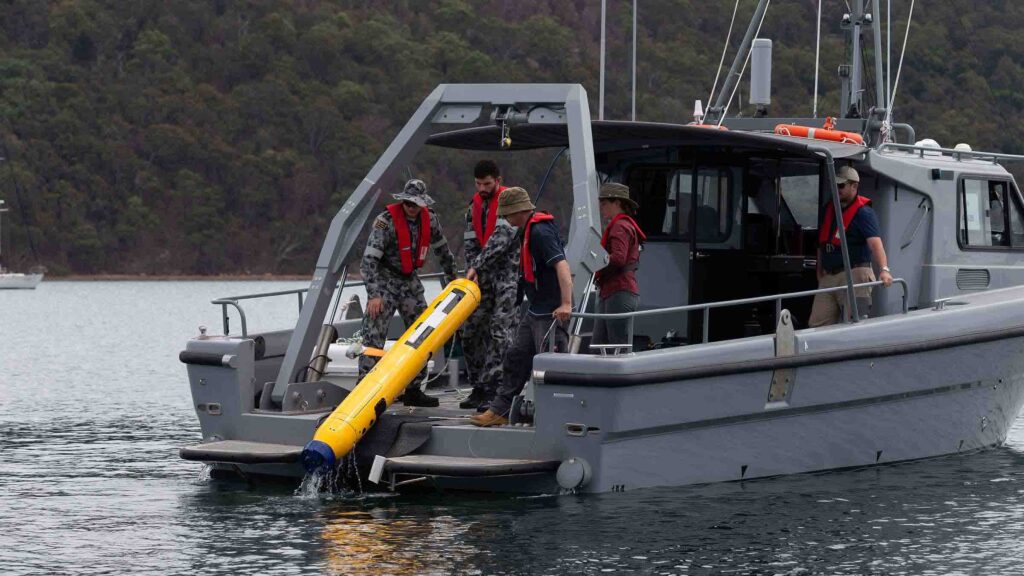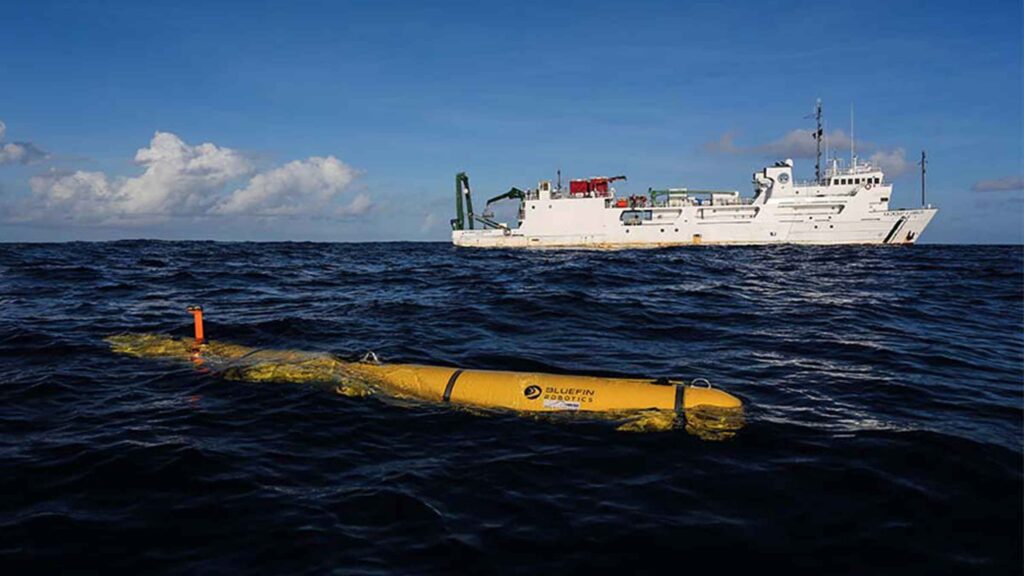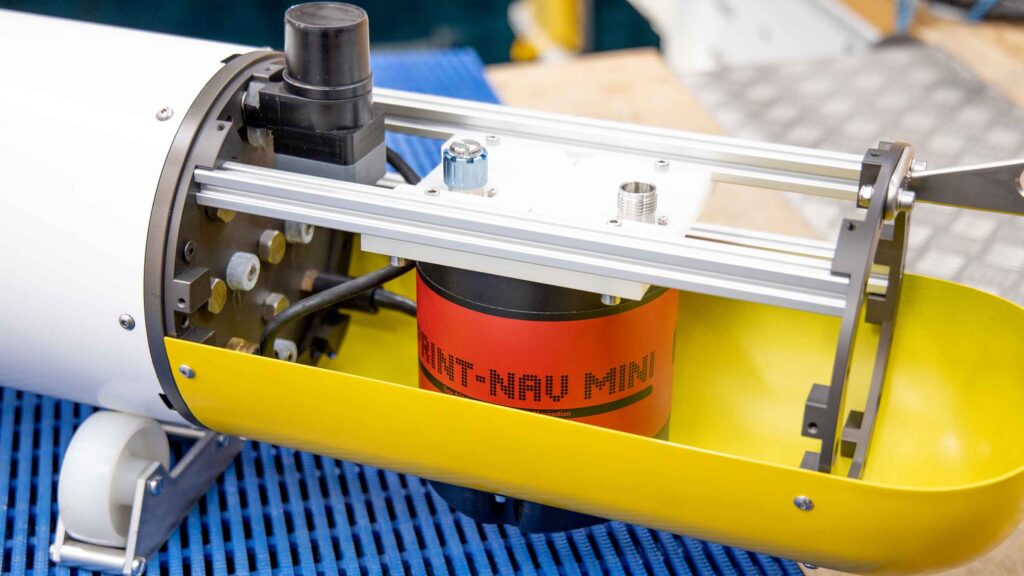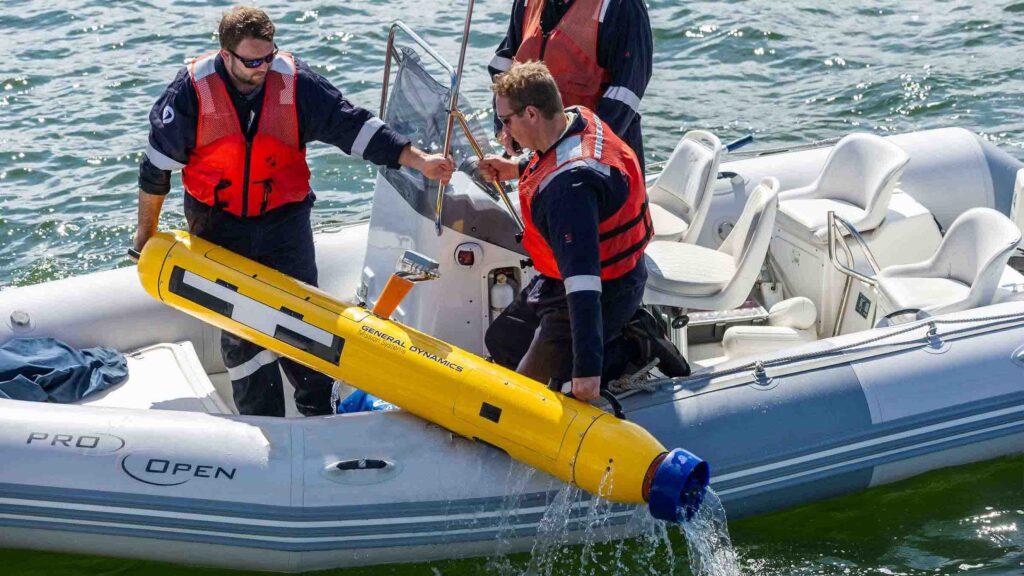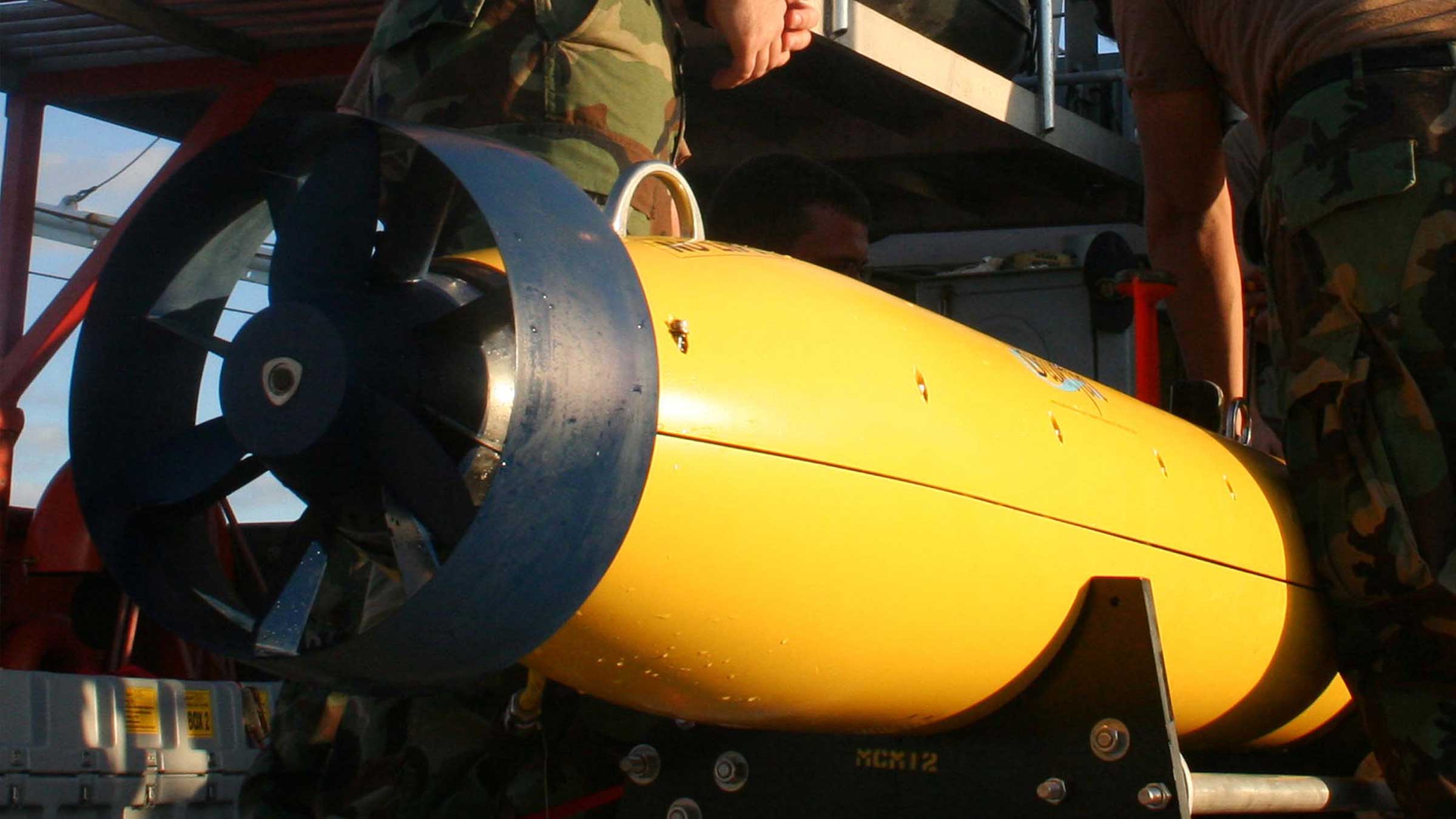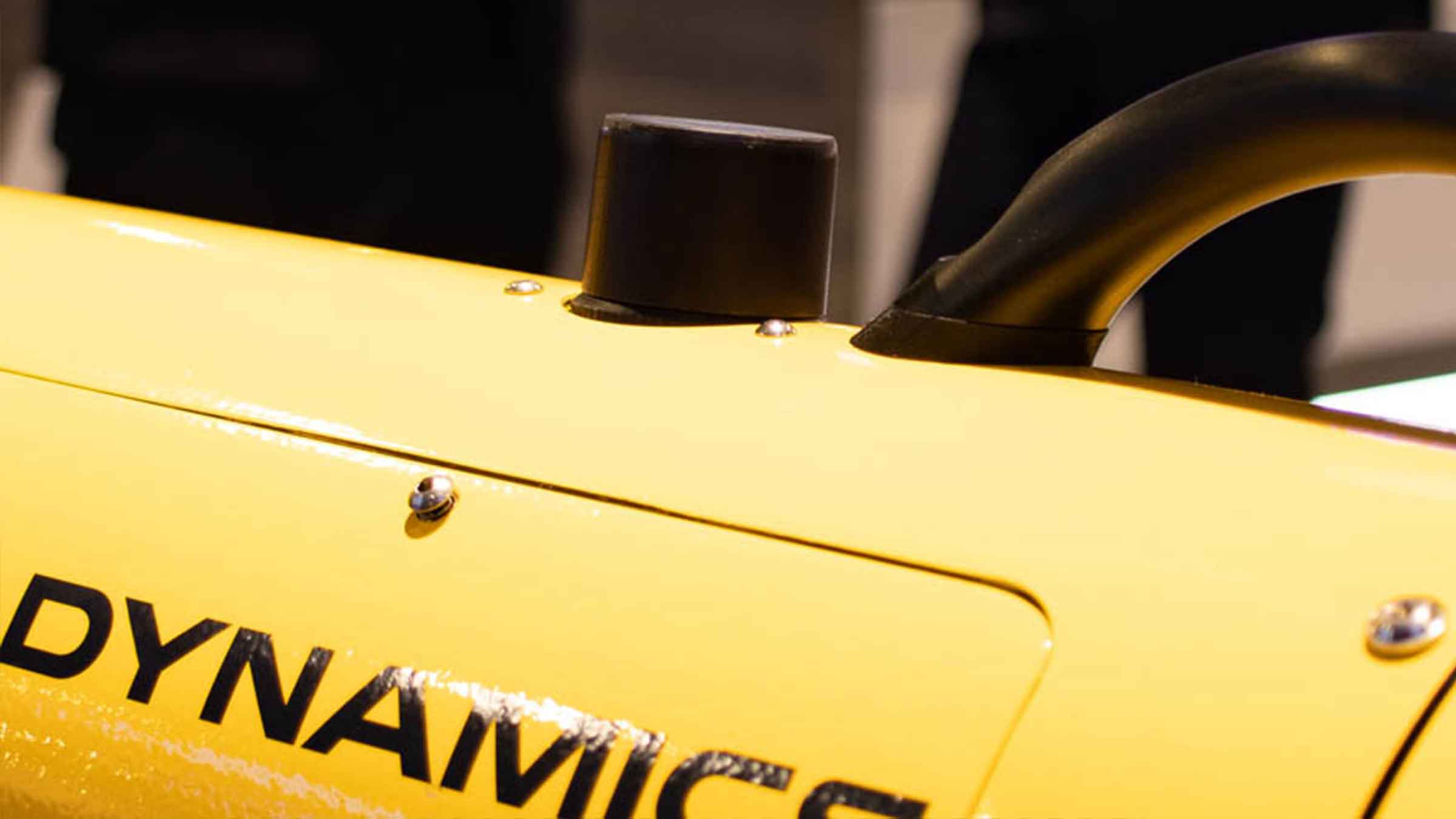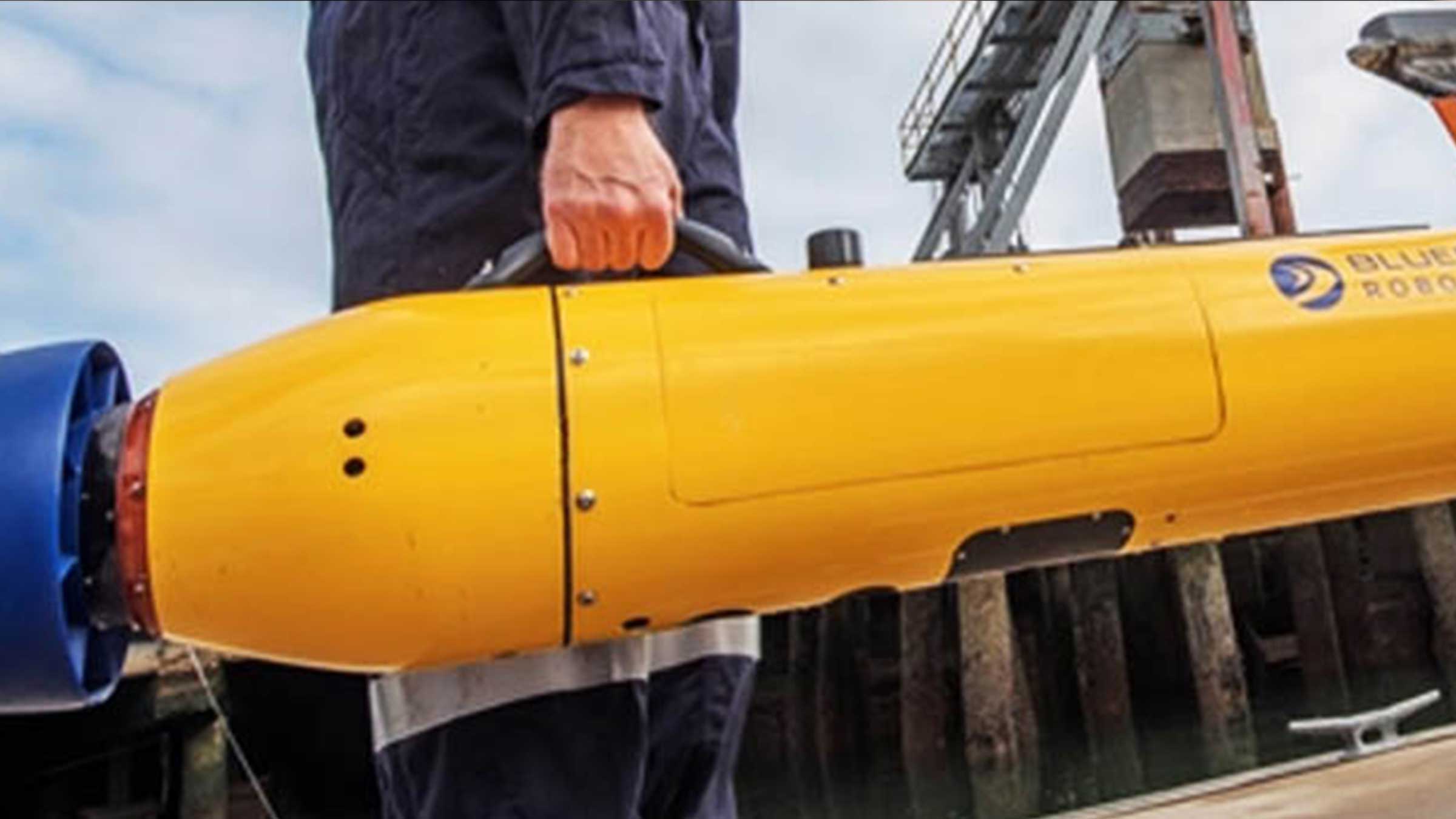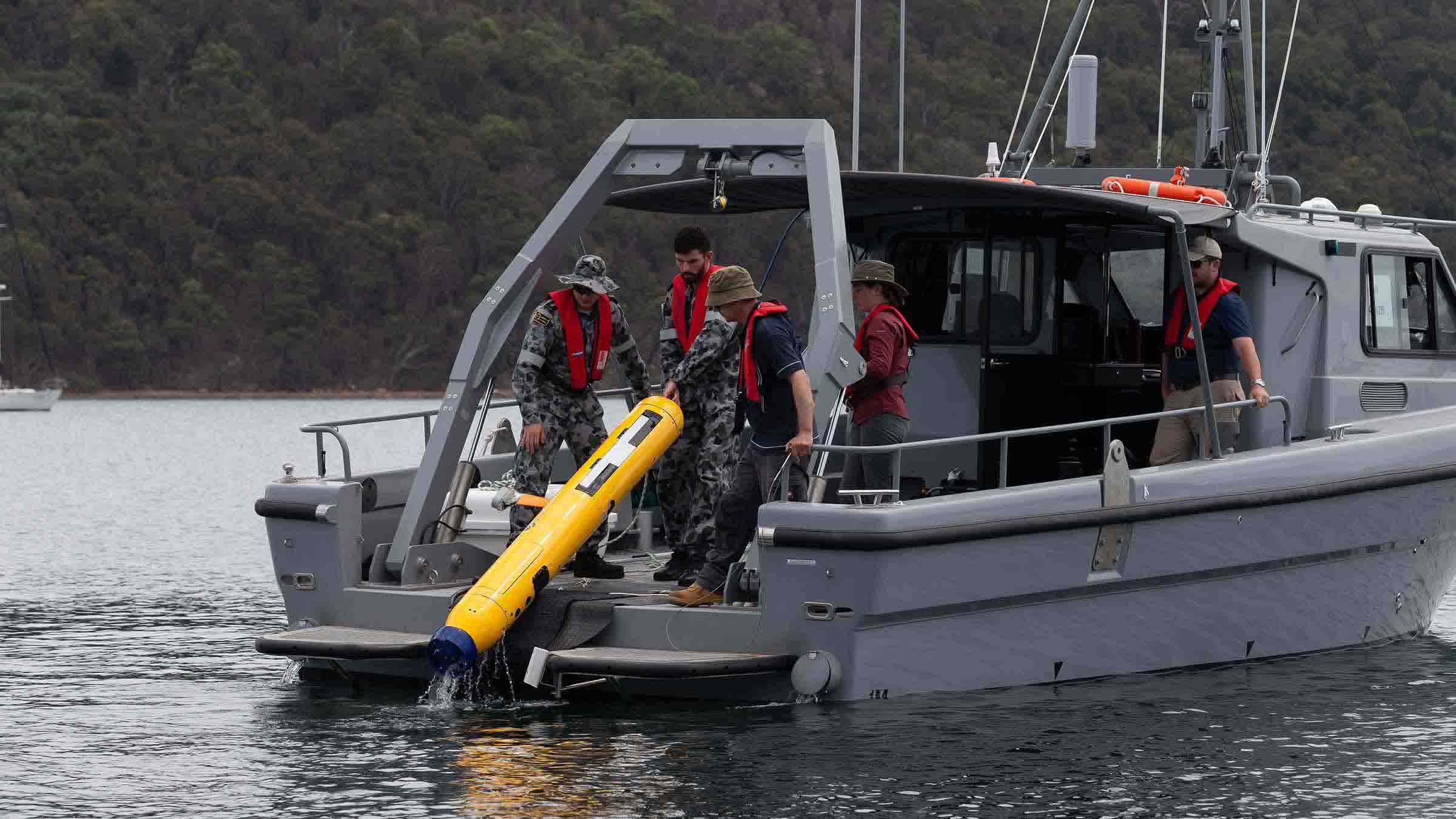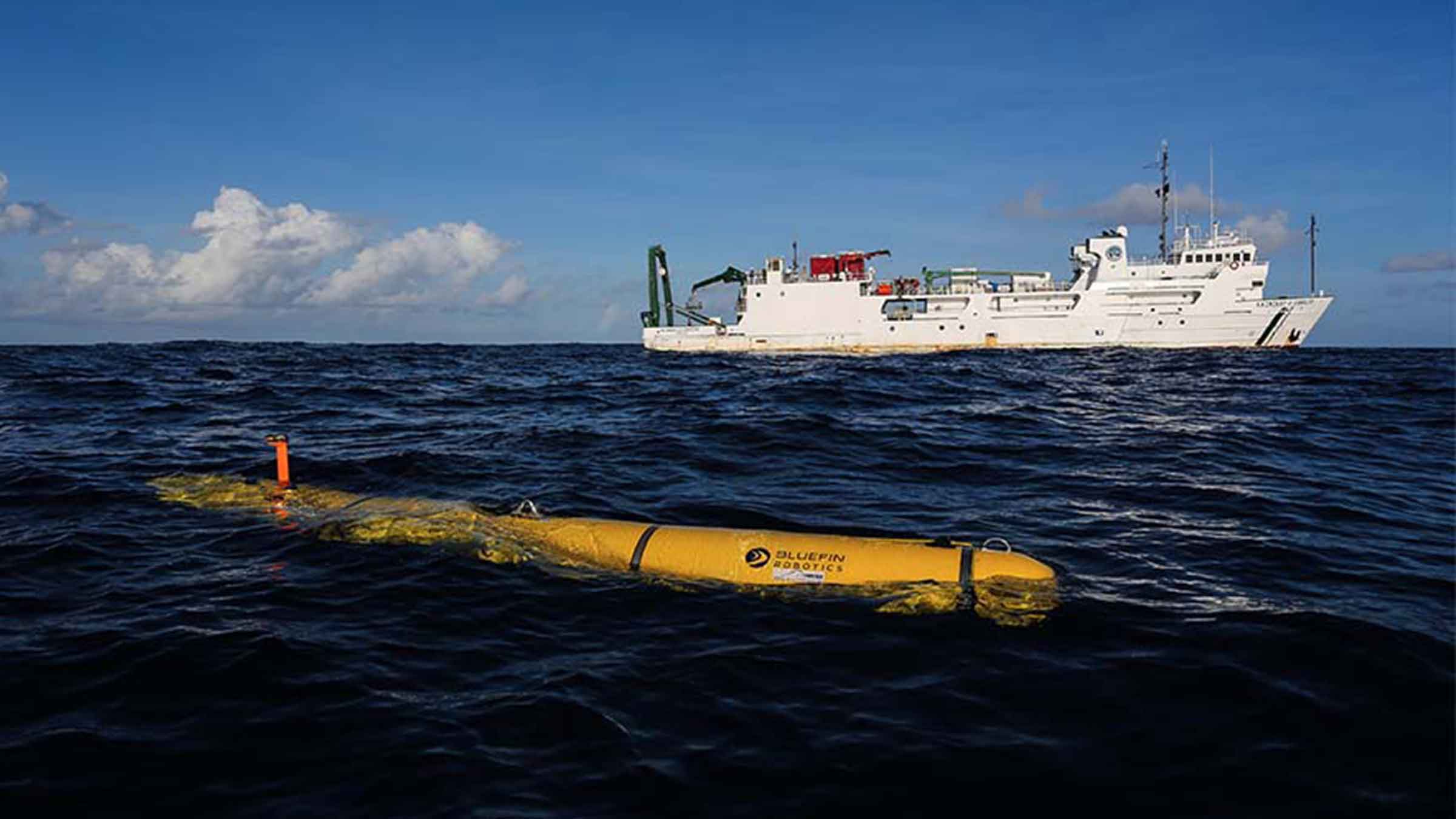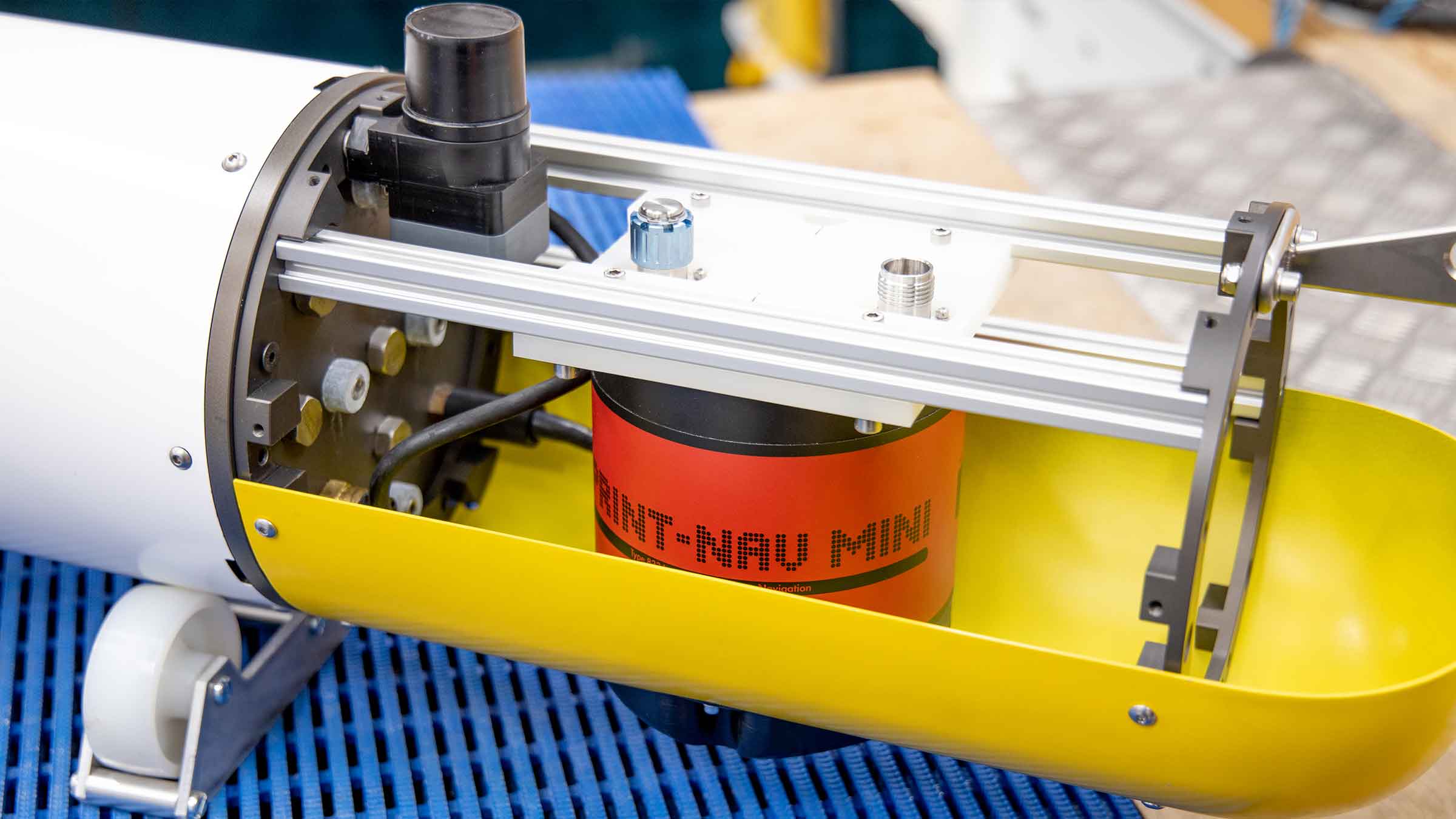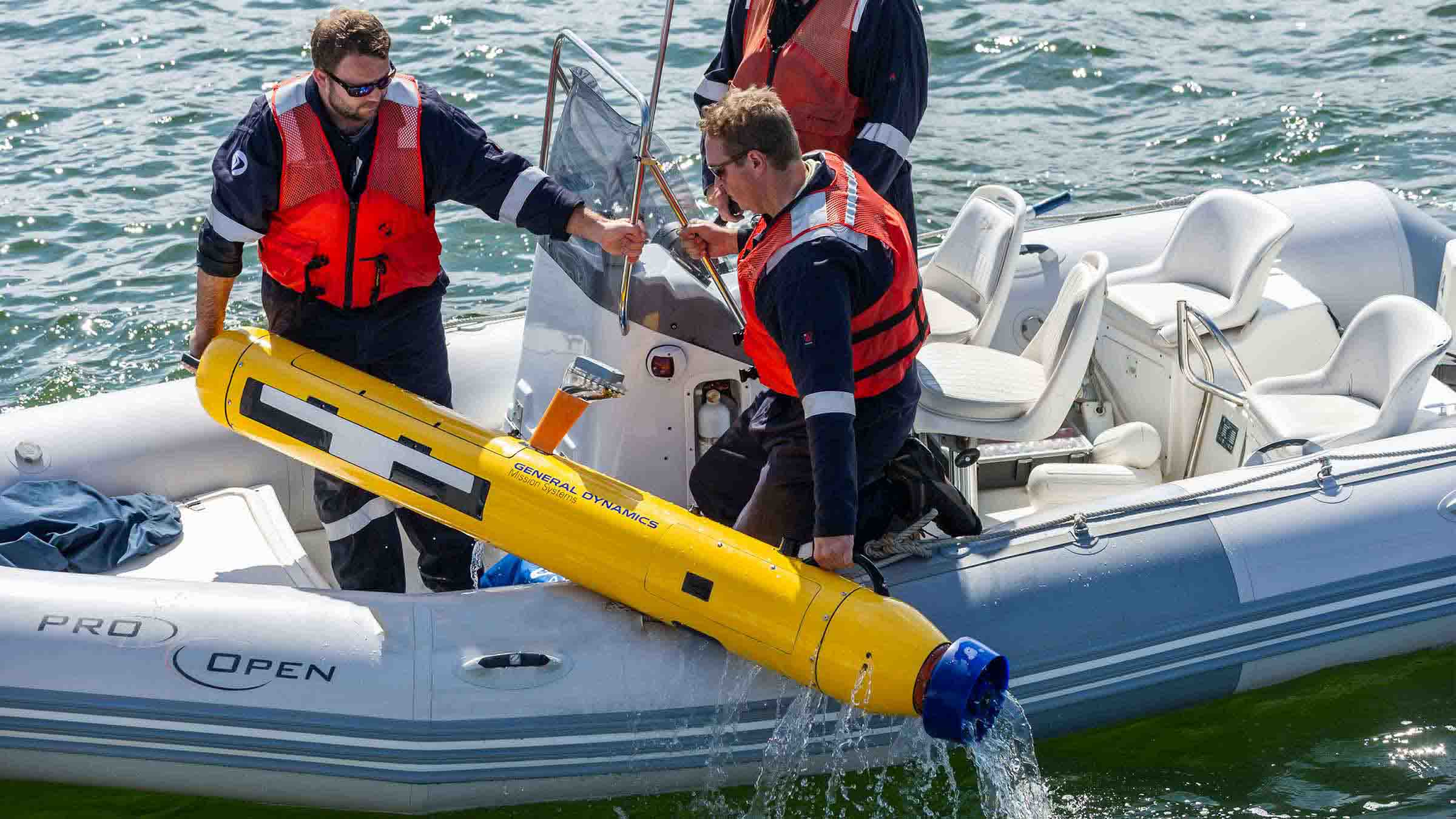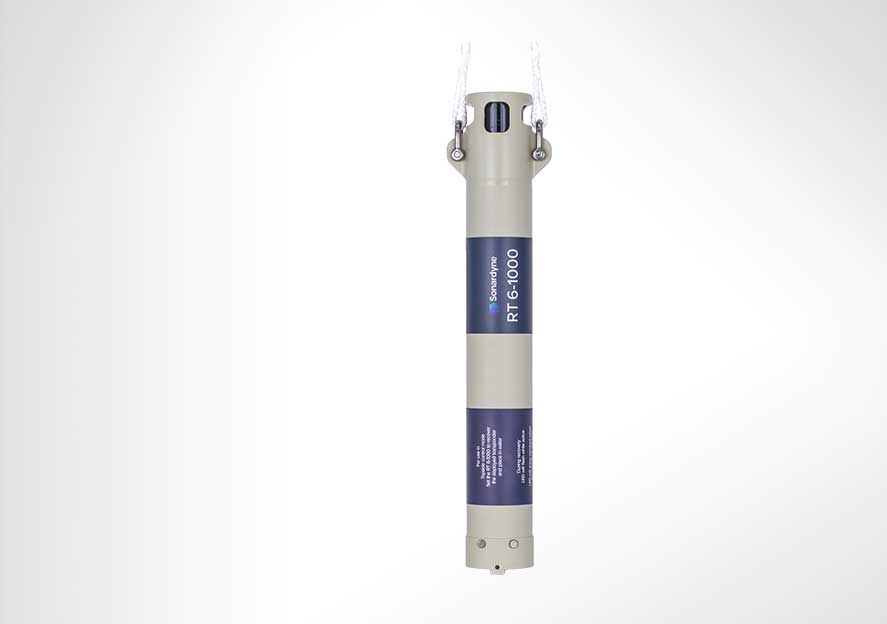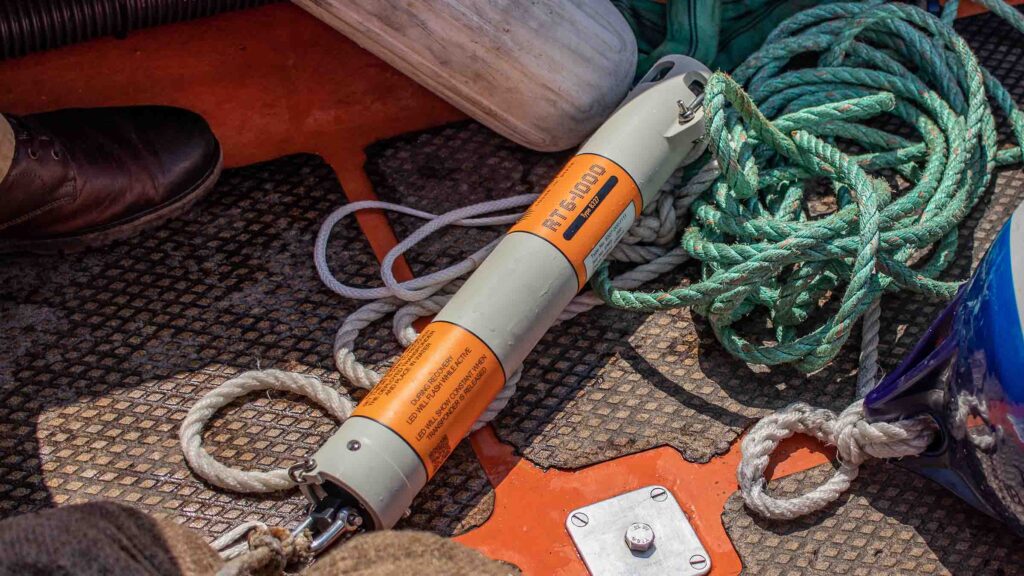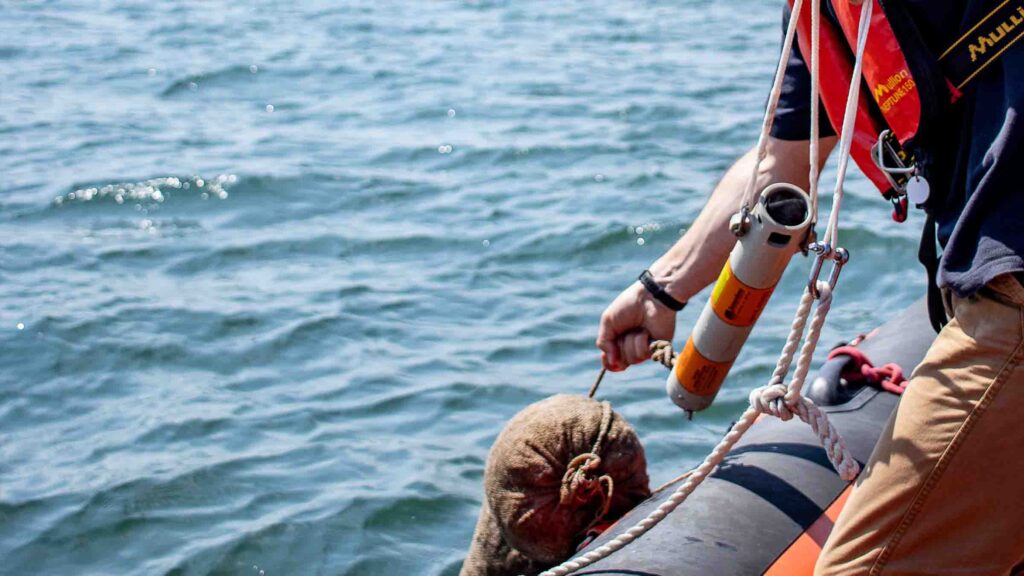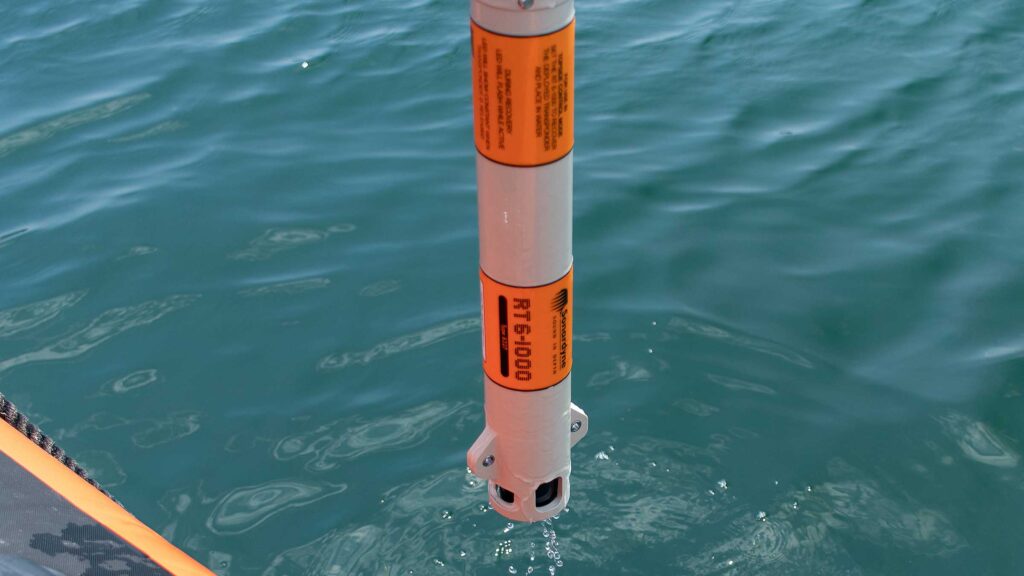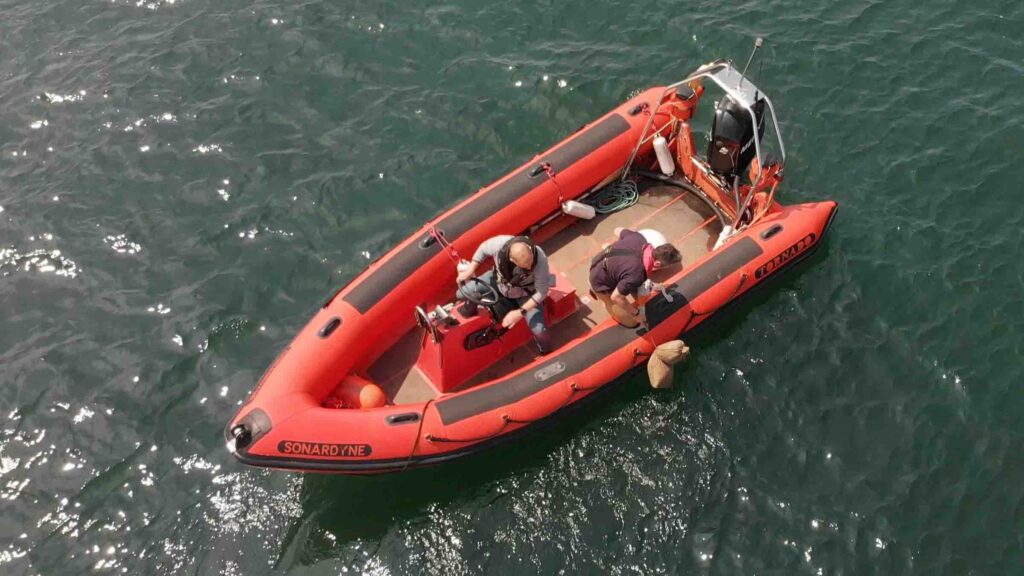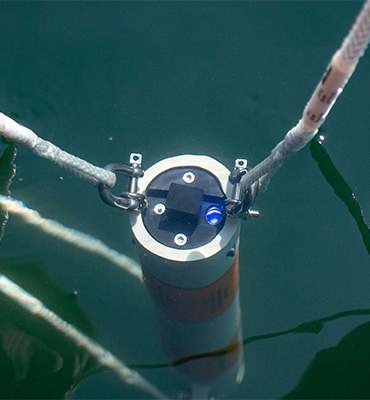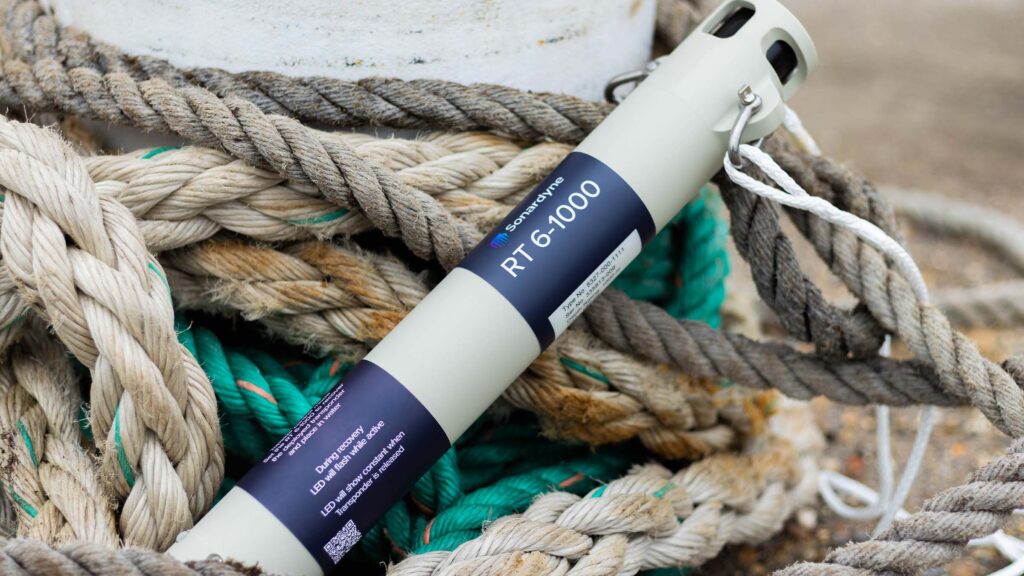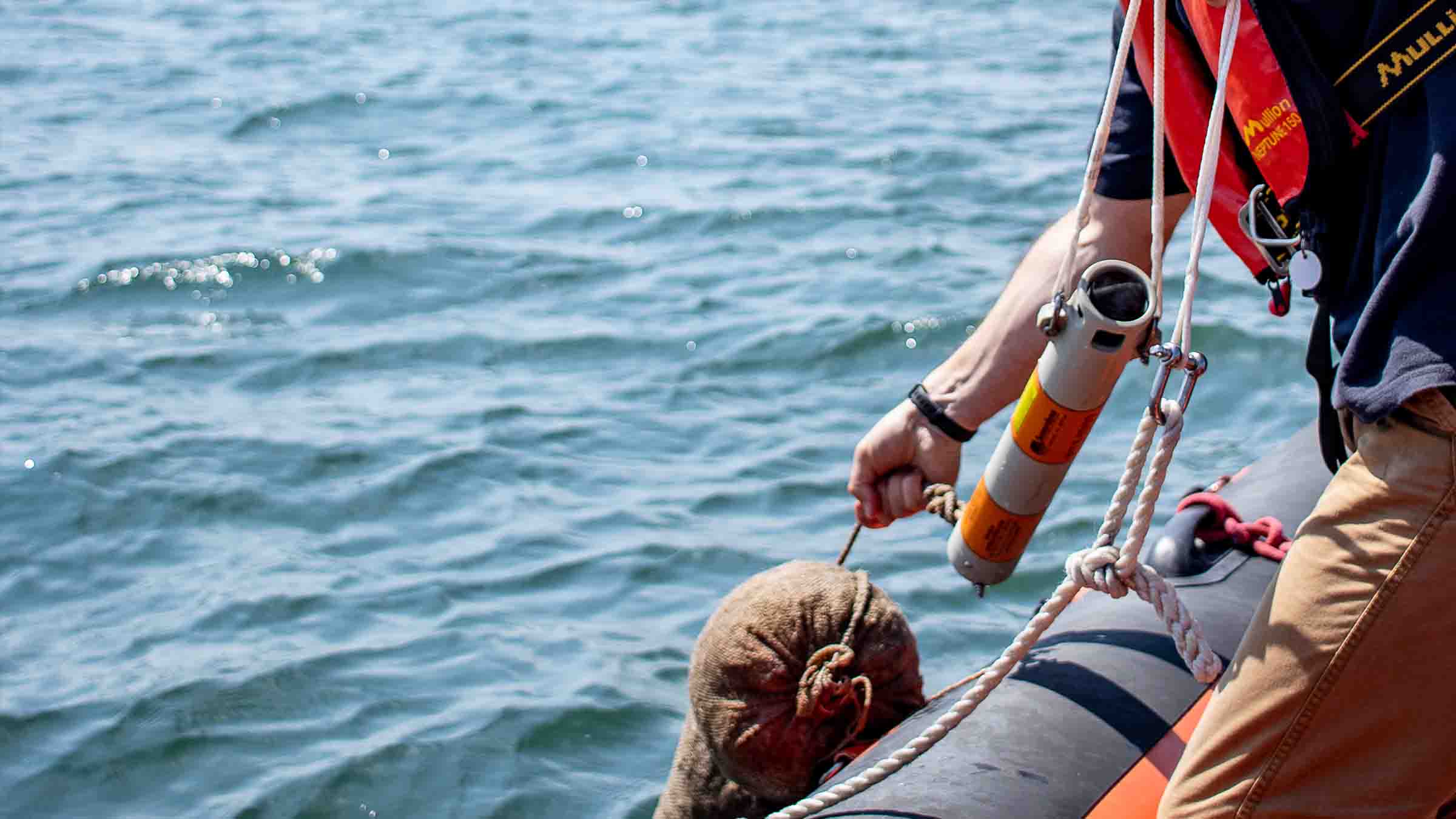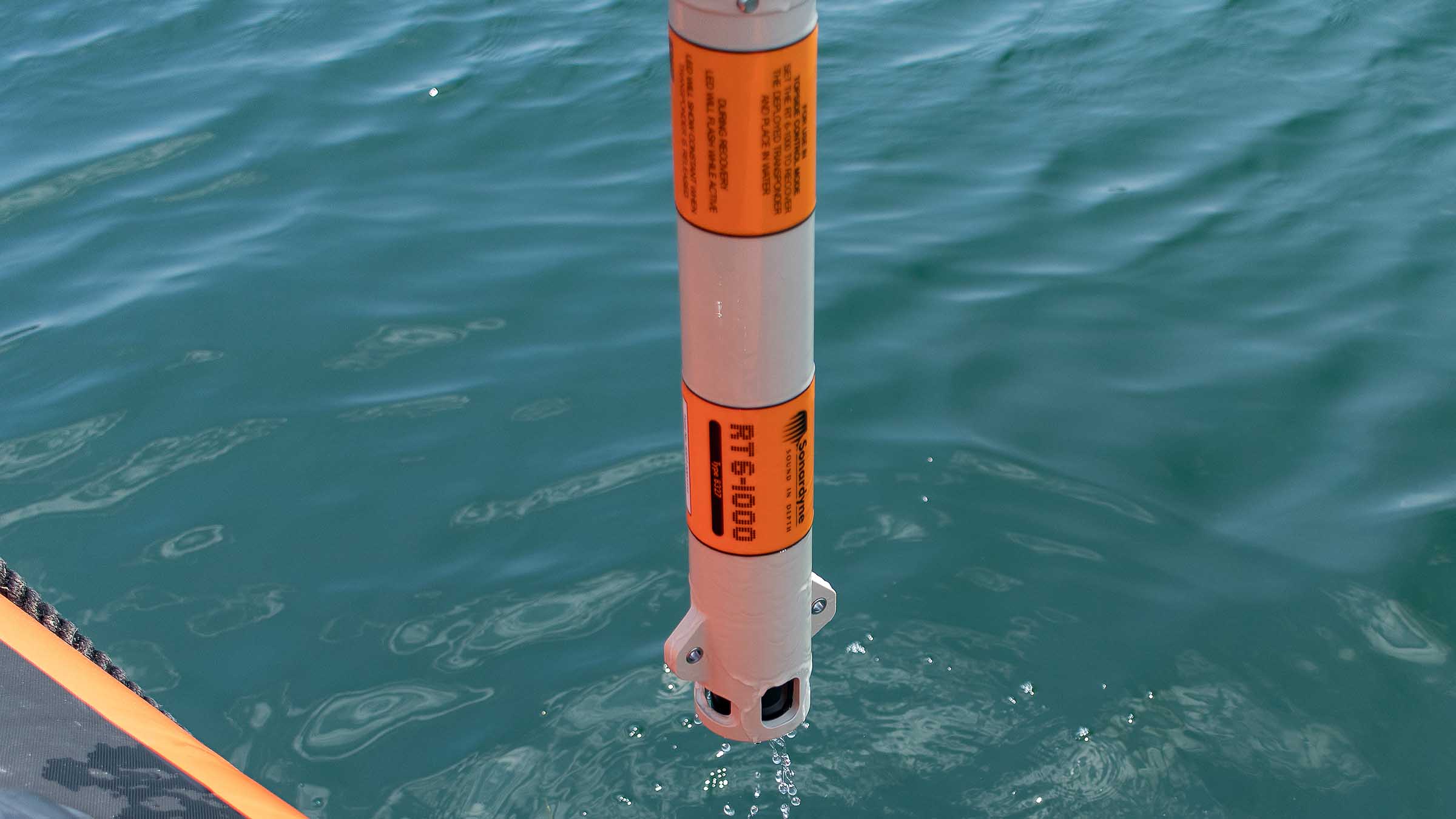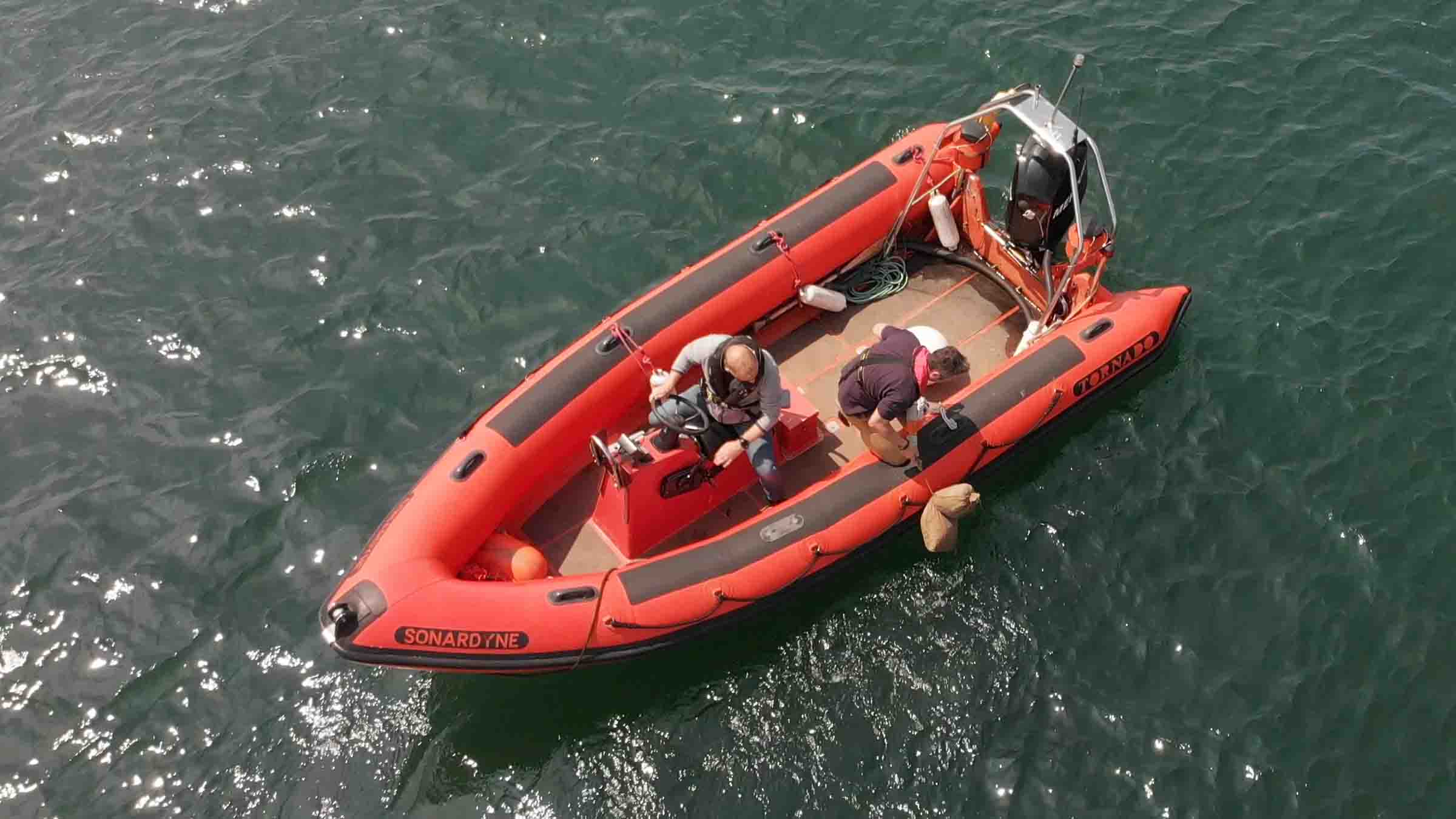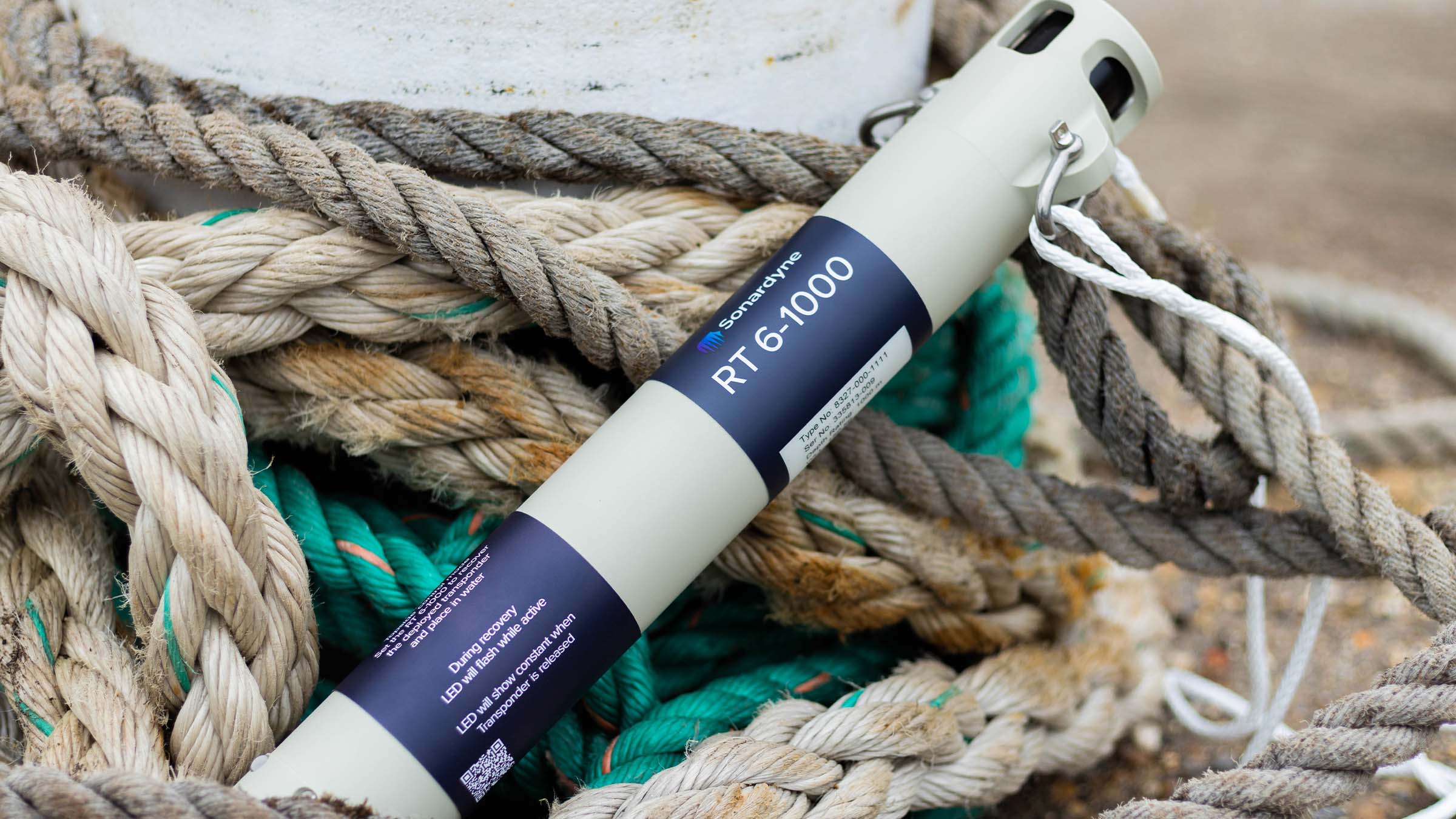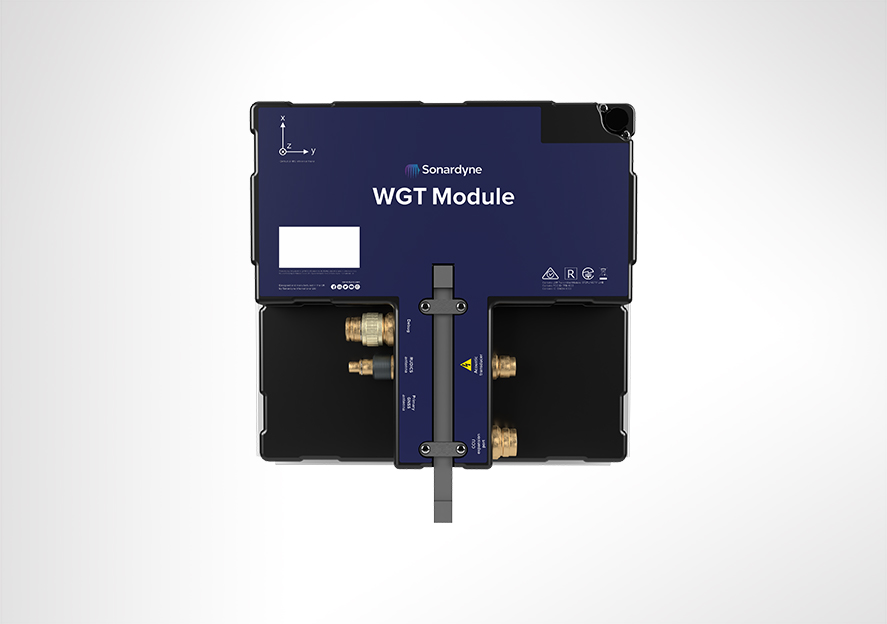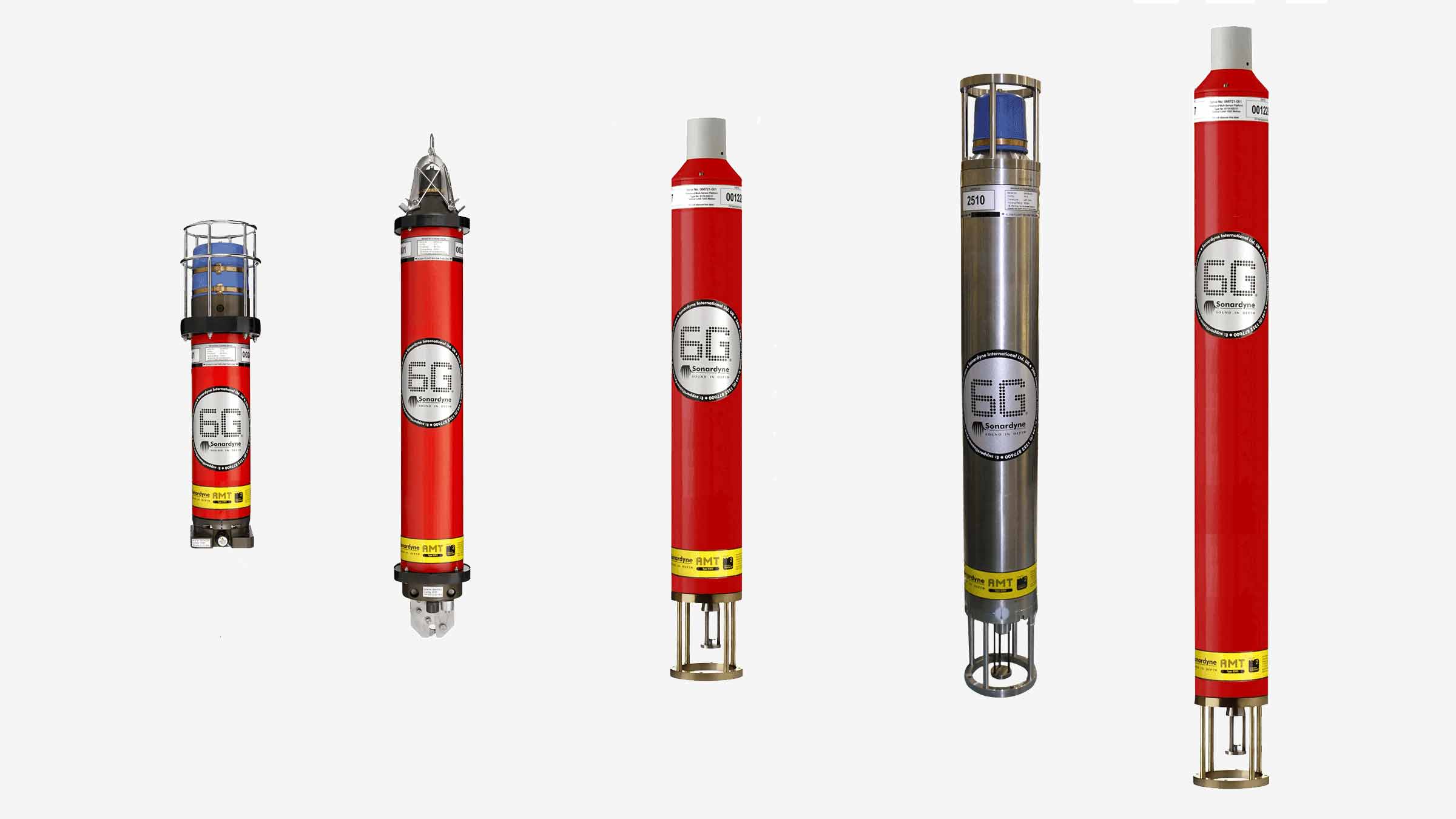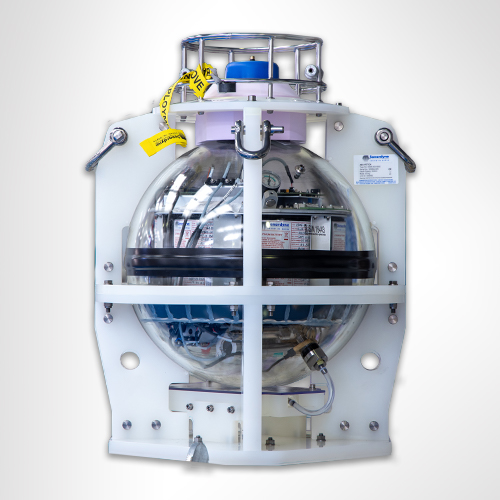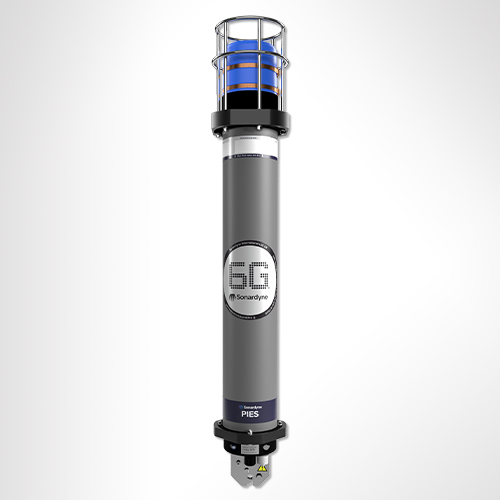Combined excellence
Overview
Equinox is a true example of how Covelya Group technologies combine to provide ground-breaking products. Designed around the Solstice MAS from Wavefront Systems, it is commercialised by Sonardyne and features our state-of-the-art SPRINT INS and Mini-Ranger 2 USBL for state-of-the-art navigation and positioning.
The Sonardyne and Wavefront Systems payloads are all mounted on EIVA’s renowned ScanFish 3D, a steerable remotely operated towed vehicle (ROTV). EIVA’s NaviSuite Kuda user interface is used to plan, autopilot and display the gathered data in real-time.
Producing stunningly accurate pictures, it’s ideal for vessels of opportunity or unmanned surface vessels delivering hydrographic, archaeological, search, salvage, unexploded ordnance, and mine countermeasure missions.
At a glance
- Mission ready; designed to support search, classify and map (SCM) and hydrographic operations
- Survey more ground in a single pass; effective area coverage rate (ACR) of up to 1.6 km2/hr
- Along track resolution of 0.15°; best in class delivering maximum detection rates
- Co-located side-scan image and bathy improves your situational awareness
- Real-time motion compensation and positioning accuracies better than 1 m DRMS
- Automatically follows terrain and avoids obstacles
- Suitable for site survey and characterisation and high tempo MCM missions
Why Equinox is perfect for your operations
The ScanFish 3D is a trusted ROTV and, thanks to its inherent stability, the ideal platform to operate Solstice from. At a total weight of 220 kg in air, Equinox can be easily mobilised.
Unlike towed Synthetic Aperture Sonar (SAS) systems, Equinox offers you an affordable, lower-logistics alternative still capable of providing high area coverage rates. By combining leading navigation and positioning from Mini-Ranger 2 USBL and SPRINT INS, imaging data is geo-referenced with an accuracy that’s unrivalled for these types of applications at this price.
Planning a mission is easy. Using NaviSuite Kuda software, you can define your sailing route and run-lines by simply selecting the area you would like to cover. During the mission, NaviSuite Kuda continuously updates the vessel and ScanFish 3D position in real-time.
Equinox also provides real-time geo-rectified waterfall, mosaics and DTM maps and the user interface tools that enable an operator to mark and process objects, including automatic target recognition using AI.
That’s not all; ScanFish 3D can carry heavier payloads and there is room in the fibre cable to include additional payload sensors such as gap fillers. Equinox users can count on improved probability of detection and decreased probability of false alarms, improving the efficiency of your mine countermeasures, archaeological, search and salvage missions.
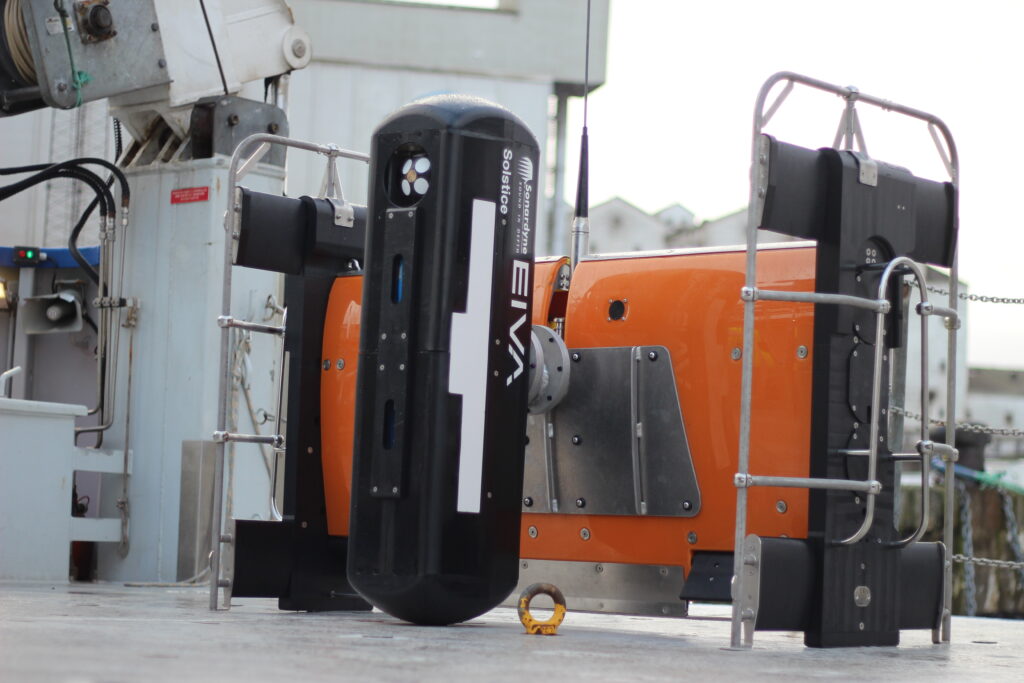
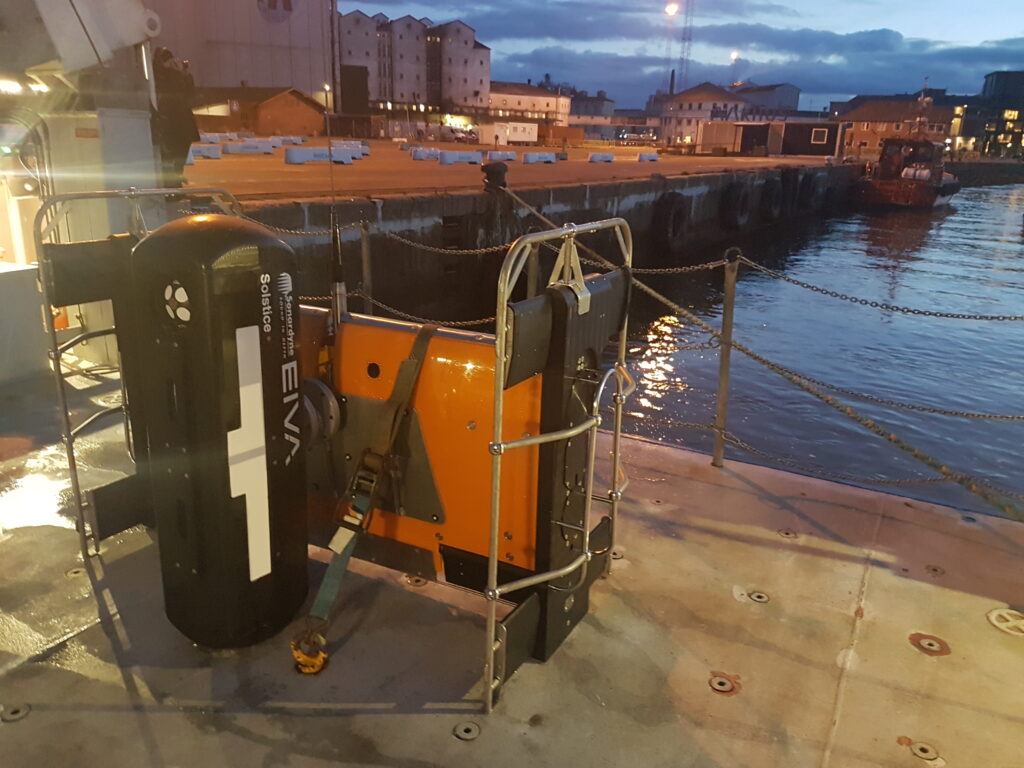
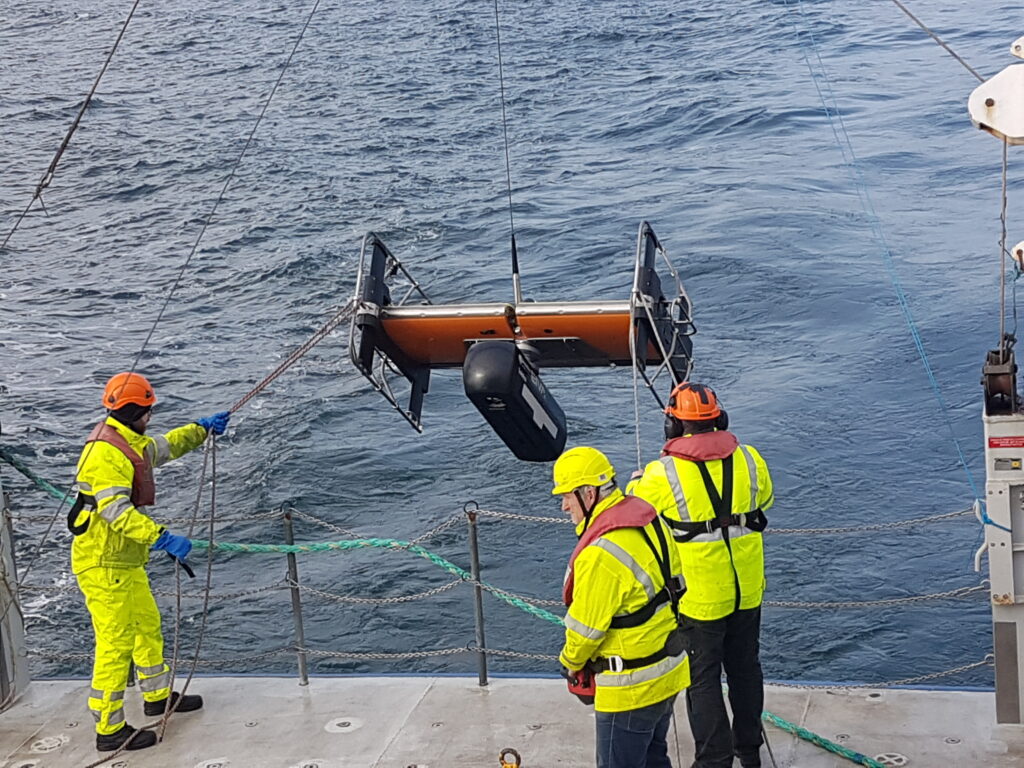
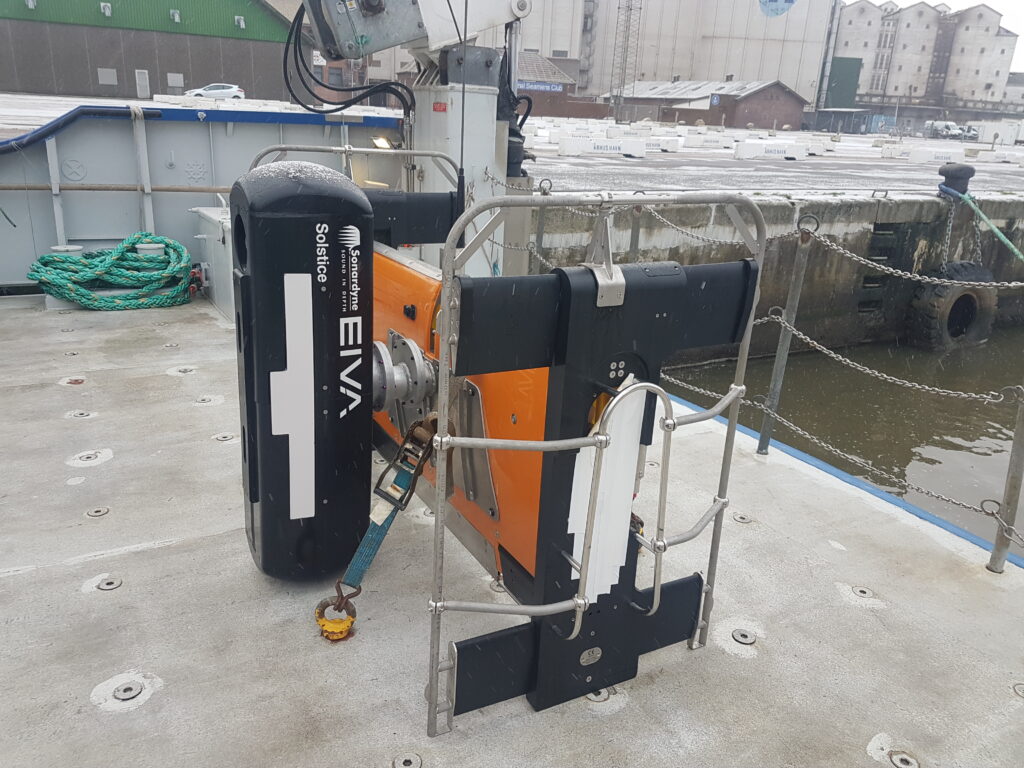
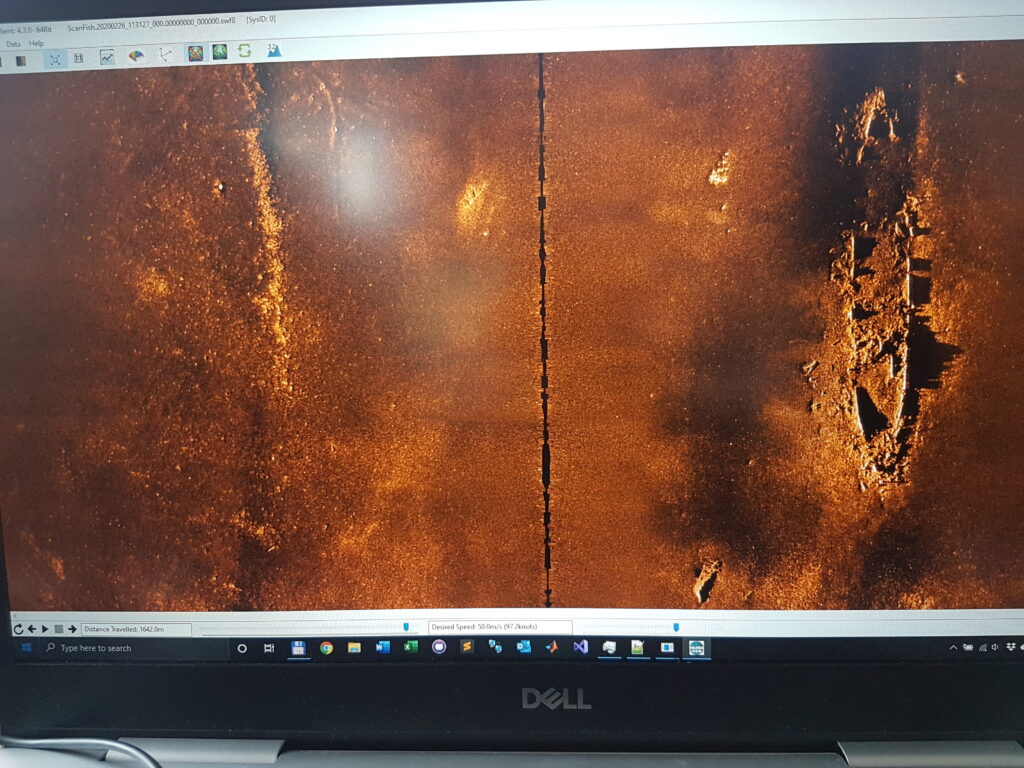
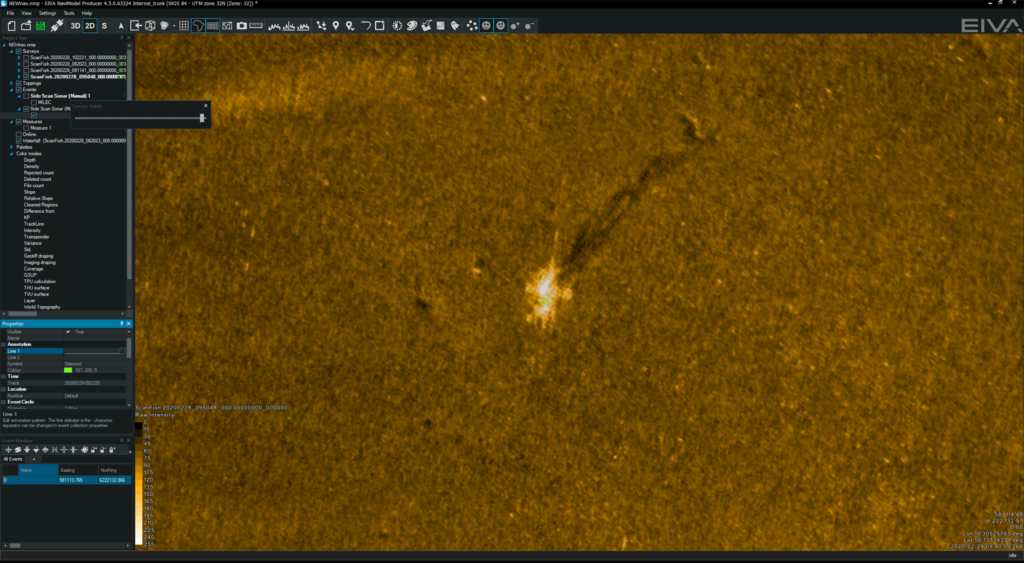
Equinox case studies
General
• All-in-one, rapidly mobilised solution for MCM, SCM and hydrography
• High stability platform with automatic terrain following
• NaviSuite Kuda software reduces planning times and improves processing times
• Everything supplied, including winch and 1Gbps cable
Performance
• Depth rated to 300 m
• Across track resolution 37.5 mm
• Along-track resolution 0.15°
• Geo-rectified waterfall display
• Image resolution 30 mm x 30 mm
• Co-located 200m swath side-scan and bathy
• Real-time CAD/CAC option
Design (SCANFISH)
• 1210 mm x 1858 mm x 1049 mm, 220 kg in air (73 kg in water)
• Survey speeds 3 to 6 knots
• Pitch and roll stabilised
• Automatic altitude following
Ownership
• What’s in the box: ScanFish 3D, NaviSuite Kuda software, cable and winch, Solstice MAS, Mini-Ranger 2 USBL, WSM 6+, SPRINT 500 INS, DVL
• Warranty: 1 year return to Sonardyne/EIVA service centre
• ITAR Controlled: No
• UK Export License: TBD
Datasheets
Navigating the unknown
Key benefits:
- Real-time 3D terrain mapping of seabed and water column
- Extended detection range up to 1.5 km with a 120-degree field of view
- Automated collision hazard warnings
- Compatibility with autonomous vessel systems
- Depth mapping capabilities to 100 metres
- Two operational modes: 3D mode and Sonar mode
Engineered for versatility, Vigilant offers unrivalled underwater situational awareness with a cutting-edge long-range detection system. This compact, powerful system provides unprecedented underwater detection and mapping capabilities for energy, defence, scientific, and autonomous marine operations. Designed by Wavefront Systems and commercialised by Sonardyne, Vigilant forward-looking sonar revolutionises maritime navigation and safety across multiple sectors. Its compact 31 cm-wide design weighing just 14 kg allows for easy installation on vessels ranging from exploration cruises and private yachts to naval ships and research vessels. The system can be seamlessly retrofitted to existing vessels or integrated into new builds.
How it works
The system consists of a sophisticated sonar projector and receiver array mounted at the vessel’s bow, complemented by advanced bridge software. Its proprietary Altitude Confidence Filter (ACF) generates precise, colour-coded depth imagery, enabling crews to navigate challenging environments with confidence.
Seaborne collision avoidance is also a vital consideration for autonomous ships and an ever-increasing number of unmanned surface and underwater vessels in the offshore energy, ocean science and naval market sectors. Vigilant can be integrated into these autonomous platforms to provide essential information to autopilots and command and control systems, to aid safe navigation and manoeuvres around hazardous obstacles.
Vigilant has two principal operating modes, 3D mode and Sonar mode. 3D mode produces stunning 3D bathymetry and colour coded depth imagery using our proprietary Altitude Confidence Filter (ACF), out to 600 m and down to 100 m. Sonar mode processes the intensity of the acoustic data to extract long-range positional data out to 1.5 km and over a 120 degree field of view. In this mode, the sonar returns are used to generate alerts to the operator (or a third-party system) to the presence of a navigationally relevant obstacle.
For naval and security applications, Vigilant can be combined with Sentinel intruder detection systems, providing comprehensive underwater threat protection. Whether exploring secluded bays, navigating busy shipping lanes, or venturing into polar regions, Vigilant delivers unparalleled maritime intelligence and safety.
Comprehensive engineering support is available to ensure seamless installation and commissioning, making Vigilant your essential tool for modern marine operations.
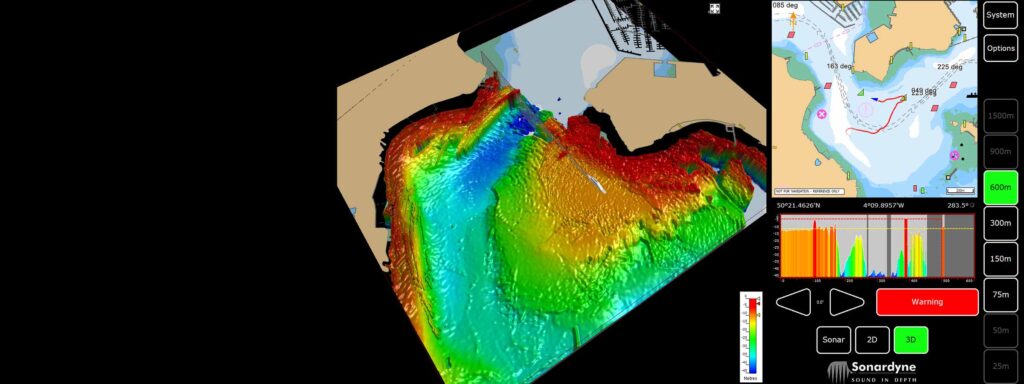
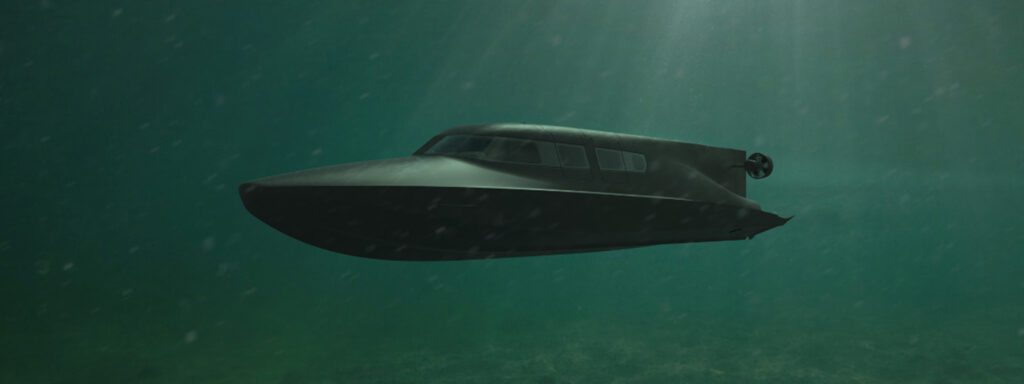
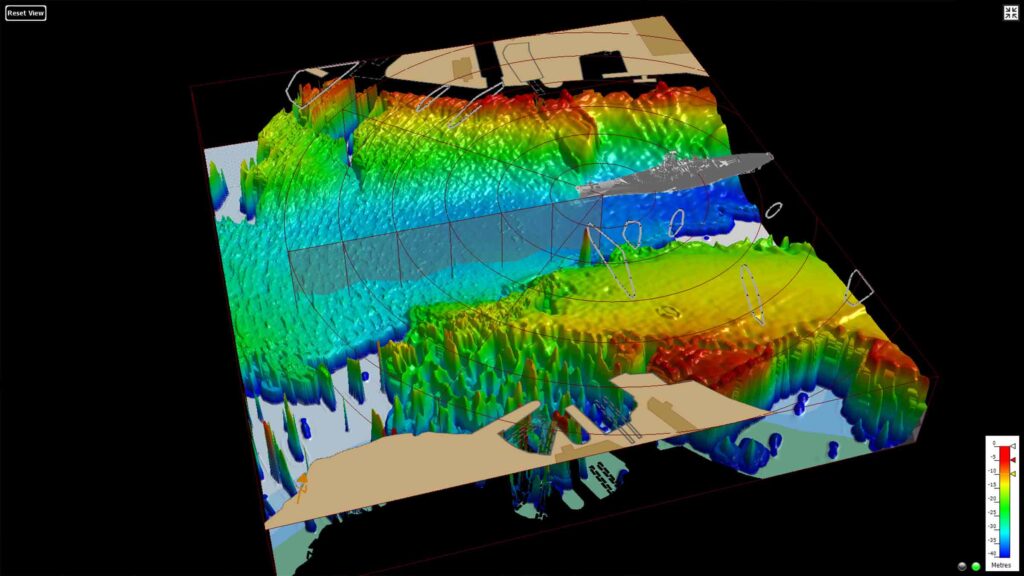
Over 2km coverage from one unit
Key benefits
- Up to 2,400 m diameter protection zone using a single sonar head
- Detects divers up to 900 m away and UUVs up to 1,200 m away
- Up 10 targets tracked and classified simultaneously
- Helps protect ports, harbours, naval bases, private yachts, residences, power stations, offshore platforms
- Rapidly deployed for instant protection
- Low false alarm rate
- In service globally since 2007
- One of the smallest IDS solutions on the market; take it and deploy it anywhere
- Commercial-off-the-shelf technology that integrates seamlessly with your existing security systems
- No specialist sonar experience needed; software automates most of the heavy lifting
- Can be remotely monitored from anywhere in the world
Discover Sentinel, the cutting-edge maritime security system designed to revolutionise your underwater threat detection and protection. Our innovative technology combines unparalleled flexibility with intelligent threat assessment, offering you comprehensive security solutions for diverse maritime environments. From compact deployments on patrol vessels to extensive networked systems protecting expansive naval bases and container ports, Sentinel adapts seamlessly to your operational requirements. With its lightweight design, advanced algorithmic discrimination, and seamless C2 system integration, Sentinel empowers security personnel to monitor critical areas with unprecedented precision and efficiency, dramatically reducing false alarms while ensuring comprehensive threat detection. It is suitable for:
- Vessel security
- Naval ship protection
- Port and harbour security
- Naval base protection
- Protecting your maritime assets from underwater threats
How it works
Sentinel is your cutting-edge underwater security system designed to detect and track potential underwater threats across a wide range of environments. Designed by Wavefront Systems and commercialised by Sonardyne, this innovative technology provides comprehensive protection for your critical infrastructure, naval vessels, ports, and private properties.
With remarkable detection capabilities, Sentinel can identify divers up to 900 metres away and uncrewed underwater vehicles (UUVs) at distances of 1,200 metres. The system is versatile and easy to deploy, whether protecting a commercial harbour, critical national infrastructure, or a private yacht. Its advanced sonar technology can be quickly installed on boats, ports, or coastlines, creating an instant underwater security shield that operates autonomously.
Its user-friendly design sets Sentinel apart. The complex sonar technology is packaged into intuitive software, allowing security personnel without specialised technical expertise to operate the system effectively. For enhanced threat response, an optional accessory called Scylla can broadcast pre-recorded or live audio messages to divers up to 600 metres away, providing an additional layer of deterrence. Whether dealing with busy harbours, shallow waters, or strategic infrastructure sites, Sentinel offers you reliable, real-time monitoring and threat tracking in virtually any marine environment.
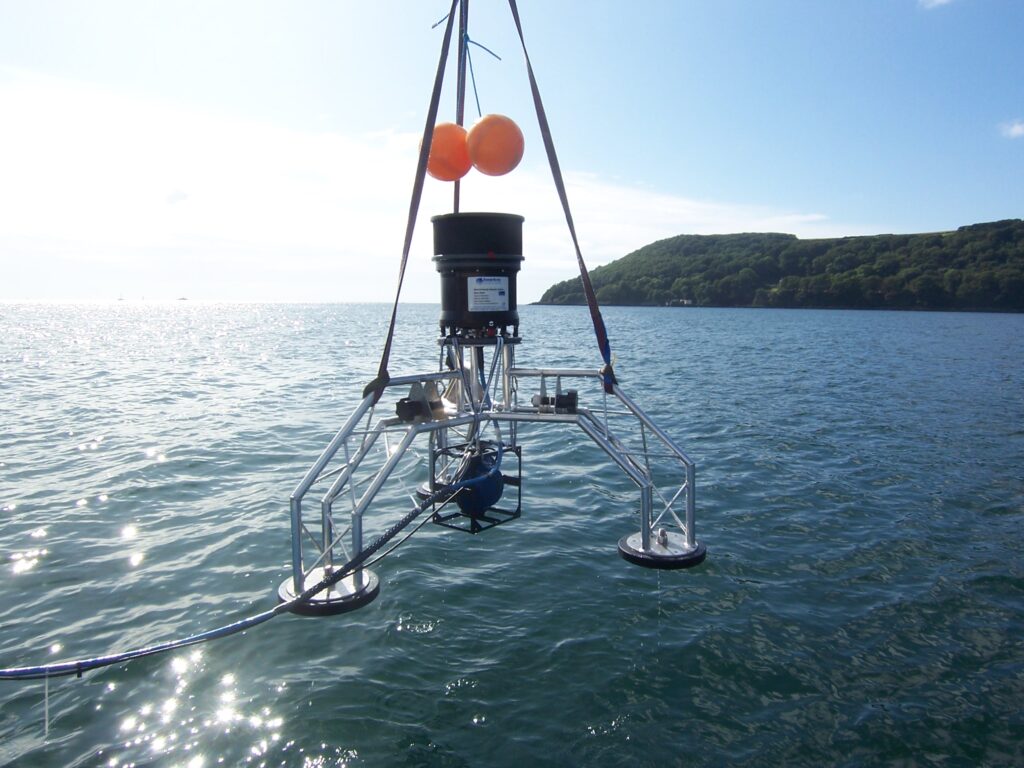
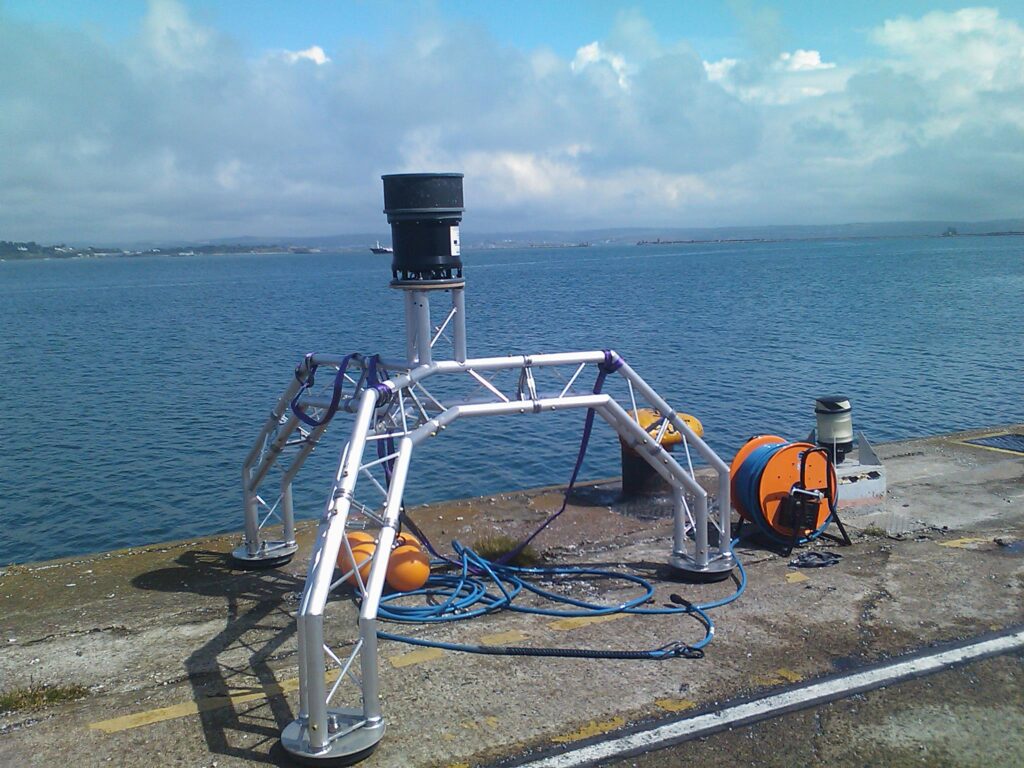
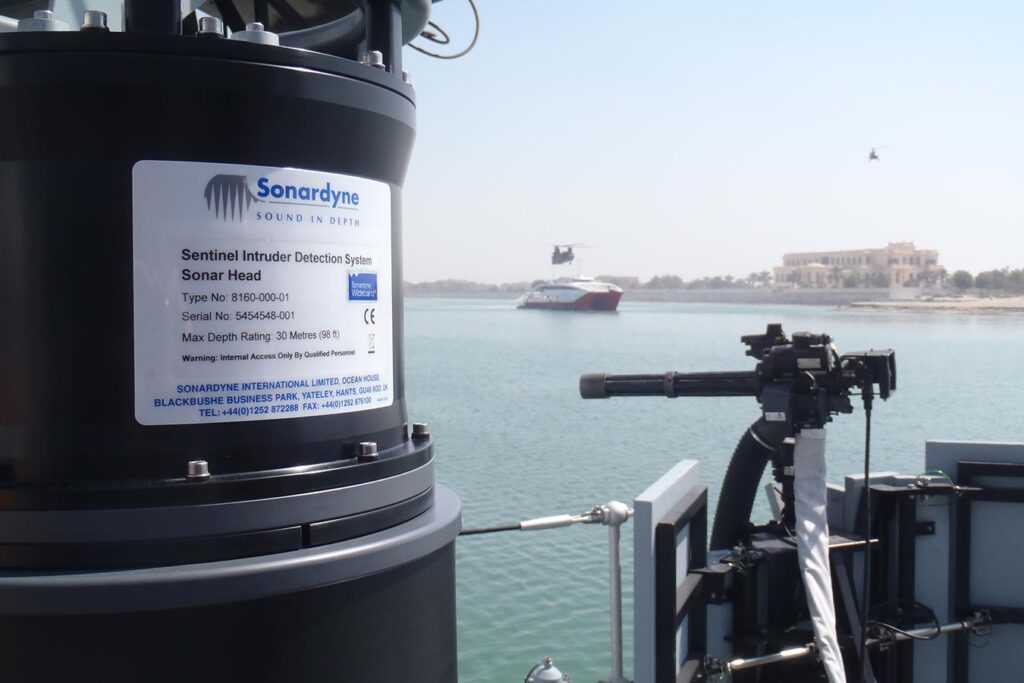
Capture every feature and every detail in ultra-high resolution.
Key benefits
- Mission ready; designed to support search, classify and map (SCM) and hydrographic operations
- Small and compact arrays; optimised for low-logistic AUVs and towed bodies
- Survey more ground in a single pass; 200 m-wide swath ensures high coverage rates
- Along track resolution of 0.15°; best in class delivering maximum detection rates
- Collocated side scan image and bathy improves your situational awareness
- Consumes only 18 W power: budget friendly and increases your AUV’s endurance
- Depth rated to 300 or 600 m
Solstice offers enhanced underwater detection capabilities for various missions, including mine countermeasures, archaeological, search, and salvage operations. The system provides high-performance coverage with large 200m swaths on each side, enabling efficient site characterisation without sacrificing detail. Its class-leading imagery allows you to make confident classification decisions more quickly, with the added versatility of deployment on both autonomous underwater vehicles (AUVs) and towfish platforms. By improving probability of detection and decreasing false alarms, Solstice significantly increases the overall efficiency and reliability of underwater exploration and survey missions. It is suitable for:
- Autonomous underwater vehicles (AUV)
- Site survey and characterisation
- Mine countermeasures (MCM)
- Remotely operated vehicles (ROV)
- Delivering pixel perfect imaging
Exceptional high-contrast seafloor imagery across diverse water depths
How it works
Solstice, designed by Wavefront Systems and commercialised by Sonardyne, is a world-leading side scan sonar for autonomous underwater vehicles (AUVs) and towed bodies. Its advanced technology delivers exceptional seafloor imagery through multiple aperture arrays with 32 multibeam elements, enabling superior signal-to-noise ratio performance and stunning imagery at extended ranges. The sonar’s unique back-projection beam-forming technique ensures focused imaging for every pixel, eliminating distortions caused by platform motion and guaranteeing 100% ground coverage across diverse water depths.
Designed for a wide range of marine missions including hydrographic, archaeological, search, salvage, and mine countermeasure operations, Solstice stands out through its innovative features. Its real-time array calibration dynamically recalibrates hydrophone elements multiple times per second, compensating for dynamic strains and maintaining linear element alignment. The system produces high-contrast imagery in environments ranging from 600-metre depths to very shallow littoral waters, utilising a specialised array technology that provides wide swath coverage with exceptional shadow contrast.

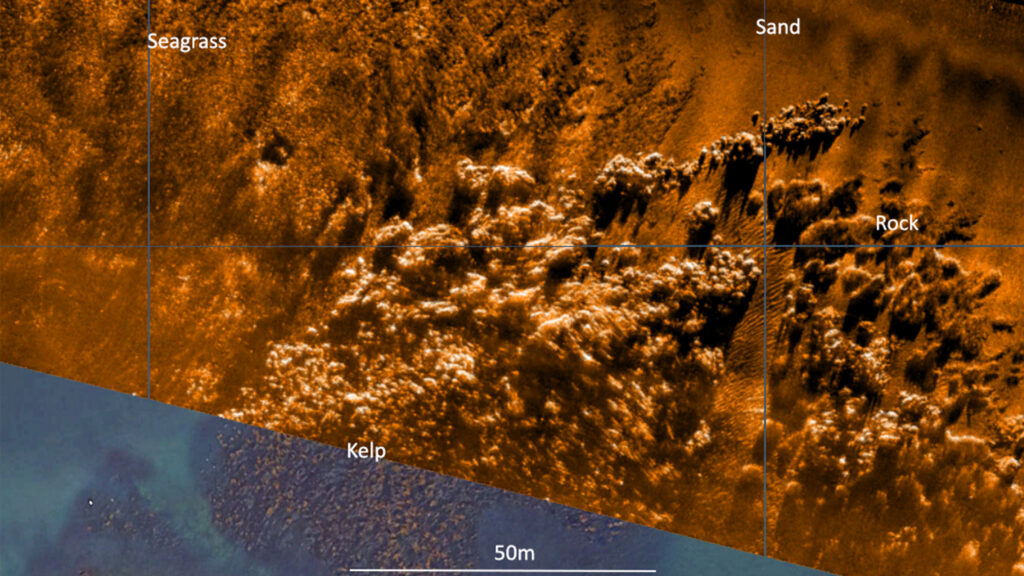
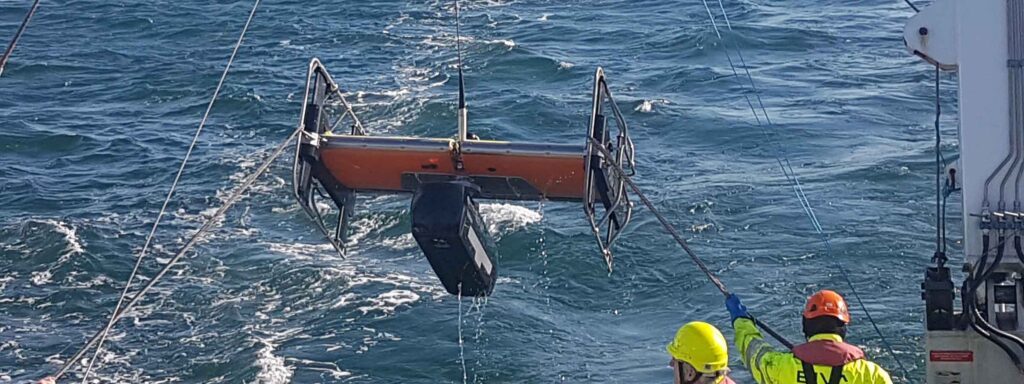
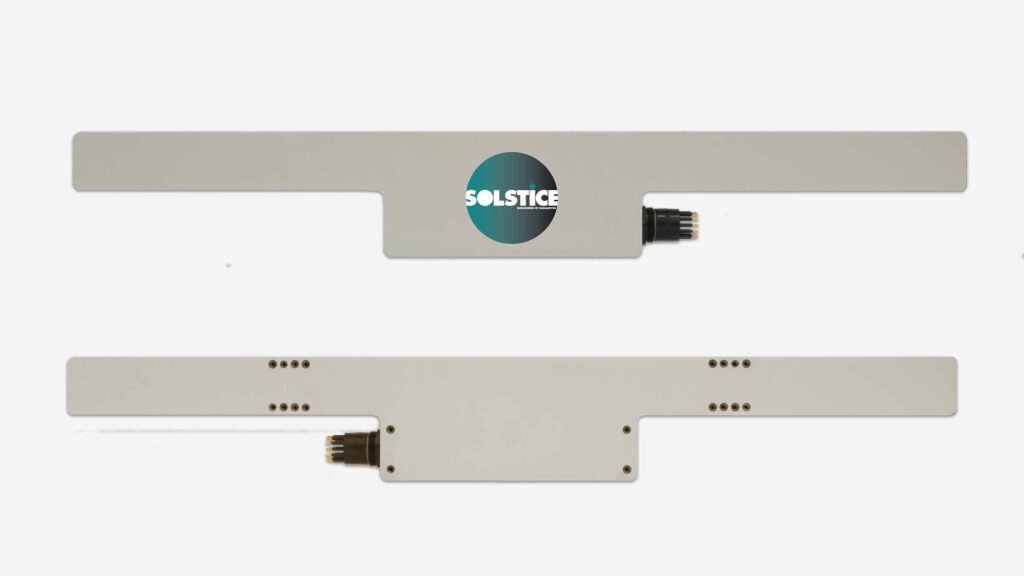
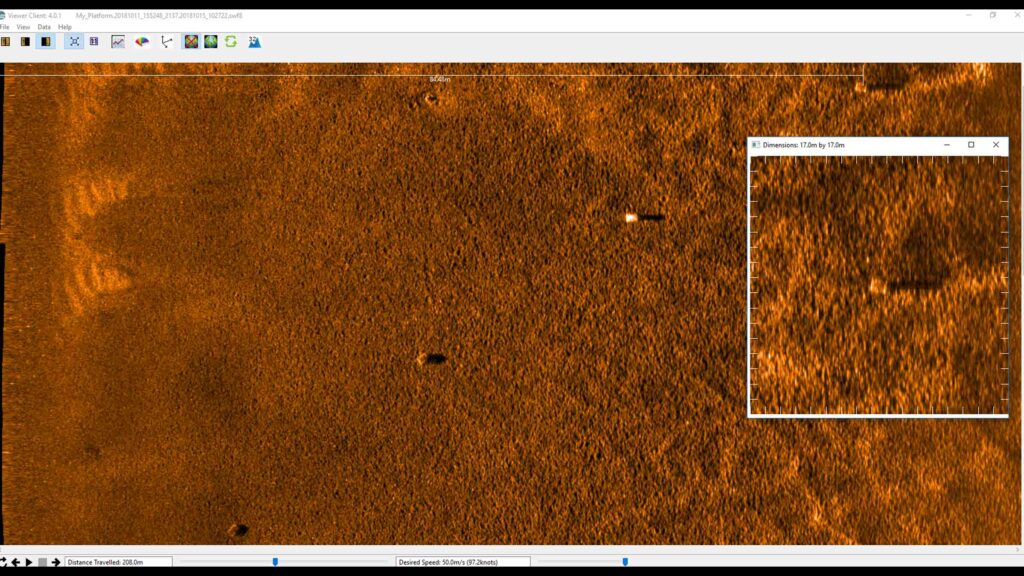
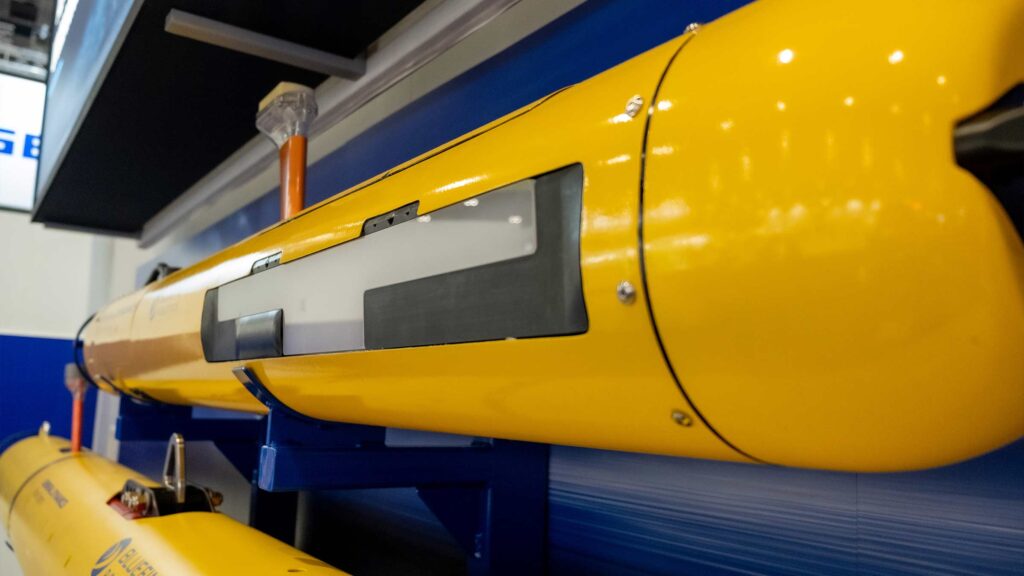
Solstice case studies
Overview
Our range of heavy duty acoustic release frames increase the Working Load Limit (WLL) of RT 6-3000 and RT-6000 acoustic release transponders, enabling you to lift, lower and release heavy loads onto the seabed, including structures and specialist equipment.
The Type 7869-000-01 release frame increases the WLL of a standard RT 6-3000 or RT 6-6000 to 7,500 kg (at 4:1 safety factor) with a breaking load of 30,000 kg. The type 7869-000-05 release frame increases the WLL of a standard RT 6-3000 or RT 6-6000 to 15,000 kg (at a 4:1 safety factor) with a breaking load limit of 60,000 kg.
The Type 7988 release frame has a WLL of 25,000 kg and breaking load of 100,000 kg.
In most cases, both types of release frame can be fitted without any modification to the acoustic release itself and are easily assembled in the field. Manufactured from high-strength steel which is galvanised and powder coated, the releases offer excellent corrosion resistance for long-term deployment.
Applications for which the acoustic releases have been developed include civil engineering, offshore construction, offshore renewables, marine salvage, defence and ocean science.
At a glance
- Working Load Limit of 7,500, 15,000 or 25,000 kg
- Breaking load of up to 100,000 kg
- Choice of depth rating: 4,000 or 12,000 m
- Compact size; just over 1 metre long
- Industry standard lifting rings
Suitable for
- Subsea structure installation
- Research vessels
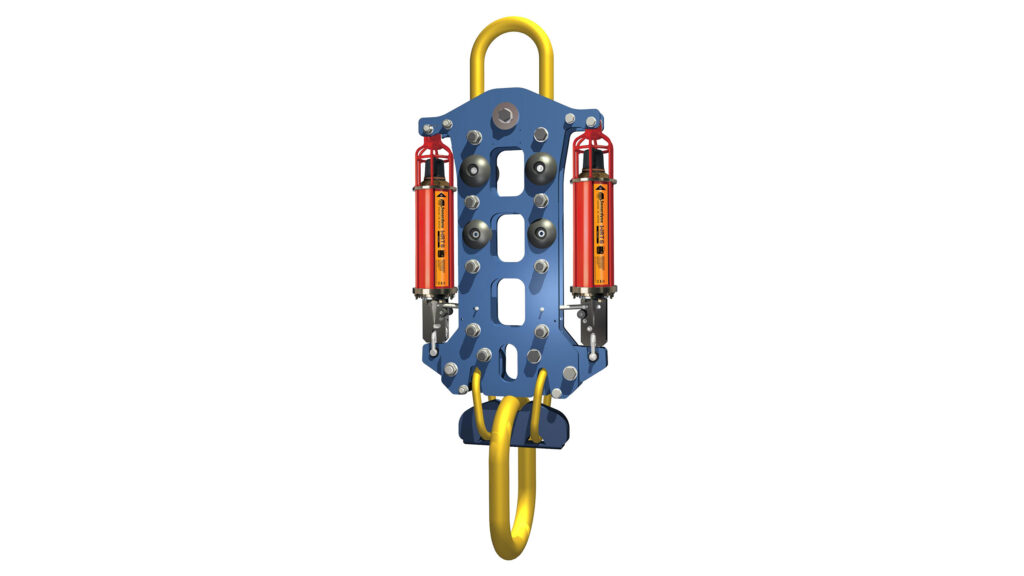
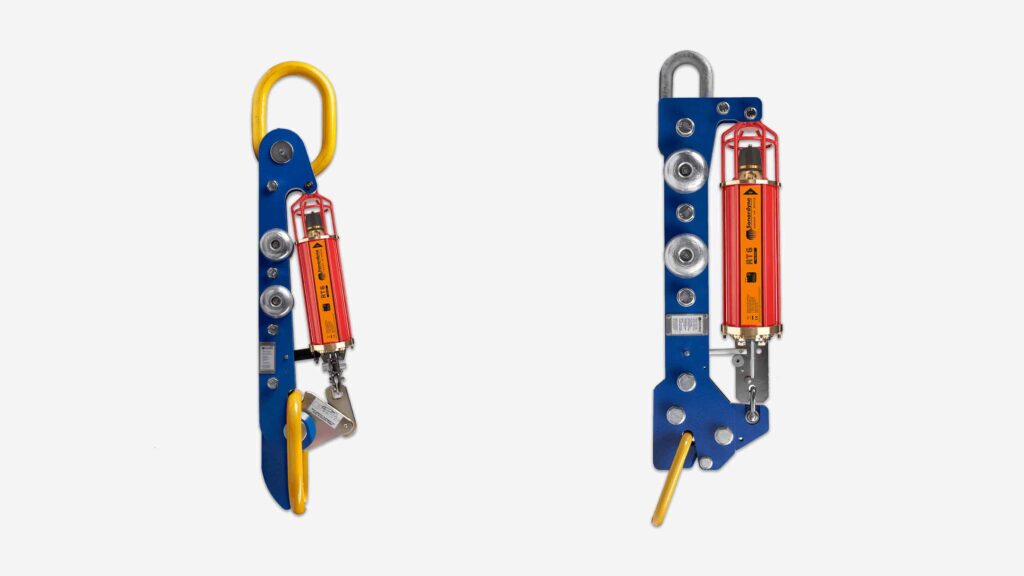
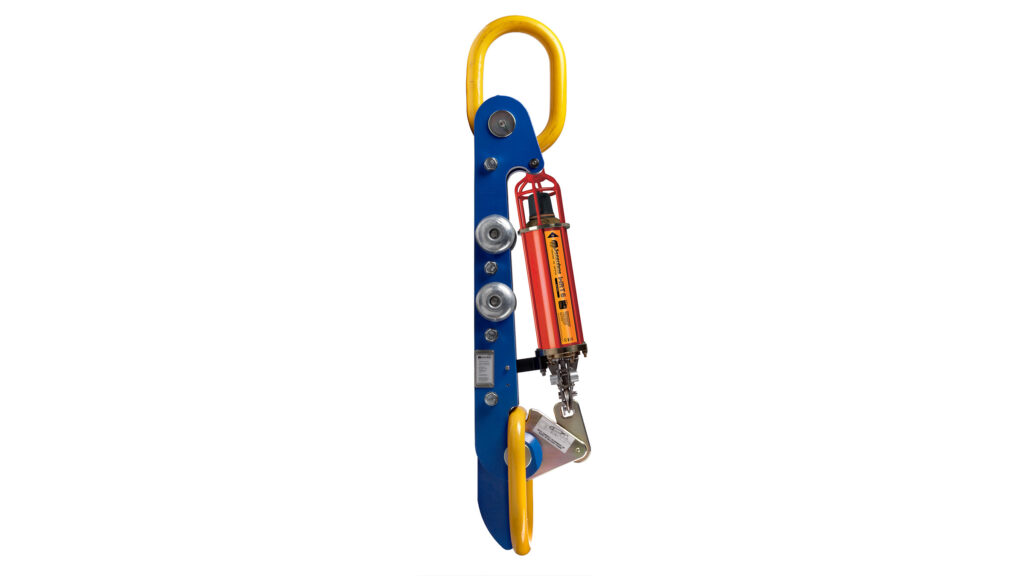
Did you know?
You can use Ranger 2 and Mini-Ranger 2 to release our RT 6 family?
Frequently asked questions
Datasheets
Manuals and quick start guides
Overview
Gyro Compatt 6+ is our combined LBL transponder and AHRS, supporting every stage of your structure installation project. The instrument provides wireless high update rates of attitude, heading, heave, surge, sway, temperature, pressure, SV and acoustic positioning of any subsea object. Deep water structure installation – made easy.
Gyro Compatt 6+ is no longer available for purchase. However, is still available through our hire pool. Contact [email protected] for more information.
At a glance
- Combined LBL transponder and Lodestar AHRS instrument; rugged, ROV deployable design
- Calculates motion and position of any subsea object; use it for structure installation and metrology
- Rechargeable internal battery provides more than a day of continuous use
- Wideband 3 inside; our latest signal protocols delivering fast, efficient operations
- LBL and USBL modes; optimised for Fusion 2 and Ranger 2
- Built to support subsea construction
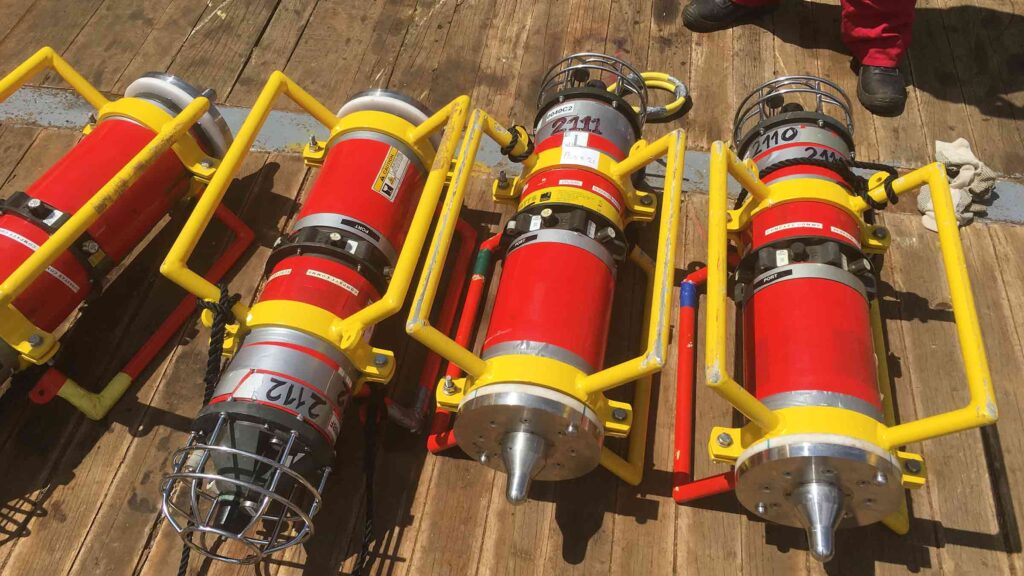
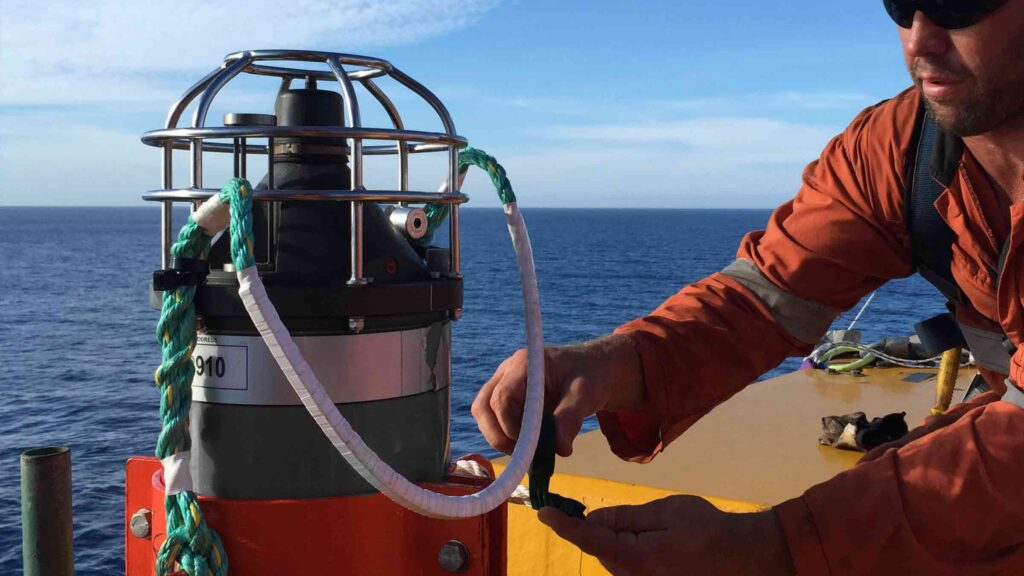
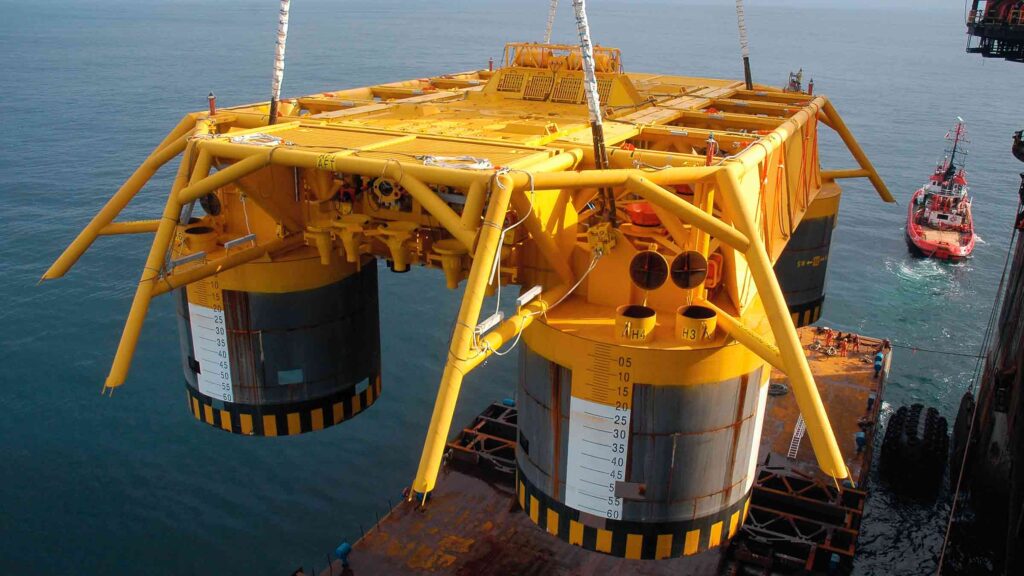
Performance
• Heading accuracy 0.04 to 0.1º Secant latitude
• Ranging precision better than 15mm
• Rechargeable 28 hr internal battery pack
• Simultaneous ranging and sensor data telemetry; requires Fusion 2
• Real time diagnostics on range measurements for quality control
• Autonomous data logging mode
Acoustic, AHRS and Sensors
• MF frequency (19–34 kHz)
• Supports Wideband 3 and Wideband 2 telemetry protocols
• Integrated Sonardyne Lodestar AHRS, factory aligned
• Integrated SV and depth sensors
Design
• Dimensions 918 x 248 mm
• 45/17 kg weight in water/air
• Deploy and recover using ROV
• External AHRS On/Off switch
• Plastic, super duplex stainless steel and anodised aluminium construction. ROHS compliant
Ownership
• What’s in the box: Gyro Compatt 6+, manual
• Warranty: 1 year return to Sonardyne service centre
• ITAR Controlled: No
• UK Export Licence: required; US Export License: covered under de minimis
Specifications table
| Feature | Type 8084 | ||
|---|---|---|---|
| Depth Rating | 3,000 m | ||
| Operating Temperature | -5 to +40°C | ||
| Storage Temperature | -20 to +55°C | ||
| Operational Shock Rating | 22 g, 11 ms half sine | ||
| External Battery Pack / ROV Supply | 24 V (20–50 V) | ||
| Battery Life | Acoustic Navigation Standby | 3 months | |
| Lodestar Permanently Powered On | 28 hours | ||
| Acoustic | Compatt 6+ | Operating Frequency | MF (20–34 kHz) Sonardyne Wideband 3 |
| Transmit Source Level (dB re 1 µPa @ 1m) |
185–192 dB (5 Levels) | ||
| Ranging Precision | Better than 15 mm | ||
| Telemetry Protocol | Sonardyne SMS and modem | ||
| Ranges Tracked | 14 simultaneous replies | ||
| Lodestar AHRS | Heading | Range | 0–360° |
| Accuracy | 0.04 to 0.1° secant latitude | ||
| Settle Time | <5 minutes | ||
| Follow Up Speed | 500° / second | ||
| Resolution | 0.01° | ||
| Roll and Pitch | Range | ±180° (no physical limit) | |
| Accuracy | 0.01° | ||
| Resolution | 0.01° | ||
| Heave | Range | ±99 m | |
| Accuracy (Real Time) | 5 cm or 5% (whichever is the greater) | ||
| Bandwidth | User selectable | ||
| Resolution | 0.01 m | ||
| Digital Output – Output Telegram (e.g. for ROV LED display) | Yes | ||
| ROV Switch – Contact Closure | Yes | ||
| Data Back-up – Data Logger | 8 GB (expandable to 32 GB) internal memory to allow post processing | ||
| Remote Transducer – For ROV Applications, a Remote Transducer is Available | |||
| Sensors | Sound Speed Sensor | ±0.03 m/s | |
| Pressure – Strain Gauge or Digiquartz | 0.01% FS | ||
| Physical | Size (Diameter x Length) | 248 x 918 mm | |
| Weight in Air/Water | 45/17 kg |
Frequently asked questions
How to set the latitude on a Gyro Compatt 6
Why am I getting old / incorrect data from my GyroCompatt 6+?
How to turn on a Lodestar Gyro Compatt using Ranger 2 or Fusion 2
I’m outputting a GGA from Fusion 2 / Ranger 2 to NaviPac but the position isn’t appearing in the correct location?
If I’m using Fusion 2, can I choose to use Wideband 2 or Wideband 3 telemetry?
How to plan my sparse LBL array (guidance note)
How do I perform a SLAM calibration in Fusion 2?
How do I perform an LBL calibration in Fusion 2?
Software and firmware
Software and control hardware
Datasheets
Manuals and quick start guides
What's possible
You need transponders to be tough, reliable and easy to work with. RT 6-3000 meets these requirements.
Part of our range of acoustic releases, RT 6-3000 combines our extensive mechanical design track record and many years of subsea mooring experience with the flexibility of our 6G platform. The result is an enhanced battery life and, perhaps most significantly, compatibility with our Ranger 2 USBL family.
Deploy. Track. Locate. Recover.
With RT 6-3000, you can use your Ranger 2 USBL to deploy, track, locate and command the instrument – removing the need for a separate topside unit.
If you don’t have access to a Ranger 2 USBL, our rugged and lightweight Deck Topside with an over-the-side dunker is all you need to configure and command your RT 6-3000s.
RT 6-3000s are used to anchor oceanographic moorings to the seabed. However, their compact size and compatibility with Ranger 2 makes them ideal for incorporation into instrument frames or lowered platforms to enable deployment of sub-system packages. Depth rated to 3,000 m, the maximum slant range for operation is dependent on the noise environment and topside used, but ranges to 4,500 m are achievable.
A battery disconnect fob is located on the transducer and uses an internal magnetic switch to electronically disconnect the battery when not in use. This means you don’t have to open the unit to manually disconnect the battery, saving time and reducing the risk of incorrect re-assembly.
Standard features include a Working Load Limit (WLL) of 1,275 kg (at 4:1) and the same trusted spring-assisted release mechanism used on thousands of Sonardyne transponders globally for many years. RT 6-3000 is compatible with our standard tandem and high-load release frames for scenarios requiring a higher WLL.
Speak to us about your requirements as custom frames are also an option.
Acoustics
• Medium Frequency (19-34kHz) band, Wideband 2
• Omni-directional transducer. Track it all the way to the surface
• Sonardyne Wideband 2 signal architecture supporting over 300 unique addresses
• Compatible with any Ranger 2 USBL system and Deck Topside
Design
• 700 x 142 mm, 15 kg weight in water
• Aluminium bronze, duplex stainless steel construction. ROHS compliant
• Configured with iWand hand-held acoustic transponder test and configuration device
• Compatible with our standard tandem and high-load release frame
Performance
• 3,000 m depth rated
• 4,500 m working range
• >32 months battery life; alkaline battery
• 1,275 kg Working Load Limit
• Secure and robust two-way acoustic communications. Only release what you want to release
Ownership
• What’s in the box: RT 6-3000, shackles, manual on USB
• Warranty: 1 year return to Sonardyne service centre
• ITAR Controlled: no
• UK Export Licence: not required
Specifications
| Feature | Type 8320-3411 |
|---|---|
| Depth Rating | 3,000 m* |
| Maximum Slant Range | 4,500 m |
| Operating Frequency | MF (20–34 kHz) |
| Transducer Beam Shape | Hemispherical |
| Transmit Source Level (dB re 1 µPa @ 1 m) | 186 dB |
| Tone Equivalent Energy (TEE) | 192 dB |
| Receive Threshold (dB re 1 µPa) | <90 dB |
| Working Load Limit (4:1) | 1,275 kg |
| Proof Load | 2,550 kg |
| Breaking Load | 5,100 kg |
| Maximum Safe Release Load | 1,700 kg |
| Battery Life (Alkaline) | >32 months active |
| Inclinometer Accuracy | ±5° |
| Surface Unit | Deck Topside, Ranger 2 USBL |
| Mechanical Construction | Aluminium bronze and duplex stainless steel |
| Operating Temperature | -5 to 40°C |
| Storage Temperature | -20 to 55°C |
| Dimensions (Length x Diameter) | 700 x 142 mm (27.5 x 5.6”) |
| Weight in Air/Water | 20/15 kg |
| Standards | CE Marked to EN-60945, EN-61010 |
| Options | Shallow Water Deck Kit (Deck Topside) – 602-0175 |
| Mid Water Deck Kit (Deck Topside) – 602-0179 | |
| Heavy Duty Release Frames (7.5 T, 15 T and 25 T) | |
| *RT 6-3000 is pressure rated to 4,000 m; however, due to operating range constraints of MF, its use at depths greater than 3,000 m is not recommended. |
Frequently asked questions
What is an Acoustic Release and how does it work?
Why isn’t serial communication available using the iWand in RT 6 Dunker Mode?
6G Terminal Lite Range Test
What is the safe working load for different RT 6 products?
What should I use instead of an ORT and DORT?
How to change the battery on an RT 6-3000 or RT 6000
How to load the release on an RT 6-3000 and RT 6-6000
Which RT 6 is correct for my operations?
How to release an RT 6 acoustic release transponder using Ranger 2
How long can an RT 6-3000 and RT-6 6000 be deployed for?
Deployment
STP files
Software and control hardware
Manuals and quick start guides
Did you know?
RT 6-3000 can be used with our Ranger 2 USBL family or Deck Topside
Small in size, big in performance
AvTrak 6 Nano may be our smallest acoustic transceiver, but its features and performance are anything but.
It’s built on the same 6G hardware and Wideband 2 digital signal architecture found in its larger cousin, AvTrak 6, all packed into the smallest possible form factor.
Use it with our popular MF USBL Ranger 2 family to track your AUVs or seafloor nodes. Then use the Sonardyne Messaging Service (SMS) to exchange status messages with the USBL or other AvTrak 6 Nanos in your vicinity. With hundreds of units in the field, AvTrak 6 Nano is ideal for AUV swarms.
Like its larger cousin, AvTrak 6 Nano has been developed to meet the requirements of a wide variety of AUV mission scenarios, vehicle types and the operational demands for different industries.
For energy – it’s not just for AUVs. Integrate AvTrak 6 Nano with your seabed nodes and you have a network of sensors that can position and communicate with each other.
For defence – its small form factor and ability to enable surface to AUV or AUV-to-AUV communications, makes it a prime option for swarm or squad robotics operations.
For science – AvTrak 6 Nano enables an AUV to undertake simultaneous USBL tracking and telemetry with a research vessel, as well as AUV-to-AUV communications making your projects more cost and time efficient.
At a glance
- Tracking, communications, and emergency relocation in one instrument
- Use with Ranger 2 to track every move your AUV makes
- Bi-directional acoustic modem with user selectable data rates; 200-9,000 bps
- Wide voltage input range and multiple communication methods for robotics integration
- Optimised for Ranger 2 Robotics pack for aiding navigation systems with remote position outputs
- Housed variant or OEM for integration into vehicles
Mini but mighty
AvTrak 6 Nano measures just 192 x 55 mm, you won’t find a smaller AUV transceiver with this much capability. It has an operating range of 3,000 m, a depth rating of 500 m and full SMS and Modem functionality.
Going smaller still, AvTrak 6 OEM Nano redefines nano, measuring at just 95 mm x 43 mm. You won’t find a smaller OEM AUV transceiver with this much capability. Its omni-directional transducer is small too, at 49 mm diameter and 72 mm long.
Equipped with AvTrak 6 Nano, your AUV will receive unlimited data and share messages every navigation cycle when used with Ranger 2. By supporting the integration of a data payload inside every navigation signal, this allows more data to be transferred to and from AUVs with fewer transmissions which ultimately reduces power consumption and increases mission endurance.
A common configuration enables the USBL system to communicate with a squad of AUVs equipped with AvTrak 6 Nanos, broadcasting to all the position of each member of the squad to aid the navigation solution and improve their situational awareness. Each AUV then replies in sequence with status information.
AvTrak 6 Nano can also be used to enable AUV-to-AUV communications and choose from seven telemetry schemes ranging from 200 bps to 9,000 bps of effective user bandwidth. Either for short burst communications or full large quantity data upload from seabed monuments.
AvTrak 6 Nano in action
Facing the challenge of speeding up consent in offshore renewable energy
Read moreAutonomous robots prepare to storm the ocean depths
Autonomous robots prepare to storm the ocean depths
Bringing special order accuracy to small diameter AUVs
Read moreGeneral
• Our smallest combined transponder, transceiver, and telemetry link
• Open interfaces and protocol
• Supports AUV swarm operations
Ownership
• AvTrak 6 Nano: Transceiver, 0.5m cable tail, integration guide, manual
• AvTrak 6 OEM Nano: PCB, remote transducer, integration guide, manual
• Warranty: 1 year return to Sonardyne service centre
Performance
• Depth rated to 500 m
• Effective data transfer rates between 200 and 9000 bps
• Emergency battery life >90 days
• Range precision better than 15 mm
• 3000m tracking and communication range
Design
• OEM Board set measures just 95 mm x 43 mm
• Omni-directional transducers
• Integrated depth sensor supports horizontal tracking
• Low power and compact for ease of integration
Specifications table
| Feature | Type 8262 AvTrak 6 Nano | Type 8262 AvTrak Nano OEM | |
|---|---|---|---|
| Operating range | >3,000 m | >3,000 m | |
| Depth rating | 500 m | 500 m (standard), 3,000 m (optional) |
|
| Operating frequency | MF 20–34 kHz | MF 20–34 kHz | |
| Transducer beam shape | Omni-directional ±130º | Omni-directional ±130º | |
| Source level (re 1 µPa @ 1 m) | Modem | 175 dB | 175 dB |
| Tracking & telemetry | 184/175 dB | 184/175 dB | |
| Range precision | Better than 15 mm | Better than 15 mm | |
| Communication interface | RS232, 3V3 TTL | RS232, 3V3 TTL | |
| Depth sensor | 50 bar abs +/-0.7% FS | 50 bar abs +/-0.7% FS | |
| Power supply | 12–28 V dc | 12–28 V dc | |
| Power consumption | Wideband Listening (Battery) | 5 mW | 5 mW |
| Wideband Listening (Ext. Power) | 20 mW (including trickle charge) | 20 mW (including trickle charge) | |
| Battery Charging | 60 mW to 2.5 W (depending on battery charge state) | 60 mW to 2.5 W (depending on battery charge state) | |
| Peak (During Transmission) | <30 W SMS, <20 W Modem | <30 W SMS, <20 W Modem | |
| Battery life | Quiescent Listening | >90 days | >90 days |
| 1 Sec Ping Rate | >12 hours | >12 hours | |
| Battery charge time | 12 hours | 12 hours | |
| External connections | Subconn MCIL8M | Molex Microfit | |
| Mechanical construction | Polymer | n/a | |
| Transducer wire length | n/a | 150 mm (6”) | |
| Operating temperature | -10 to 45°C | -10 to 45°C | |
| Storage temperature | -20 to 55°C | -20 to 55°C | |
| Dimensions | Length x diameter | 192 x 55 mm |
n/a |
| Transducer (length x diameter) | n/a | 72 x 49 mm | |
| PCB board assembly (length x width x height) | n/a | 95 x 43 x 42.5 mm | |
| Hole centres (M2 clearance – length x diameter) | n/a | 71.5 x 35 mm | |
| Weight in air/water | 584/162 g | n/a | |
| Weight (OEM) | PCB in air | n/a | 138 g PCB + 12 g cable |
| Transducer in air/water (estimated) | n/a | 200/150 g |
Frequently asked questions
STP files
Software and firmware
Software and control hardware
Datasheets
Manuals and quick start guides
Entry level – next level
What's possible
The RT 6-1000 is the versatile acoustic release transponder for your subsea operations. It can be commanded from multiple sources, including the Deck Topside, an Android app, or any Ranger 2 USBL system. This flexibility allows you to easily deploy, track, locate and retrieve your seabed equipment and ocean sensors.
One of the key advantages of the RT 6-1000 is its depth rating of 1,000 metres and weight load limit of 150 kg. This depth and payload capacity make it an ideal choice for scientists, surveyors, and military personnel who require a reliable and enduring solution for their underwater applications.
The RT 6-1000 is compatible with Sonardyne’s Ranger 2 USBL tracking systems, which are widely used on survey vessels around the world. This integration allows for seamless deployment, tracking, and retrieval of your equipment. No access to Ranger 2? No problem, the RT 6-1000’s NFC capability enables setup and control via its Android app or a dedicated Deck Topside unit.
Deploy. Track. Locate. Recover
At a glance
- The reliable choice to deploy, leave and recover seafloor equipment and sensors
- 1,000 metre depth rating; twice that of similar low-cost acoustic release transponders
- Tested, loaded, commanded and released using Deck Topside
- Also works with any Ranger 2 USBL to track it and activate it
- >13-month battery life means less time servicing it and more time using it
- 150 kg Working Load Limit to support your sensors and instruments
- Optional rope canister for heavy lifting
The RT 6-1000 offers impressive endurance, with a battery life of up to 13 months, making it well-suited for long-term deployments and year-long surveys. Its screw-off release mechanism ensures reliable recovery of the transponder and your equipment.
An optional rope canister attachment allows you to quickly and easily raise items left on the seabed, such as tools, cables and salvage. The canister deploys a high-strength rope as the transponder ascends, providing a convenient means of retrieval.
Acoustic
• Medium Frequency (20-34 kHz) band.
• Omni-directional transducer. Track it all the way to the surface
• Sonardyne Wideband 2 signal architecture supporting over 300 unique addresses. Perfect for very large surveys involving multiple moorings close to each other
Performance
• 1,000 m depth rated
• >13 months battery life; alkaline battery
• 150 kg Working Load Limit
• Compatible with Ranger 2 USBL systems
• Secure and robust two-way acoustic Communications. Only release what you want to release
Design
• 450 mm x 65 mm (max dia. 100 mm), 500 grams weight in water
• Field proven screw-off release mechanism
• NFC for setup using Android app
• Optional rope canister for lifting heavy items
• Plastic, super duplex stainless steel and anodised aluminium construction. ROHS compliant
Ownership
• Warranty: one year return to Sonardyne service centre
• ITAR Controlled: No
• UK Export Licence: Not required
• What’s in the box: RT 6-1000, shackles, release nuts (x10), manual on USB
Specifications table
| Feature | Type 8327 | |
|---|---|---|
| Depth rating | 1,000 m | |
| Operating frequency | MF (20–34 kHz) | |
| Transducer beam shape | Hemispherical | |
| Transmit source level (dB re 1 µPa @ 1 m) | 187 dB | |
| Tone Equivalent Energy (TEE) | 193 dB | |
| Receive threshold (dB re 1 µPa) | <100 dB | |
| Working load limit (4:1) | 150 kg | |
| Proof load | 300 kg | |
| Breaking load | 600 kg | |
| Maximum safe release load | 150 kg | |
| Battery life (alkaline) | >13 months | |
| Inclinometer accuracy | ±5° | |
| Mechanical construction | Anodised aluminium alloy, plastic and super duplex stainless steel | |
| Operating temperature | -5 to 40ºC | |
| Storage temperature | -20 to 55ºC | |
| Maximum dimensions (length x diameter) | 450 x 65 mm | |
| Weight in air/water | 2.0/0.5 kg | |
| Standards | CE Marked to EN-60945, EN-61010 | |
| Options | Part number | |
| Shallow Water Deck Kit (Deck Topside) | 602-0175 | |
| Rope Canister | 70 m (250 kg WLL) | 641-0673 |
| 120 m (250 kg WLL) | 641-3265 | |
| 160 m (150 kg WLL) | 641-0080 | |
| Release Nut | 830-0073 (note: 10 nuts supplied with each new RT 6-1000) |
|
| Shackle (bridle) | 231-0140 | |
| Deployment rope (bridle) | 231-0351 |
Frequently asked questions
What is an Acoustic Release and how does it work?
Why isn’t serial communication available using the iWand in RT 6 Dunker Mode?
RT 6-1000 NFC connection and operating information
6G Terminal Lite Range Test
How long can an RT 6-1000 be deployed for?
What is the safe working load for different RT 6 products?
What should i use instead of an LRT
How do I mark where my RT 6-1000 is deployed?
No NFC device is available to connect the battery
Why can’t my NFC device contact the transponder?
How to change the battery in an RT 6-1000
Which RT 6 is correct for my operations?
Why should I use a rope canister and what is it?
Where can I find the RT6 release app
How to release an RT 6 acoustic release transponder using Ranger 2
How to use a rope canister
How to recover an RT 6-1000
Deployment
STP files
Software and firmware
Software and control hardware
Datasheets
Manuals and quick start guides
Did you know?
RT 6-1000 can be used with our Ranger 2 USBL family or Deck Topside
Overview
The WGT functionality enables Wave Glider to acoustically collect data from large arrays of seabed instruments in a highly cost-effective manner without the need to deploy a traditional surface ship to perform this operation. Instead, Wave Glider is controlled remotely from a shore station via Iridium satellite communications.
The WGT is capable to be used with directional transducer options for operating in both Medium Frequency (MF) (20-34 kHz) and Lower Medium Frequency (LMF) (12-20 kHz) bands to suit different seabed instruments and is fully Sonardyne Wideband® 2 compatible.
The WGT is tightly integrated into the Wave Glider vehicle communications and power systems thereby providing many of the standard acoustic commands and features associated with Sonardyne 6G® products.
Data is passed by Wave Glider to the Iridium satellite system for onwards transmission to the user in near real time.
At a glance
- Custom engineered for a Wave Glider standard aft payload space
- Provides subsea-surface-shore gateway link for Sonardyne long endurance sensors
- Enables direct remote data collection on demand, monitoring and control from shore based Wave Glider operations centre
- Integrated acoustic modem with data rates from 100 to 9,000 bps
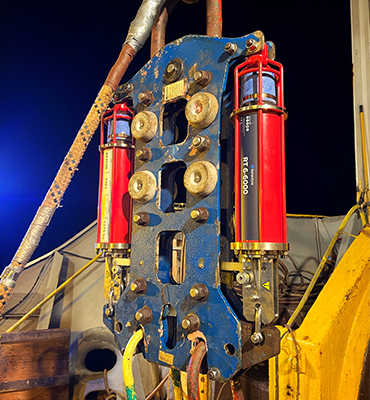
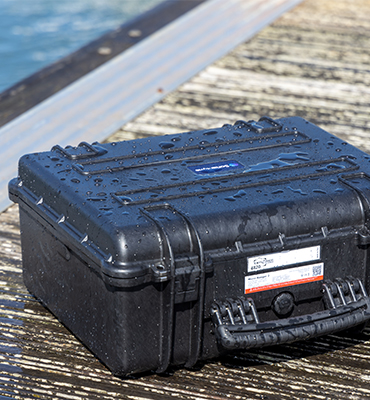
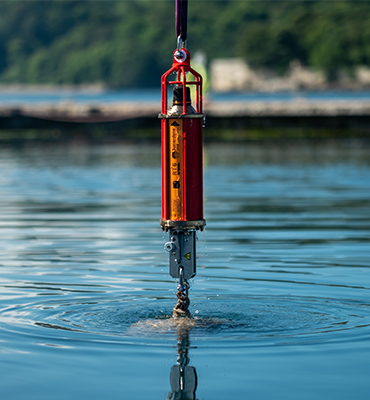
Specifications table
| Feature | Type 8297-010-05 (WGT Module) | Type 8297-010-04 (GPS-A Module) |
|---|---|---|
| Operating frequency | MF (20–34 kHz) | MF (20-34 kHz) |
| Transducer beam shape | Directional | Directional |
| Transmit source level (dB re 1 µPa @ 1 m) | 190–202 dB (4 levels) | 190–202 dB (4 levels) |
| Tone equivalent energy (TEE) | 196–208 dB | 196–208 dB |
| Receive sensitivity (dB re 1 µPa) | 90–120 dB (7 levels) | 90–120 dB (7 levels) |
| Acoustic modem data rates | 100-9,000 bps (6 levels) | 100-9,000 bps (6 levels) |
| Dimensions (length x width x height) | 412 x 389 x 205 mm | 412 x 389 x 205 mm (standard Liquid Robotics 3 MPU) |
| Weight in air/water | 10.4/-15 kg | 10.4/-15 kg |
| Operating temperature | -10 to 45°C | -10 to 45°C |
| Storage temperature | -20 to 55°C | -20 to 55°C |
| Internal backup battery for acoustic modem | Rechargeable Li-ion (2.2 Ah) | Rechargeable Li-ion (2.2 Ah) |
| Satellite communications | Iridium RUDICS (2,400 bps) | Iridium RUDICS (2,400 bps) |
| GNSS receiver | – | Survey grade L1 & L2 receiver: Novatel OEM7720 series (GNSS derived heading) |
| AHRS device | – | XSENS MTi-300 and/or EPSON G320 SPAN INS |
| Ranging clock | – | GPS derived 4 MHz pulse conditioned to 8 MHz |
| Communication and logging: Communications | – | Wi-Fi, RS232 transceiver, RJ45 Ethernet, dedicated power and comms for GNSS and HRP, single RS232 expansion port with 5 V power pass through |
| Communication and logging: Internal logging | 128 GB dual redundant internal memory; RINEX GNSS logging; SPAN INS logging |
|
| System components | WGT Module Wave Glider Payload; 4 m Remote Transducer; Wave Glider Transducer Compatible Skeg |
GPS-A Module Wave Glider Payload; 4 m Remote Transducer; Wave Glider Transducer Compatible Skeg |
